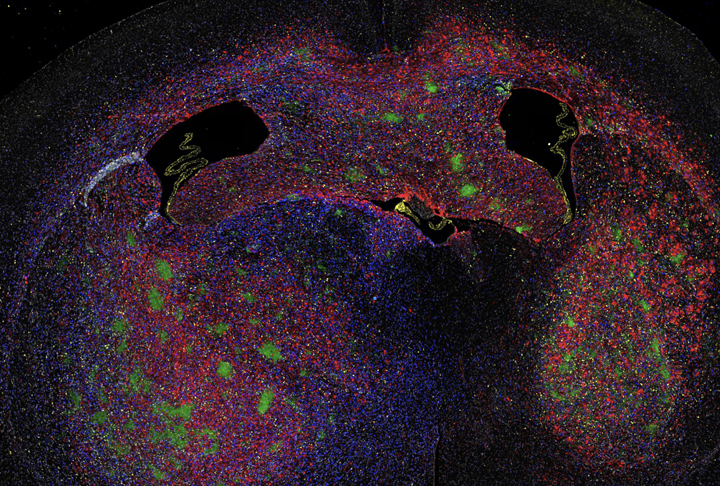Related Publications
2576724
IXMHRBF6
brain cancer
1
apa-cv
50
date
desc
1
1
4135
https://labsyspharm.org/wp-content/plugins/zotpress/
%7B%22status%22%3A%22success%22%2C%22updateneeded%22%3Afalse%2C%22instance%22%3Afalse%2C%22meta%22%3A%7B%22request_last%22%3A0%2C%22request_next%22%3A0%2C%22used_cache%22%3Atrue%7D%2C%22data%22%3A%5B%7B%22key%22%3A%22DFLGSH39%22%2C%22library%22%3A%7B%22id%22%3A2576724%7D%2C%22meta%22%3A%7B%22creatorSummary%22%3A%22Rendo%20et%20al.%22%2C%22parsedDate%22%3A%222025-02-19%22%2C%22numChildren%22%3A2%7D%2C%22bib%22%3A%22%3Cdiv%20class%3D%5C%22csl-bib-body%5C%22%20style%3D%5C%22line-height%3A%202%3B%20padding-left%3A%201em%3B%20text-indent%3A-1em%3B%5C%22%3E%5Cn%20%20%3Cdiv%20class%3D%5C%22csl-entry%5C%22%3ERendo%2C%20V.%2C%20Lee%2C%20E.%20Q.%2C%20Bossi%2C%20C.%2C%20Khuu%2C%20N.%2C%20Rudek%2C%20M.%20A.%2C%20Pal%2C%20S.%2C%20Azazmeh%2C%20N.%2C%20Rashid%2C%20R.%2C%20Lin%2C%20J.-R.%2C%20Cusick%2C%20M.%2C%20Reynolds%2C%20A.%20R.%20N.%2C%20Fassinou%2C%20A.%20C.%20R.%2C%20Ayoub%2C%20G.%2C%20Malinowski%2C%20S.%2C%20Lapinskas%2C%20E.%2C%20Pisano%2C%20W.%2C%20Jeang%2C%20J.%2C%20Stopka%2C%20S.%20A.%2C%20Regan%2C%20M.%20S.%2C%20%26%23x2026%3B%20Beroukhim%2C%20R.%20%282025%29.%20A%20window-of-opportunity%20trial%20reveals%20mechanisms%20of%20response%20and%20resistance%20to%20navtemadlin%20in%20patients%20with%20recurrent%20glioblastoma.%20%3Ci%3EScience%20Translational%20Medicine%3C%5C%2Fi%3E%2C%20%3Ci%3E17%3C%5C%2Fi%3E%28786%29%2C%20eadn6274.%20%3Ca%20class%3D%27zp-DOIURL%27%20target%3D%27_blank%27%20href%3D%27https%3A%5C%2F%5C%2Fdoi.org%5C%2F10.1126%5C%2Fscitranslmed.adn6274%27%3Ehttps%3A%5C%2F%5C%2Fdoi.org%5C%2F10.1126%5C%2Fscitranslmed.adn6274%3C%5C%2Fa%3E%3C%5C%2Fdiv%3E%5Cn%3C%5C%2Fdiv%3E%22%2C%22data%22%3A%7B%22itemType%22%3A%22journalArticle%22%2C%22title%22%3A%22A%20window-of-opportunity%20trial%20reveals%20mechanisms%20of%20response%20and%20resistance%20to%20navtemadlin%20in%20patients%20with%20recurrent%20glioblastoma%22%2C%22creators%22%3A%5B%7B%22creatorType%22%3A%22author%22%2C%22firstName%22%3A%22Veronica%22%2C%22lastName%22%3A%22Rendo%22%7D%2C%7B%22creatorType%22%3A%22author%22%2C%22firstName%22%3A%22Eudocia%20Q.%22%2C%22lastName%22%3A%22Lee%22%7D%2C%7B%22creatorType%22%3A%22author%22%2C%22firstName%22%3A%22Connor%22%2C%22lastName%22%3A%22Bossi%22%7D%2C%7B%22creatorType%22%3A%22author%22%2C%22firstName%22%3A%22Nicholas%22%2C%22lastName%22%3A%22Khuu%22%7D%2C%7B%22creatorType%22%3A%22author%22%2C%22firstName%22%3A%22Michelle%20A.%22%2C%22lastName%22%3A%22Rudek%22%7D%2C%7B%22creatorType%22%3A%22author%22%2C%22firstName%22%3A%22Sangita%22%2C%22lastName%22%3A%22Pal%22%7D%2C%7B%22creatorType%22%3A%22author%22%2C%22firstName%22%3A%22Narmen%22%2C%22lastName%22%3A%22Azazmeh%22%7D%2C%7B%22creatorType%22%3A%22author%22%2C%22firstName%22%3A%22Rumana%22%2C%22lastName%22%3A%22Rashid%22%7D%2C%7B%22creatorType%22%3A%22author%22%2C%22firstName%22%3A%22Jia-Ren%22%2C%22lastName%22%3A%22Lin%22%7D%2C%7B%22creatorType%22%3A%22author%22%2C%22firstName%22%3A%22Margaret%22%2C%22lastName%22%3A%22Cusick%22%7D%2C%7B%22creatorType%22%3A%22author%22%2C%22firstName%22%3A%22Abigail%20R.%20N.%22%2C%22lastName%22%3A%22Reynolds%22%7D%2C%7B%22creatorType%22%3A%22author%22%2C%22firstName%22%3A%22Auriole%20C.%20R.%22%2C%22lastName%22%3A%22Fassinou%22%7D%2C%7B%22creatorType%22%3A%22author%22%2C%22firstName%22%3A%22Georges%22%2C%22lastName%22%3A%22Ayoub%22%7D%2C%7B%22creatorType%22%3A%22author%22%2C%22firstName%22%3A%22Seth%22%2C%22lastName%22%3A%22Malinowski%22%7D%2C%7B%22creatorType%22%3A%22author%22%2C%22firstName%22%3A%22Emily%22%2C%22lastName%22%3A%22Lapinskas%22%7D%2C%7B%22creatorType%22%3A%22author%22%2C%22firstName%22%3A%22William%22%2C%22lastName%22%3A%22Pisano%22%7D%2C%7B%22creatorType%22%3A%22author%22%2C%22firstName%22%3A%22John%22%2C%22lastName%22%3A%22Jeang%22%7D%2C%7B%22creatorType%22%3A%22author%22%2C%22firstName%22%3A%22Sylwia%20A.%22%2C%22lastName%22%3A%22Stopka%22%7D%2C%7B%22creatorType%22%3A%22author%22%2C%22firstName%22%3A%22Michael%20S.%22%2C%22lastName%22%3A%22Regan%22%7D%2C%7B%22creatorType%22%3A%22author%22%2C%22firstName%22%3A%22Johan%22%2C%22lastName%22%3A%22Spetz%22%7D%2C%7B%22creatorType%22%3A%22author%22%2C%22firstName%22%3A%22Arati%22%2C%22lastName%22%3A%22Desai%22%7D%2C%7B%22creatorType%22%3A%22author%22%2C%22firstName%22%3A%22Frank%22%2C%22lastName%22%3A%22Lieberman%22%7D%2C%7B%22creatorType%22%3A%22author%22%2C%22firstName%22%3A%22Kamalakannan%22%2C%22lastName%22%3A%22Palanichamy%22%7D%2C%7B%22creatorType%22%3A%22author%22%2C%22firstName%22%3A%22Joy%20D.%22%2C%22lastName%22%3A%22Fisher%22%7D%2C%7B%22creatorType%22%3A%22author%22%2C%22firstName%22%3A%22Kristine%22%2C%22lastName%22%3A%22Pelton%22%7D%2C%7B%22creatorType%22%3A%22author%22%2C%22firstName%22%3A%22Raymond%20Y.%22%2C%22lastName%22%3A%22Huang%22%7D%2C%7B%22creatorType%22%3A%22author%22%2C%22firstName%22%3A%22Kristopher%20A.%22%2C%22lastName%22%3A%22Sarosiek%22%7D%2C%7B%22creatorType%22%3A%22author%22%2C%22firstName%22%3A%22Louis%20B.%22%2C%22lastName%22%3A%22Nabors%22%7D%2C%7B%22creatorType%22%3A%22author%22%2C%22firstName%22%3A%22Matthias%22%2C%22lastName%22%3A%22Holdhoff%22%7D%2C%7B%22creatorType%22%3A%22author%22%2C%22firstName%22%3A%22Neeraja%22%2C%22lastName%22%3A%22Danda%22%7D%2C%7B%22creatorType%22%3A%22author%22%2C%22firstName%22%3A%22Roy%22%2C%22lastName%22%3A%22Strowd%22%7D%2C%7B%22creatorType%22%3A%22author%22%2C%22firstName%22%3A%22Serena%22%2C%22lastName%22%3A%22Desideri%22%7D%2C%7B%22creatorType%22%3A%22author%22%2C%22firstName%22%3A%22Tobias%22%2C%22lastName%22%3A%22Walbert%22%7D%2C%7B%22creatorType%22%3A%22author%22%2C%22firstName%22%3A%22Xiaobu%22%2C%22lastName%22%3A%22Ye%22%7D%2C%7B%22creatorType%22%3A%22author%22%2C%22firstName%22%3A%22Arnab%22%2C%22lastName%22%3A%22Chakravarti%22%7D%2C%7B%22creatorType%22%3A%22author%22%2C%22firstName%22%3A%22Peter%20K.%22%2C%22lastName%22%3A%22Sorger%22%7D%2C%7B%22creatorType%22%3A%22author%22%2C%22firstName%22%3A%22Sandro%22%2C%22lastName%22%3A%22Santagata%22%7D%2C%7B%22creatorType%22%3A%22author%22%2C%22firstName%22%3A%22Nathalie%20Y.%20R.%22%2C%22lastName%22%3A%22Agar%22%7D%2C%7B%22creatorType%22%3A%22author%22%2C%22firstName%22%3A%22Stuart%20A.%22%2C%22lastName%22%3A%22Grossman%22%7D%2C%7B%22creatorType%22%3A%22author%22%2C%22firstName%22%3A%22Brian%20M.%22%2C%22lastName%22%3A%22Alexander%22%7D%2C%7B%22creatorType%22%3A%22author%22%2C%22firstName%22%3A%22Patrick%20Y.%22%2C%22lastName%22%3A%22Wen%22%7D%2C%7B%22creatorType%22%3A%22author%22%2C%22firstName%22%3A%22Keith%20L.%22%2C%22lastName%22%3A%22Ligon%22%7D%2C%7B%22creatorType%22%3A%22author%22%2C%22firstName%22%3A%22Rameen%22%2C%22lastName%22%3A%22Beroukhim%22%7D%5D%2C%22abstractNote%22%3A%22Inhibitors%20of%20murine%20double%20minute%20homolog%202%20%28MDM2%29%20represent%20a%20promising%20therapeutic%20approach%20for%20the%20treatment%20of%20TP53%20wild-type%20glioblastomas%20%28GBMs%29%2C%20reactivating%20p53%20signaling%20to%20induce%20cancer%20cell%20death.%20We%20conducted%20a%20surgical%20window-of-opportunity%20trial%20%28NCT03107780%29%20of%20the%20MDM2%20inhibitor%20navtemadlin%20%28KRT-232%29%20in%2021%20patients%20with%20TP53%20wild-type%20recurrent%20GBM%20to%20determine%20achievable%20drug%20concentrations%20within%20tumor%20tissues%20and%20biological%20mechanisms%20of%20response%20and%20resistance.%20Participants%20received%20navtemadlin%20at%20120%20mg%20%28n%20%3D%2010%29%20or%20240%20mg%20%28n%20%3D%2011%29%20for%202%20days%20before%20surgical%20resection%20and%20after%20surgery%20until%20progression%20or%20unacceptable%20toxicity.%20Both%20120%20and%20240%20mg%20daily%20dosing%20achieved%20a%20pharmacodynamic%20impact%2C%20but%20median%20progression-free%20survival%20was%203.1%20months.%20DNA%20sequencing%20of%20three%20recurrent%20tumors%20revealed%20an%20absence%20of%20TP53-inactivating%20mutations%2C%20indicating%20alternative%20mechanisms%20of%20resistance.%20To%20understand%20the%20mechanisms%20of%20response%20and%20resistance%20associated%20with%20navtemadlin%2C%20we%20conducted%20functional%20and%20spatial%20analyses%20of%20human%20tissue%20and%20patient-derived%20GBM%20neurosphere%20models.%20Navtemadlin%20induced%20partial%20tumor%20cell%20death%20as%20monotherapy%2C%20and%20combination%20with%20temozolomide%20enhanced%20apoptosis%20in%20GBM%20neurospheres%20while%20sparing%20normal%20bone%20marrow%20cells%20in%20vitro.%20We%20also%20observed%20up-regulation%20of%20oligodendrocyte%20differentiation%20genes%20with%20navtemadlin%20treatment%20and%20enrichment%20of%20oligodendrocyte%20transcription%20factor%202%20%28OLIG2%29-positive%20cells%20at%20relapse%2C%20suggesting%20an%20unexplored%20mechanism%20of%20navtemadlin%20tolerance%20in%20GBM.%20Overall%2C%20these%20results%20indicated%20that%20clinically%20achievable%20doses%20of%20navtemadlin%20exert%20pharmacodynamic%20effects%20on%20GBM%20and%20suggest%20that%20combined%20treatment%20with%20temozolomide%20may%20be%20a%20route%20to%20more%20durable%20survival%20benefits.%22%2C%22date%22%3A%222025-02-19%22%2C%22language%22%3A%22eng%22%2C%22DOI%22%3A%2210.1126%5C%2Fscitranslmed.adn6274%22%2C%22ISSN%22%3A%221946-6242%22%2C%22url%22%3A%22%22%2C%22collections%22%3A%5B%22IXMHRBF6%22%5D%2C%22dateModified%22%3A%222025-04-28T14%3A37%3A23Z%22%7D%7D%2C%7B%22key%22%3A%2289B3ISJF%22%2C%22library%22%3A%7B%22id%22%3A2576724%7D%2C%22meta%22%3A%7B%22lastModifiedByUser%22%3A%7B%22id%22%3A9036456%2C%22username%22%3A%22jtefft%22%2C%22name%22%3A%22%22%2C%22links%22%3A%7B%22alternate%22%3A%7B%22href%22%3A%22https%3A%5C%2F%5C%2Fwww.zotero.org%5C%2Fjtefft%22%2C%22type%22%3A%22text%5C%2Fhtml%22%7D%7D%7D%2C%22creatorSummary%22%3A%22Lee%20et%20al.%22%2C%22parsedDate%22%3A%222025-01-17%22%2C%22numChildren%22%3A1%7D%2C%22bib%22%3A%22%3Cdiv%20class%3D%5C%22csl-bib-body%5C%22%20style%3D%5C%22line-height%3A%202%3B%20padding-left%3A%201em%3B%20text-indent%3A-1em%3B%5C%22%3E%5Cn%20%20%3Cdiv%20class%3D%5C%22csl-entry%5C%22%3ELee%2C%20E.%20Q.%2C%20Alexander%2C%20B.%20M.%2C%20Romo%2C%20C.%20G.%2C%20Supko%2C%20J.%20G.%2C%20Agar%2C%20N.%20Y.%20R.%2C%20Talebi%2C%20Z.%2C%20Ahluwalia%2C%20M.%20S.%2C%20Desai%2C%20A.%20S.%2C%20Dietrich%2C%20J.%2C%20Kaley%2C%20T.%20J.%2C%20Peereboom%2C%20D.%20M.%2C%20Gantchev%2C%20J.%2C%20Baquer%2C%20G.%2C%20Santagata%2C%20S.%2C%20Takebe%2C%20N.%2C%20Desideri%2C%20S.%2C%20Fisher%2C%20J.%20D.%2C%20Sims%2C%20M.%2C%20Ye%2C%20X.%2C%20%26%23x2026%3B%20Wen%2C%20P.%20Y.%20%282025%29.%20Phase%20I%20study%20of%20adavosertib%20with%20radiation%20therapy%20and%20temozolomide%20in%20newly%20diagnosed%20glioblastoma%20and%20intratumoral%20drug%20levels%20in%20recurrent%20glioblastoma.%20%3Ci%3EClinical%20Cancer%20Research%3A%20An%20Official%20Journal%20of%20the%20American%20Association%20for%20Cancer%20Research%3C%5C%2Fi%3E.%20%3Ca%20class%3D%27zp-DOIURL%27%20target%3D%27_blank%27%20href%3D%27https%3A%5C%2F%5C%2Fdoi.org%5C%2F10.1158%5C%2F1078-0432.CCR-24-2311%27%3Ehttps%3A%5C%2F%5C%2Fdoi.org%5C%2F10.1158%5C%2F1078-0432.CCR-24-2311%3C%5C%2Fa%3E%3C%5C%2Fdiv%3E%5Cn%3C%5C%2Fdiv%3E%22%2C%22data%22%3A%7B%22itemType%22%3A%22journalArticle%22%2C%22title%22%3A%22Phase%20I%20study%20of%20adavosertib%20with%20radiation%20therapy%20and%20temozolomide%20in%20newly%20diagnosed%20glioblastoma%20and%20intratumoral%20drug%20levels%20in%20recurrent%20glioblastoma%22%2C%22creators%22%3A%5B%7B%22creatorType%22%3A%22author%22%2C%22firstName%22%3A%22Eudocia%20Q.%22%2C%22lastName%22%3A%22Lee%22%7D%2C%7B%22creatorType%22%3A%22author%22%2C%22firstName%22%3A%22Brian%20M.%22%2C%22lastName%22%3A%22Alexander%22%7D%2C%7B%22creatorType%22%3A%22author%22%2C%22firstName%22%3A%22Carlos%20G.%22%2C%22lastName%22%3A%22Romo%22%7D%2C%7B%22creatorType%22%3A%22author%22%2C%22firstName%22%3A%22Jeffrey%20G.%22%2C%22lastName%22%3A%22Supko%22%7D%2C%7B%22creatorType%22%3A%22author%22%2C%22firstName%22%3A%22Nathalie%20Y.%20R.%22%2C%22lastName%22%3A%22Agar%22%7D%2C%7B%22creatorType%22%3A%22author%22%2C%22firstName%22%3A%22Zahra%22%2C%22lastName%22%3A%22Talebi%22%7D%2C%7B%22creatorType%22%3A%22author%22%2C%22firstName%22%3A%22Manmeet%20S.%22%2C%22lastName%22%3A%22Ahluwalia%22%7D%2C%7B%22creatorType%22%3A%22author%22%2C%22firstName%22%3A%22Arati%20S.%22%2C%22lastName%22%3A%22Desai%22%7D%2C%7B%22creatorType%22%3A%22author%22%2C%22firstName%22%3A%22Jorg%22%2C%22lastName%22%3A%22Dietrich%22%7D%2C%7B%22creatorType%22%3A%22author%22%2C%22firstName%22%3A%22Thomas%20J.%22%2C%22lastName%22%3A%22Kaley%22%7D%2C%7B%22creatorType%22%3A%22author%22%2C%22firstName%22%3A%22David%20M.%22%2C%22lastName%22%3A%22Peereboom%22%7D%2C%7B%22creatorType%22%3A%22author%22%2C%22firstName%22%3A%22Jennifer%22%2C%22lastName%22%3A%22Gantchev%22%7D%2C%7B%22creatorType%22%3A%22author%22%2C%22firstName%22%3A%22Gerard%22%2C%22lastName%22%3A%22Baquer%22%7D%2C%7B%22creatorType%22%3A%22author%22%2C%22firstName%22%3A%22Sandro%22%2C%22lastName%22%3A%22Santagata%22%7D%2C%7B%22creatorType%22%3A%22author%22%2C%22firstName%22%3A%22Naoko%22%2C%22lastName%22%3A%22Takebe%22%7D%2C%7B%22creatorType%22%3A%22author%22%2C%22firstName%22%3A%22Serena%22%2C%22lastName%22%3A%22Desideri%22%7D%2C%7B%22creatorType%22%3A%22author%22%2C%22firstName%22%3A%22Joy%20D.%22%2C%22lastName%22%3A%22Fisher%22%7D%2C%7B%22creatorType%22%3A%22author%22%2C%22firstName%22%3A%22Megan%22%2C%22lastName%22%3A%22Sims%22%7D%2C%7B%22creatorType%22%3A%22author%22%2C%22firstName%22%3A%22Xiaobu%22%2C%22lastName%22%3A%22Ye%22%7D%2C%7B%22creatorType%22%3A%22author%22%2C%22firstName%22%3A%22Keith%20L.%22%2C%22lastName%22%3A%22Ligon%22%7D%2C%7B%22creatorType%22%3A%22author%22%2C%22firstName%22%3A%22Louis%20B.%22%2C%22lastName%22%3A%22Nabors%22%7D%2C%7B%22creatorType%22%3A%22author%22%2C%22firstName%22%3A%22Stuart%20A.%22%2C%22lastName%22%3A%22Grossman%22%7D%2C%7B%22creatorType%22%3A%22author%22%2C%22firstName%22%3A%22Patrick%20Y.%22%2C%22lastName%22%3A%22Wen%22%7D%5D%2C%22abstractNote%22%3A%22PURPOSE%3A%20Adavosertib%20is%20an%20oral%20small%20molecular%20inhibitor%20of%20Wee1.%20The%20Adult%20Brain%20Tumor%20Consortium%20performed%20a%20phase%20I%20study%20of%20adavosertib%2C%20radiation%20%28RT%29%20and%20temozolomide%20%28TMZ%29%20in%20newly%20diagnosed%20glioblastoma%20%28GBM%29%20as%20well%20as%20a%20surgical%20window%20of%20opportunity%20study%20in%20recurrent%20GBM.%5CnPATIENTS%20AND%20METHODS%3A%20The%20maximum%20tolerated%20dose%20%28MTD%29%20of%20adavosertib%20was%20determined%20in%20adult%20patients%20with%20newly%20diagnosed%20GBM%20using%20a%20standard%203%2B3%20design%20in%202%20separate%20cohorts%3A%20with%20concurrent%20RT%5C%2FTMZ%20or%20with%20adjuvant%20TMZ.%20A%20combination%20cohort%20with%20both%20concurrent%20and%20adjuvant%20adavosertib%20at%20MTD%20followed.%20We%20also%20performed%20intratumoral%20drug%20distribution%20studies%20in%20recurrent%20GBM%20patients%20undergoing%20surgery.%5CnRESULTS%3A%20As%20separate%20cohorts%2C%20MTD%20for%20concurrent%20adavosertib%20with%20RT%5C%2FTMZ%20was%20200%20mg%20daily%20M-F%20x%206%20weeks%20during%20RT%20and%20for%20adjuvant%20adavosertib%20with%20TMZ%20was%20425%20mg%20daily%20for%205%20days%20of%20each%2028-day%20cycle.%20However%2C%206%5C%2F12%20patients%20experienced%20DLTs%20in%20the%20combination%20cohort.%20The%20mean%20ratio%20of%20the%20intratumoral-to-plasma%20concentration%20of%20adavosertib%20was%204.18%20%5Cu00b1%203.36%20for%20contrast-enhancing%20tissue%20and%200.74%20%5Cu00b1%200.63%20in%20non-enhancing%20tissue.%5CnCONCLUSIONS%3A%20Adavosertib%20200%20mg%20daily%20M-F%20x%206%20weeks%20with%20RT%5C%2FTMZ%20and%20425%20mg%20daily%20on%20a%205d%5C%2F28d%20cycle%20with%20TMZ%20had%20an%20unacceptable%20DLT%20rate.%20Additional%20dose%20levels%20in%20combination%20cohorts%20resulted%20in%20DLTs%20and%20we%20deemed%20concurrent%20adavosertib%20too%20toxic%20for%20further%20examination.%20Adavosertib%20425%20mg%20daily%20on%20a%205d%5C%2F28d%20cycle%20with%20adjuvant%20TMZ%20is%20the%20recommended%20phase%20II%20dose.%20Tissue%20PK%20in%20tissue%20homogenates%20and%20by%20microdialysis%20provided%20complementary%20information%20about%20drug%20penetration.%22%2C%22date%22%3A%222025-01-17%22%2C%22language%22%3A%22eng%22%2C%22DOI%22%3A%2210.1158%5C%2F1078-0432.CCR-24-2311%22%2C%22ISSN%22%3A%221557-3265%22%2C%22url%22%3A%22%22%2C%22collections%22%3A%5B%22IXMHRBF6%22%5D%2C%22dateModified%22%3A%222025-04-21T17%3A14%3A59Z%22%7D%7D%2C%7B%22key%22%3A%22YJQWLXYE%22%2C%22library%22%3A%7B%22id%22%3A2576724%7D%2C%22meta%22%3A%7B%22lastModifiedByUser%22%3A%7B%22id%22%3A9036456%2C%22username%22%3A%22jtefft%22%2C%22name%22%3A%22%22%2C%22links%22%3A%7B%22alternate%22%3A%7B%22href%22%3A%22https%3A%5C%2F%5C%2Fwww.zotero.org%5C%2Fjtefft%22%2C%22type%22%3A%22text%5C%2Fhtml%22%7D%7D%7D%2C%22creatorSummary%22%3A%22Sahm%20et%20al.%22%2C%22parsedDate%22%3A%222024-08-30%22%2C%22numChildren%22%3A1%7D%2C%22bib%22%3A%22%3Cdiv%20class%3D%5C%22csl-bib-body%5C%22%20style%3D%5C%22line-height%3A%202%3B%20padding-left%3A%201em%3B%20text-indent%3A-1em%3B%5C%22%3E%5Cn%20%20%3Cdiv%20class%3D%5C%22csl-entry%5C%22%3ESahm%2C%20F.%2C%20Aldape%2C%20K.%20D.%2C%20Brastianos%2C%20P.%20K.%2C%20Brat%2C%20D.%20J.%2C%20Dahiya%2C%20S.%2C%20von%20Deimling%2C%20A.%2C%20Giannini%2C%20C.%2C%20Gilbert%2C%20M.%20R.%2C%20Louis%2C%20D.%20N.%2C%20Raleigh%2C%20D.%20R.%2C%20Reifenberger%2C%20G.%2C%20Santagata%2C%20S.%2C%20Sarkar%2C%20C.%2C%20Zadeh%2C%20G.%2C%20Wesseling%2C%20P.%2C%20%26amp%3B%20Perry%2C%20A.%20%282024%29.%20cIMPACT-NOW%20Update%208%3A%20Clarifications%20on%20molecular%20risk%20parameters%20and%20recommendations%20for%20WHO%20grading%20of%20meningiomas.%20%3Ci%3ENeuro-Oncology%3C%5C%2Fi%3E%2C%20noae170.%20%3Ca%20class%3D%27zp-DOIURL%27%20target%3D%27_blank%27%20href%3D%27https%3A%5C%2F%5C%2Fdoi.org%5C%2F10.1093%5C%2Fneuonc%5C%2Fnoae170%27%3Ehttps%3A%5C%2F%5C%2Fdoi.org%5C%2F10.1093%5C%2Fneuonc%5C%2Fnoae170%3C%5C%2Fa%3E%3C%5C%2Fdiv%3E%5Cn%3C%5C%2Fdiv%3E%22%2C%22data%22%3A%7B%22itemType%22%3A%22journalArticle%22%2C%22title%22%3A%22cIMPACT-NOW%20Update%208%3A%20Clarifications%20on%20molecular%20risk%20parameters%20and%20recommendations%20for%20WHO%20grading%20of%20meningiomas%22%2C%22creators%22%3A%5B%7B%22creatorType%22%3A%22author%22%2C%22firstName%22%3A%22Felix%22%2C%22lastName%22%3A%22Sahm%22%7D%2C%7B%22creatorType%22%3A%22author%22%2C%22firstName%22%3A%22Kenneth%20D.%22%2C%22lastName%22%3A%22Aldape%22%7D%2C%7B%22creatorType%22%3A%22author%22%2C%22firstName%22%3A%22Priscilla%20K.%22%2C%22lastName%22%3A%22Brastianos%22%7D%2C%7B%22creatorType%22%3A%22author%22%2C%22firstName%22%3A%22Daniel%20J.%22%2C%22lastName%22%3A%22Brat%22%7D%2C%7B%22creatorType%22%3A%22author%22%2C%22firstName%22%3A%22Sonika%22%2C%22lastName%22%3A%22Dahiya%22%7D%2C%7B%22creatorType%22%3A%22author%22%2C%22firstName%22%3A%22Andreas%22%2C%22lastName%22%3A%22von%20Deimling%22%7D%2C%7B%22creatorType%22%3A%22author%22%2C%22firstName%22%3A%22Caterina%22%2C%22lastName%22%3A%22Giannini%22%7D%2C%7B%22creatorType%22%3A%22author%22%2C%22firstName%22%3A%22Mark%20R.%22%2C%22lastName%22%3A%22Gilbert%22%7D%2C%7B%22creatorType%22%3A%22author%22%2C%22firstName%22%3A%22David%20N.%22%2C%22lastName%22%3A%22Louis%22%7D%2C%7B%22creatorType%22%3A%22author%22%2C%22firstName%22%3A%22David%20R.%22%2C%22lastName%22%3A%22Raleigh%22%7D%2C%7B%22creatorType%22%3A%22author%22%2C%22firstName%22%3A%22Guido%22%2C%22lastName%22%3A%22Reifenberger%22%7D%2C%7B%22creatorType%22%3A%22author%22%2C%22firstName%22%3A%22Sandro%22%2C%22lastName%22%3A%22Santagata%22%7D%2C%7B%22creatorType%22%3A%22author%22%2C%22firstName%22%3A%22Chitra%22%2C%22lastName%22%3A%22Sarkar%22%7D%2C%7B%22creatorType%22%3A%22author%22%2C%22firstName%22%3A%22Gelareh%22%2C%22lastName%22%3A%22Zadeh%22%7D%2C%7B%22creatorType%22%3A%22author%22%2C%22firstName%22%3A%22Pieter%22%2C%22lastName%22%3A%22Wesseling%22%7D%2C%7B%22creatorType%22%3A%22author%22%2C%22firstName%22%3A%22Arie%22%2C%22lastName%22%3A%22Perry%22%7D%5D%2C%22abstractNote%22%3A%22Meningiomas%20are%20the%20most%20frequent%20primary%20intracranial%20tumors.%20Hence%2C%20they%20constitute%20a%20major%20share%20of%20diagnostic%20specimens%20in%20neuropathology%20practice.%20The%202021%20WHO%20Classification%20of%20Central%20Nervous%20System%20Tumors%20%28%5C%22CNS5%5C%22%29%20has%20introduced%20the%20first%20molecular%20grading%20parameters%20for%20meningioma%20with%20oncogenic%20variants%20in%20the%20TERT%20promoter%20and%20homozygous%20deletion%20of%20CDKN2A%5C%2FB%20as%20markers%20for%20CNS%20WHO%20grade%203.%20However%2C%20after%20publication%20of%20the%20new%20classification%20volume%2C%20clarifications%20were%20requested%2C%20not%20only%20on%20novel%20but%20also%20on%20long-standing%20questions%20in%20meningioma%20grading%20that%20were%20beyond%20the%20scope%20of%20the%20WHO%20%5C%22blue%20book%5C%22.%20In%20addition%2C%20more%20recent%20research%20into%20possible%20new%20molecular%20grading%20parameters%20could%20not%20yet%20be%20implemented%20in%20the%202021%20classification%20but%20constitute%20a%20compelling%20body%20of%20literature.%20Hence%2C%20the%20cIMPACT-NOW%20Steering%20Committee%20convened%20a%20working%20group%20to%20provide%20such%20clarification%20and%20assess%20the%20evidence%20of%20possible%20novel%20molecular%20criteria.%20As%20a%20result%2C%20this%20cIMPACT-NOW%20update%20provides%20guidance%20for%20more%20standardized%20morphological%20evaluation%20and%20interpretation%2C%20most%20prominently%20pertaining%20to%20brain%20invasion%2C%20identifies%20scenarios%20in%20which%20advanced%20molecular%20testing%20is%20recommended%2C%20proposes%20to%20assign%20CNS%20WHO%20grade%202%20for%20cases%20with%20CNS%20WHO%20grade%201%20morphology%20but%20chromosomal%20arm%201p%20deletion%20in%20combination%20with%2022q%20deletion%20and%5C%2For%20NF2%20oncogenic%20variants%2C%20and%20discusses%20areas%20in%20which%20the%20current%20evidence%20is%20not%20yet%20sufficient%20to%20result%20in%20new%20recommendations.%22%2C%22date%22%3A%222024-08-30%22%2C%22language%22%3A%22eng%22%2C%22DOI%22%3A%2210.1093%5C%2Fneuonc%5C%2Fnoae170%22%2C%22ISSN%22%3A%221523-5866%22%2C%22url%22%3A%22%22%2C%22collections%22%3A%5B%22IXMHRBF6%22%5D%2C%22dateModified%22%3A%222025-01-29T10%3A47%3A02Z%22%7D%7D%2C%7B%22key%22%3A%22BYLLLUC2%22%2C%22library%22%3A%7B%22id%22%3A2576724%7D%2C%22meta%22%3A%7B%22lastModifiedByUser%22%3A%7B%22id%22%3A9036456%2C%22username%22%3A%22jtefft%22%2C%22name%22%3A%22%22%2C%22links%22%3A%7B%22alternate%22%3A%7B%22href%22%3A%22https%3A%5C%2F%5C%2Fwww.zotero.org%5C%2Fjtefft%22%2C%22type%22%3A%22text%5C%2Fhtml%22%7D%7D%7D%2C%22creatorSummary%22%3A%22Coy%20et%20al.%22%2C%22parsedDate%22%3A%222024-03-04%22%2C%22numChildren%22%3A1%7D%2C%22bib%22%3A%22%3Cdiv%20class%3D%5C%22csl-bib-body%5C%22%20style%3D%5C%22line-height%3A%202%3B%20padding-left%3A%201em%3B%20text-indent%3A-1em%3B%5C%22%3E%5Cn%20%20%3Cdiv%20class%3D%5C%22csl-entry%5C%22%3ECoy%2C%20S.%2C%20Lee%2C%20J.%20S.%2C%20Chan%2C%20S.%20J.%2C%20Woo%2C%20T.%2C%20Jones%2C%20J.%2C%20Alexandrescu%2C%20S.%2C%20Wen%2C%20P.%20Y.%2C%20Sorger%2C%20P.%20K.%2C%20Ligon%2C%20K.%20L.%2C%20%26amp%3B%20Santagata%2C%20S.%20%282024%29.%20Systematic%20characterization%20of%20antibody-drug%20conjugate%20targets%20in%20central%20nervous%20system%20tumors.%20%3Ci%3ENeuro-Oncology%3C%5C%2Fi%3E%2C%20%3Ci%3E26%3C%5C%2Fi%3E%283%29%2C%20458%26%23x2013%3B472.%20%3Ca%20class%3D%27zp-DOIURL%27%20target%3D%27_blank%27%20href%3D%27https%3A%5C%2F%5C%2Fdoi.org%5C%2F10.1093%5C%2Fneuonc%5C%2Fnoad205%27%3Ehttps%3A%5C%2F%5C%2Fdoi.org%5C%2F10.1093%5C%2Fneuonc%5C%2Fnoad205%3C%5C%2Fa%3E%3C%5C%2Fdiv%3E%5Cn%3C%5C%2Fdiv%3E%22%2C%22data%22%3A%7B%22itemType%22%3A%22journalArticle%22%2C%22title%22%3A%22Systematic%20characterization%20of%20antibody-drug%20conjugate%20targets%20in%20central%20nervous%20system%20tumors%22%2C%22creators%22%3A%5B%7B%22creatorType%22%3A%22author%22%2C%22firstName%22%3A%22Shannon%22%2C%22lastName%22%3A%22Coy%22%7D%2C%7B%22creatorType%22%3A%22author%22%2C%22firstName%22%3A%22Jong%20Suk%22%2C%22lastName%22%3A%22Lee%22%7D%2C%7B%22creatorType%22%3A%22author%22%2C%22firstName%22%3A%22Sabrina%20J.%22%2C%22lastName%22%3A%22Chan%22%7D%2C%7B%22creatorType%22%3A%22author%22%2C%22firstName%22%3A%22Terri%22%2C%22lastName%22%3A%22Woo%22%7D%2C%7B%22creatorType%22%3A%22author%22%2C%22firstName%22%3A%22Jacquelyn%22%2C%22lastName%22%3A%22Jones%22%7D%2C%7B%22creatorType%22%3A%22author%22%2C%22firstName%22%3A%22Sanda%22%2C%22lastName%22%3A%22Alexandrescu%22%7D%2C%7B%22creatorType%22%3A%22author%22%2C%22firstName%22%3A%22Patrick%20Y.%22%2C%22lastName%22%3A%22Wen%22%7D%2C%7B%22creatorType%22%3A%22author%22%2C%22firstName%22%3A%22Peter%20K.%22%2C%22lastName%22%3A%22Sorger%22%7D%2C%7B%22creatorType%22%3A%22author%22%2C%22firstName%22%3A%22Keith%20L.%22%2C%22lastName%22%3A%22Ligon%22%7D%2C%7B%22creatorType%22%3A%22author%22%2C%22firstName%22%3A%22Sandro%22%2C%22lastName%22%3A%22Santagata%22%7D%5D%2C%22abstractNote%22%3A%22BACKGROUND%3A%20Antibody-drug%20conjugates%20%28ADCs%29%20enhance%20the%20specificity%20of%20cytotoxic%20drugs%20by%20directing%20them%20to%20cells%20expressing%20target%20antigens.%20Multiple%20ADCs%20are%20FDA-approved%20for%20solid%20and%20hematologic%20malignancies%2C%20including%20those%20expressing%20HER2%2C%20TROP2%2C%20and%20NECTIN4.%20Recently%2C%20an%20ADC%20targeting%20HER2%20%28Trastuzumab-Deruxtecan%29%20increased%20survival%20and%20reduced%20growth%20of%20brain%20metastases%20in%20treatment-refractory%20metastatic%20breast%20cancer%2C%20even%20in%20tumors%20with%20low%20HER2%20expression.%20Thus%2C%20low-level%20expression%20of%20ADC%20targets%20may%20be%20sufficient%20for%20treatment%20responsiveness.%20However%2C%20ADC%20target%20expression%20is%20poorly%20characterized%20in%20many%20central%20nervous%20system%20%28CNS%29%20tumors.%5CnMETHODS%3A%20We%20analyzed%20publicly%20available%20RNA-sequencing%20and%20proteomic%20data%20from%20the%20children%27s%20brain%20tumor%20network%20%28N%5Cu2005%3D%5Cu2005188%20tumors%29%20and%20gene-expression-omnibus%20RNA-expression%20datasets%20%28N%5Cu2005%3D%5Cu2005356%29%20to%20evaluate%20expression%20of%2014%20potential%20ADC%20targets%20that%20are%20FDA-approved%20or%20under%20investigation%20in%20solid%20cancers.%20We%20also%20used%20immunohistochemistry%20to%20measure%20the%20levels%20of%20HER2%2C%20HER3%2C%20NECTIN4%2C%20TROP2%2C%20CLDN6%2C%20CLDN18.2%2C%20and%20CD276%5C%2FB7-H3%20protein%20in%20glioblastoma%2C%20oligodendroglioma%2C%20meningioma%2C%20ependymoma%2C%20pilocytic%20astrocytoma%2C%20medulloblastoma%2C%20atypical%20teratoid%5C%2Frhabdoid%20tumor%20%28AT%5C%2FRT%29%2C%20adamantinomatous%20craniopharyngioma%20%28ACP%29%2C%20papillary%20craniopharyngioma%20%28PCP%29%2C%20and%20primary%20CNS%20lymphoma%20%28N%5Cu2005%3D%5Cu2005575%29.%5CnRESULTS%3A%20Pan-CNS%20analysis%20showed%20subtype-specific%20expression%20of%20ADC%20target%20proteins.%20Most%20tumors%20expressed%20HER3%2C%20B7-H3%2C%20and%20NECTIN4.%20Ependymomas%20strongly%20expressed%20HER2%2C%20while%20meningiomas%20showed%20weak-moderate%20HER2%20expression.%20ACP%20and%20PCP%20strongly%20expressed%20B7-H3%2C%20with%20TROP2%20expression%20in%20whorled%20ACP%20epithelium.%20AT%5C%2FRT%20strongly%20expressed%20CLDN6.%20Glioblastoma%20showed%20little%20subtype-specific%20marker%20expression%2C%20suggesting%20a%20need%20for%20further%20target%20development.%5CnCONCLUSIONS%3A%20CNS%20tumors%20exhibit%20subtype-specific%20expression%20of%20ADC%20targets%20including%20several%20FDA-approved%20for%20other%20indications.%20Clinical%20trials%20of%20ADCs%20in%20CNS%20tumors%20may%20therefore%20be%20warranted.%22%2C%22date%22%3A%222024-03-04%22%2C%22language%22%3A%22eng%22%2C%22DOI%22%3A%2210.1093%5C%2Fneuonc%5C%2Fnoad205%22%2C%22ISSN%22%3A%221523-5866%22%2C%22url%22%3A%22%22%2C%22collections%22%3A%5B%22IXMHRBF6%22%5D%2C%22dateModified%22%3A%222025-01-29T10%3A45%3A28Z%22%7D%7D%2C%7B%22key%22%3A%22AVDHB6Q5%22%2C%22library%22%3A%7B%22id%22%3A2576724%7D%2C%22meta%22%3A%7B%22creatorSummary%22%3A%22Gritsch%20et%20al.%22%2C%22parsedDate%22%3A%222024-02%22%2C%22numChildren%22%3A1%7D%2C%22bib%22%3A%22%3Cdiv%20class%3D%5C%22csl-bib-body%5C%22%20style%3D%5C%22line-height%3A%202%3B%20padding-left%3A%201em%3B%20text-indent%3A-1em%3B%5C%22%3E%5Cn%20%20%3Cdiv%20class%3D%5C%22csl-entry%5C%22%3EGritsch%2C%20D.%2C%20Santagata%2C%20S.%2C%20%26amp%3B%20Brastianos%2C%20P.%20K.%20%282024%29.%20Integrating%20Systemic%20Therapies%20into%20the%20Multimodality%20Therapy%20of%20Patients%20with%20Craniopharyngioma.%20%3Ci%3ECurrent%20Treatment%20Options%20in%20Oncology%3C%5C%2Fi%3E%2C%20%3Ci%3E25%3C%5C%2Fi%3E%282%29%2C%20261%26%23x2013%3B273.%20%3Ca%20class%3D%27zp-DOIURL%27%20target%3D%27_blank%27%20href%3D%27https%3A%5C%2F%5C%2Fdoi.org%5C%2F10.1007%5C%2Fs11864-023-01156-2%27%3Ehttps%3A%5C%2F%5C%2Fdoi.org%5C%2F10.1007%5C%2Fs11864-023-01156-2%3C%5C%2Fa%3E%3C%5C%2Fdiv%3E%5Cn%3C%5C%2Fdiv%3E%22%2C%22data%22%3A%7B%22itemType%22%3A%22journalArticle%22%2C%22title%22%3A%22Integrating%20Systemic%20Therapies%20into%20the%20Multimodality%20Therapy%20of%20Patients%20with%20Craniopharyngioma%22%2C%22creators%22%3A%5B%7B%22creatorType%22%3A%22author%22%2C%22firstName%22%3A%22David%22%2C%22lastName%22%3A%22Gritsch%22%7D%2C%7B%22creatorType%22%3A%22author%22%2C%22firstName%22%3A%22Sandro%22%2C%22lastName%22%3A%22Santagata%22%7D%2C%7B%22creatorType%22%3A%22author%22%2C%22firstName%22%3A%22Priscilla%20K.%22%2C%22lastName%22%3A%22Brastianos%22%7D%5D%2C%22abstractNote%22%3A%22The%20integration%20of%20targeted%20therapy%20into%20the%20multimodal%20management%20of%20craniopharyngiomas%20represents%20a%20significant%20advancement%20in%20the%20field%20of%20neuro-oncology.%20Historically%2C%20the%20management%20of%20these%20tumors%20has%20been%20challenging%20due%20to%20their%20proximity%20to%20vital%20brain%20structures%2C%20necessitating%20a%20delicate%20balance%20between%20tumor%20control%20and%20the%20preservation%20of%20neurological%20function.%20Traditional%20treatment%20modalities%2C%20such%20as%20surgical%20resection%20and%20radiation%2C%20while%20effective%2C%20carry%20their%20own%20set%20of%20risks%2C%20including%20potential%20damage%20to%20surrounding%20healthy%20tissues%20and%20the%20potential%20for%20long-term%20side%20effects.%20Recent%20insights%20into%20the%20molecular%20biology%20of%20craniopharyngiomas%2C%20particularly%20the%20discovery%20of%20the%20BRAF%20V600E%20mutation%20in%20nearly%20all%20papillary%20craniopharyngiomas%2C%20have%20paved%20the%20way%20for%20a%20targeted%20systemic%20treatment%20approach.%20However%2C%20advances%20have%20been%20limited%20for%20adamantinomatous%20craniopharyngiomas.%20The%20success%20of%20BRAF%5C%2FMEK%20inhibitors%20in%20clinical%20trials%20underscores%20the%20potential%20of%20these%20targeted%20therapies%20not%20only%20to%20control%20tumor%20growth%20but%20also%20to%20reduce%20the%20need%20for%20more%20invasive%20treatments%2C%20potentially%20minimizing%20treatment-related%20complications.%20However%2C%20the%20introduction%20of%20these%20novel%20therapies%20also%20brings%20forth%20new%20challenges%2C%20such%20as%20determining%20the%20optimal%20timing%2C%20sequencing%2C%20and%20duration%20of%20targeted%20treatments.%20Furthermore%2C%20there%20are%20open%20questions%20regarding%20which%20specific%20BRAF%5C%2FMEK%20inhibitors%20to%20use%2C%20the%20potential%20need%20for%20combination%20therapy%2C%20and%20the%20strategies%20for%20managing%20intolerable%20adverse%20events.%20Finally%2C%20ensuring%20equitable%20access%20to%20these%20therapies%2C%20especially%20in%20healthcare%20systems%20with%20limited%20resources%2C%20is%20crucial%20to%20prevent%20widening%20healthcare%20disparities.%20In%20conclusion%2C%20targeted%20therapy%20with%20BRAF%5C%2FMEK%20inhibitors%20holds%20great%20promise%20for%20improving%20outcomes%20and%20quality%20of%20life%20for%20patients%20with%20BRAF-mutated%20craniopharyngiomas.%20However%2C%20additional%20research%20is%20needed%20to%20address%20the%20questions%20that%20remain%20about%20its%20optimal%20use%20and%20integration%20into%20comprehensive%20treatment%20plans.%22%2C%22date%22%3A%222024-02%22%2C%22language%22%3A%22eng%22%2C%22DOI%22%3A%2210.1007%5C%2Fs11864-023-01156-2%22%2C%22ISSN%22%3A%221534-6277%22%2C%22url%22%3A%22%22%2C%22collections%22%3A%5B%22IXMHRBF6%22%5D%2C%22dateModified%22%3A%222024-10-25T14%3A38%3A11Z%22%7D%7D%2C%7B%22key%22%3A%22FQ7CCTWU%22%2C%22library%22%3A%7B%22id%22%3A2576724%7D%2C%22meta%22%3A%7B%22lastModifiedByUser%22%3A%7B%22id%22%3A9036456%2C%22username%22%3A%22jtefft%22%2C%22name%22%3A%22%22%2C%22links%22%3A%7B%22alternate%22%3A%7B%22href%22%3A%22https%3A%5C%2F%5C%2Fwww.zotero.org%5C%2Fjtefft%22%2C%22type%22%3A%22text%5C%2Fhtml%22%7D%7D%7D%2C%22creatorSummary%22%3A%22Rahman%20et%20al.%22%2C%22parsedDate%22%3A%222023-12-20%22%2C%22numChildren%22%3A1%7D%2C%22bib%22%3A%22%3Cdiv%20class%3D%5C%22csl-bib-body%5C%22%20style%3D%5C%22line-height%3A%202%3B%20padding-left%3A%201em%3B%20text-indent%3A-1em%3B%5C%22%3E%5Cn%20%20%3Cdiv%20class%3D%5C%22csl-entry%5C%22%3ERahman%2C%20R.%2C%20Trippa%2C%20L.%2C%20Lee%2C%20E.%20Q.%2C%20Arrillaga-Romany%2C%20I.%2C%20Fell%2C%20G.%2C%20Touat%2C%20M.%2C%20McCluskey%2C%20C.%2C%20Wiley%2C%20J.%2C%20Gaffey%2C%20S.%2C%20Drappatz%2C%20J.%2C%20Welch%2C%20M.%20R.%2C%20Galanis%2C%20E.%2C%20Ahluwalia%2C%20M.%20S.%2C%20Colman%2C%20H.%2C%20Nabors%2C%20L.%20B.%2C%20Hepel%2C%20J.%2C%20Elinzano%2C%20H.%2C%20Schiff%2C%20D.%2C%20Chukwueke%2C%20U.%20N.%2C%20%26%23x2026%3B%20Wen%2C%20P.%20Y.%20%282023%29.%20Inaugural%20results%20of%20the%20Individualized%20Screening%20Trial%20of%20Innovative%20Glioblastoma%20Therapy%3A%20a%20phase%20II%20platform%20trial%20for%20newly%20diagnosed%20glioblastoma%20using%20Bayesian%20adaptive%20randomization.%20%3Ci%3EJournal%20of%20Clinical%20Oncology%3A%20Official%20Journal%20of%20the%20American%20Society%20of%20Clinical%20Oncology%3C%5C%2Fi%3E%2C%20%3Ci%3E41%3C%5C%2Fi%3E%2836%29%2C%205524%26%23x2013%3B5535.%20%3Ca%20class%3D%27zp-DOIURL%27%20target%3D%27_blank%27%20href%3D%27https%3A%5C%2F%5C%2Fdoi.org%5C%2F10.1200%5C%2FJCO.23.00493%27%3Ehttps%3A%5C%2F%5C%2Fdoi.org%5C%2F10.1200%5C%2FJCO.23.00493%3C%5C%2Fa%3E%3C%5C%2Fdiv%3E%5Cn%3C%5C%2Fdiv%3E%22%2C%22data%22%3A%7B%22itemType%22%3A%22journalArticle%22%2C%22title%22%3A%22Inaugural%20results%20of%20the%20Individualized%20Screening%20Trial%20of%20Innovative%20Glioblastoma%20Therapy%3A%20a%20phase%20II%20platform%20trial%20for%20newly%20diagnosed%20glioblastoma%20using%20Bayesian%20adaptive%20randomization%22%2C%22creators%22%3A%5B%7B%22creatorType%22%3A%22author%22%2C%22firstName%22%3A%22Rifaquat%22%2C%22lastName%22%3A%22Rahman%22%7D%2C%7B%22creatorType%22%3A%22author%22%2C%22firstName%22%3A%22Lorenzo%22%2C%22lastName%22%3A%22Trippa%22%7D%2C%7B%22creatorType%22%3A%22author%22%2C%22firstName%22%3A%22Eudocia%20Q.%22%2C%22lastName%22%3A%22Lee%22%7D%2C%7B%22creatorType%22%3A%22author%22%2C%22firstName%22%3A%22Isabel%22%2C%22lastName%22%3A%22Arrillaga-Romany%22%7D%2C%7B%22creatorType%22%3A%22author%22%2C%22firstName%22%3A%22Geoffrey%22%2C%22lastName%22%3A%22Fell%22%7D%2C%7B%22creatorType%22%3A%22author%22%2C%22firstName%22%3A%22Mehdi%22%2C%22lastName%22%3A%22Touat%22%7D%2C%7B%22creatorType%22%3A%22author%22%2C%22firstName%22%3A%22Christine%22%2C%22lastName%22%3A%22McCluskey%22%7D%2C%7B%22creatorType%22%3A%22author%22%2C%22firstName%22%3A%22Jennifer%22%2C%22lastName%22%3A%22Wiley%22%7D%2C%7B%22creatorType%22%3A%22author%22%2C%22firstName%22%3A%22Sarah%22%2C%22lastName%22%3A%22Gaffey%22%7D%2C%7B%22creatorType%22%3A%22author%22%2C%22firstName%22%3A%22Jan%22%2C%22lastName%22%3A%22Drappatz%22%7D%2C%7B%22creatorType%22%3A%22author%22%2C%22firstName%22%3A%22Mary%20R.%22%2C%22lastName%22%3A%22Welch%22%7D%2C%7B%22creatorType%22%3A%22author%22%2C%22firstName%22%3A%22Evanthia%22%2C%22lastName%22%3A%22Galanis%22%7D%2C%7B%22creatorType%22%3A%22author%22%2C%22firstName%22%3A%22Manmeet%20S.%22%2C%22lastName%22%3A%22Ahluwalia%22%7D%2C%7B%22creatorType%22%3A%22author%22%2C%22firstName%22%3A%22Howard%22%2C%22lastName%22%3A%22Colman%22%7D%2C%7B%22creatorType%22%3A%22author%22%2C%22firstName%22%3A%22L.%20Burt%22%2C%22lastName%22%3A%22Nabors%22%7D%2C%7B%22creatorType%22%3A%22author%22%2C%22firstName%22%3A%22Jaroslaw%22%2C%22lastName%22%3A%22Hepel%22%7D%2C%7B%22creatorType%22%3A%22author%22%2C%22firstName%22%3A%22Heinrich%22%2C%22lastName%22%3A%22Elinzano%22%7D%2C%7B%22creatorType%22%3A%22author%22%2C%22firstName%22%3A%22David%22%2C%22lastName%22%3A%22Schiff%22%7D%2C%7B%22creatorType%22%3A%22author%22%2C%22firstName%22%3A%22Ugonma%20N.%22%2C%22lastName%22%3A%22Chukwueke%22%7D%2C%7B%22creatorType%22%3A%22author%22%2C%22firstName%22%3A%22Rameen%22%2C%22lastName%22%3A%22Beroukhim%22%7D%2C%7B%22creatorType%22%3A%22author%22%2C%22firstName%22%3A%22Lakshmi%22%2C%22lastName%22%3A%22Nayak%22%7D%2C%7B%22creatorType%22%3A%22author%22%2C%22firstName%22%3A%22J.%20Ricardo%22%2C%22lastName%22%3A%22McFaline-Figueroa%22%7D%2C%7B%22creatorType%22%3A%22author%22%2C%22firstName%22%3A%22Tracy%20T.%22%2C%22lastName%22%3A%22Batchelor%22%7D%2C%7B%22creatorType%22%3A%22author%22%2C%22firstName%22%3A%22Mikael%20L.%22%2C%22lastName%22%3A%22Rinne%22%7D%2C%7B%22creatorType%22%3A%22author%22%2C%22firstName%22%3A%22Thomas%20J.%22%2C%22lastName%22%3A%22Kaley%22%7D%2C%7B%22creatorType%22%3A%22author%22%2C%22firstName%22%3A%22Christine%22%2C%22lastName%22%3A%22Lu-Emerson%22%7D%2C%7B%22creatorType%22%3A%22author%22%2C%22firstName%22%3A%22Ingo%20K.%22%2C%22lastName%22%3A%22Mellinghoff%22%7D%2C%7B%22creatorType%22%3A%22author%22%2C%22firstName%22%3A%22Wenya%20Linda%22%2C%22lastName%22%3A%22Bi%22%7D%2C%7B%22creatorType%22%3A%22author%22%2C%22firstName%22%3A%22Omar%22%2C%22lastName%22%3A%22Arnaout%22%7D%2C%7B%22creatorType%22%3A%22author%22%2C%22firstName%22%3A%22Pier%20Paolo%22%2C%22lastName%22%3A%22Peruzzi%22%7D%2C%7B%22creatorType%22%3A%22author%22%2C%22firstName%22%3A%22Daphne%22%2C%22lastName%22%3A%22Haas-Kogan%22%7D%2C%7B%22creatorType%22%3A%22author%22%2C%22firstName%22%3A%22Shyam%22%2C%22lastName%22%3A%22Tanguturi%22%7D%2C%7B%22creatorType%22%3A%22author%22%2C%22firstName%22%3A%22Daniel%22%2C%22lastName%22%3A%22Cagney%22%7D%2C%7B%22creatorType%22%3A%22author%22%2C%22firstName%22%3A%22Ayal%22%2C%22lastName%22%3A%22Aizer%22%7D%2C%7B%22creatorType%22%3A%22author%22%2C%22firstName%22%3A%22Lisa%22%2C%22lastName%22%3A%22Doherty%22%7D%2C%7B%22creatorType%22%3A%22author%22%2C%22firstName%22%3A%22Maria%22%2C%22lastName%22%3A%22Lavallee%22%7D%2C%7B%22creatorType%22%3A%22author%22%2C%22firstName%22%3A%22Brittany%22%2C%22lastName%22%3A%22Fisher-Longden%22%7D%2C%7B%22creatorType%22%3A%22author%22%2C%22firstName%22%3A%22Shanna%22%2C%22lastName%22%3A%22Dowling%22%7D%2C%7B%22creatorType%22%3A%22author%22%2C%22firstName%22%3A%22Jack%22%2C%22lastName%22%3A%22Geduldig%22%7D%2C%7B%22creatorType%22%3A%22author%22%2C%22firstName%22%3A%22Fiona%22%2C%22lastName%22%3A%22Watkinson%22%7D%2C%7B%22creatorType%22%3A%22author%22%2C%22firstName%22%3A%22William%22%2C%22lastName%22%3A%22Pisano%22%7D%2C%7B%22creatorType%22%3A%22author%22%2C%22firstName%22%3A%22Seth%22%2C%22lastName%22%3A%22Malinowski%22%7D%2C%7B%22creatorType%22%3A%22author%22%2C%22firstName%22%3A%22Shakti%22%2C%22lastName%22%3A%22Ramkissoon%22%7D%2C%7B%22creatorType%22%3A%22author%22%2C%22firstName%22%3A%22Sandro%22%2C%22lastName%22%3A%22Santagata%22%7D%2C%7B%22creatorType%22%3A%22author%22%2C%22firstName%22%3A%22David%20M.%22%2C%22lastName%22%3A%22Meredith%22%7D%2C%7B%22creatorType%22%3A%22author%22%2C%22firstName%22%3A%22E.%20Antonio%22%2C%22lastName%22%3A%22Chiocca%22%7D%2C%7B%22creatorType%22%3A%22author%22%2C%22firstName%22%3A%22David%20A.%22%2C%22lastName%22%3A%22Reardon%22%7D%2C%7B%22creatorType%22%3A%22author%22%2C%22firstName%22%3A%22Brian%20M.%22%2C%22lastName%22%3A%22Alexander%22%7D%2C%7B%22creatorType%22%3A%22author%22%2C%22firstName%22%3A%22Keith%20L.%22%2C%22lastName%22%3A%22Ligon%22%7D%2C%7B%22creatorType%22%3A%22author%22%2C%22firstName%22%3A%22Patrick%20Y.%22%2C%22lastName%22%3A%22Wen%22%7D%5D%2C%22abstractNote%22%3A%22PURPOSE%3A%20The%20Individualized%20Screening%20Trial%20of%20Innovative%20Glioblastoma%20Therapy%20%28INSIGhT%29%20is%20a%20phase%20II%20platform%20trial%20that%20uses%20response%20adaptive%20randomization%20and%20genomic%20profiling%20to%20efficiently%20identify%20novel%20therapies%20for%20phase%20III%20testing.%20Three%20initial%20experimental%20arms%20%28abemaciclib%20%5Ba%20cyclin-dependent%20kinase%20%5BCDK%5D4%5C%2F6%20inhibitor%5D%2C%20neratinib%20%5Ban%20epidermal%20growth%20factor%20receptor%20%5BEGFR%5D%5C%2Fhuman%20epidermal%20growth%20factor%20receptor%202%20inhibitor%5D%2C%20and%20CC-115%20%5Ba%20deoxyribonucleic%20acid-dependent%20protein%20kinase%5C%2Fmammalian%20target%20of%20rapamycin%20inhibitor%5D%29%20were%20simultaneously%20evaluated%20against%20a%20common%20control%20arm.%20We%20report%20the%20results%20for%20each%20arm%20and%20examine%20the%20feasibility%20and%20conduct%20of%20the%20adaptive%20platform%20design.%5CnPATIENTS%20AND%20METHODS%3A%20Patients%20with%20newly%20diagnosed%20O6-methylguanine-DNA%20methyltransferase-unmethylated%20glioblastoma%20were%20eligible%20if%20they%20had%20tumor%20genotyping%20to%20identify%20prespecified%20biomarker%20subpopulations%20of%20dominant%20glioblastoma%20signaling%20pathways%20%28EGFR%2C%20phosphatidylinositol%203-kinase%2C%20and%20CDK%29.%20Initial%20random%20assignment%20was%201%3A1%3A1%3A1%20between%20control%20%28radiation%20therapy%20and%20temozolomide%29%20and%20the%20experimental%20arms.%20Subsequent%20Bayesian%20adaptive%20randomization%20was%20incorporated%20on%20the%20basis%20of%20biomarker-specific%20progression-free%20survival%20%28PFS%29%20data.%20The%20primary%20end%20point%20was%20overall%20survival%20%28OS%29%2C%20and%20one-sided%20P%20values%20are%20reported.%20The%20trial%20is%20registered%20with%20ClinicalTrials.gov%20%28identifier%3A%20NCT02977780%29.%5CnRESULTS%3A%20Two%20hundred%20thirty-seven%20patients%20were%20treated%20%2871%20control%3B%2073%20abemaciclib%3B%2081%20neratinib%3B%2012%20CC-115%29%20in%20years%202017-2021.%20Abemaciclib%20and%20neratinib%20were%20well%20tolerated%2C%20but%20CC-115%20was%20associated%20with%20%5Cu2265%20grade%203%20treatment-related%20toxicity%20in%2058%25%20of%20patients.%20PFS%20was%20significantly%20longer%20with%20abemaciclib%20%28hazard%20ratio%20%5BHR%5D%2C%200.72%3B%2095%25%20CI%2C%200.49%20to%201.06%3B%20one-sided%20P%20%3D%20.046%29%20and%20neratinib%20%28HR%2C%200.72%3B%2095%25%20CI%2C%200.50%20to%201.02%3B%20one-sided%20P%20%3D%20.033%29%20relative%20to%20the%20control%20arm%20but%20there%20was%20no%20PFS%20benefit%20with%20CC-115%20%28one-sided%20P%20%3D%20.523%29.%20None%20of%20the%20experimental%20therapies%20demonstrated%20a%20significant%20OS%20benefit%20%28P%20%3E%20.05%29.%5CnCONCLUSION%3A%20The%20INSIGhT%20design%20enabled%20efficient%20simultaneous%20testing%20of%20three%20experimental%20agents%20using%20a%20shared%20control%20arm%20and%20adaptive%20randomization.%20Two%20investigational%20arms%20had%20superior%20PFS%20compared%20with%20the%20control%20arm%2C%20but%20none%20demonstrated%20an%20OS%20benefit.%20The%20INSIGhT%20design%20may%20promote%20improved%20and%20more%20efficient%20therapeutic%20discovery%20in%20glioblastoma.%20New%20arms%20have%20been%20added%20to%20the%20trial.%22%2C%22date%22%3A%222023-12-20%22%2C%22language%22%3A%22eng%22%2C%22DOI%22%3A%2210.1200%5C%2FJCO.23.00493%22%2C%22ISSN%22%3A%221527-7755%22%2C%22url%22%3A%22%22%2C%22collections%22%3A%5B%22IXMHRBF6%22%5D%2C%22dateModified%22%3A%222024-10-25T14%3A57%3A22Z%22%7D%7D%2C%7B%22key%22%3A%228GS7F94K%22%2C%22library%22%3A%7B%22id%22%3A2576724%7D%2C%22meta%22%3A%7B%22lastModifiedByUser%22%3A%7B%22id%22%3A9036456%2C%22username%22%3A%22jtefft%22%2C%22name%22%3A%22%22%2C%22links%22%3A%7B%22alternate%22%3A%7B%22href%22%3A%22https%3A%5C%2F%5C%2Fwww.zotero.org%5C%2Fjtefft%22%2C%22type%22%3A%22text%5C%2Fhtml%22%7D%7D%7D%2C%22creatorSummary%22%3A%22Chen%20et%20al.%22%2C%22parsedDate%22%3A%222023-12%22%2C%22numChildren%22%3A2%7D%2C%22bib%22%3A%22%3Cdiv%20class%3D%5C%22csl-bib-body%5C%22%20style%3D%5C%22line-height%3A%202%3B%20padding-left%3A%201em%3B%20text-indent%3A-1em%3B%5C%22%3E%5Cn%20%20%3Cdiv%20class%3D%5C%22csl-entry%5C%22%3EChen%2C%20W.%20C.%2C%20Choudhury%2C%20A.%2C%20Youngblood%2C%20M.%20W.%2C%20Polley%2C%20M.-Y.%20C.%2C%20Lucas%2C%20C.-H.%20G.%2C%20Mirchia%2C%20K.%2C%20Maas%2C%20S.%20L.%20N.%2C%20Suwala%2C%20A.%20K.%2C%20Won%2C%20M.%2C%20Bayley%2C%20J.%20C.%2C%20Harmanci%2C%20A.%20S.%2C%20Harmanci%2C%20A.%20O.%2C%20Klisch%2C%20T.%20J.%2C%20Nguyen%2C%20M.%20P.%2C%20Vasudevan%2C%20H.%20N.%2C%20McCortney%2C%20K.%2C%20Yu%2C%20T.%20J.%2C%20Bhave%2C%20V.%2C%20Lam%2C%20T.-C.%2C%20%26%23x2026%3B%20Raleigh%2C%20D.%20R.%20%282023%29.%20Targeted%20gene%20expression%20profiling%20predicts%20meningioma%20outcomes%20and%20radiotherapy%20responses.%20%3Ci%3ENature%20Medicine%3C%5C%2Fi%3E%2C%20%3Ci%3E29%3C%5C%2Fi%3E%2812%29%2C%203067%26%23x2013%3B3076.%20%3Ca%20class%3D%27zp-DOIURL%27%20target%3D%27_blank%27%20href%3D%27https%3A%5C%2F%5C%2Fdoi.org%5C%2F10.1038%5C%2Fs41591-023-02586-z%27%3Ehttps%3A%5C%2F%5C%2Fdoi.org%5C%2F10.1038%5C%2Fs41591-023-02586-z%3C%5C%2Fa%3E%3C%5C%2Fdiv%3E%5Cn%3C%5C%2Fdiv%3E%22%2C%22data%22%3A%7B%22itemType%22%3A%22journalArticle%22%2C%22title%22%3A%22Targeted%20gene%20expression%20profiling%20predicts%20meningioma%20outcomes%20and%20radiotherapy%20responses%22%2C%22creators%22%3A%5B%7B%22creatorType%22%3A%22author%22%2C%22firstName%22%3A%22William%20C.%22%2C%22lastName%22%3A%22Chen%22%7D%2C%7B%22creatorType%22%3A%22author%22%2C%22firstName%22%3A%22Abrar%22%2C%22lastName%22%3A%22Choudhury%22%7D%2C%7B%22creatorType%22%3A%22author%22%2C%22firstName%22%3A%22Mark%20W.%22%2C%22lastName%22%3A%22Youngblood%22%7D%2C%7B%22creatorType%22%3A%22author%22%2C%22firstName%22%3A%22Mei-Yin%20C.%22%2C%22lastName%22%3A%22Polley%22%7D%2C%7B%22creatorType%22%3A%22author%22%2C%22firstName%22%3A%22Calixto-Hope%20G.%22%2C%22lastName%22%3A%22Lucas%22%7D%2C%7B%22creatorType%22%3A%22author%22%2C%22firstName%22%3A%22Kanish%22%2C%22lastName%22%3A%22Mirchia%22%7D%2C%7B%22creatorType%22%3A%22author%22%2C%22firstName%22%3A%22Sybren%20L.%20N.%22%2C%22lastName%22%3A%22Maas%22%7D%2C%7B%22creatorType%22%3A%22author%22%2C%22firstName%22%3A%22Abigail%20K.%22%2C%22lastName%22%3A%22Suwala%22%7D%2C%7B%22creatorType%22%3A%22author%22%2C%22firstName%22%3A%22Minhee%22%2C%22lastName%22%3A%22Won%22%7D%2C%7B%22creatorType%22%3A%22author%22%2C%22firstName%22%3A%22James%20C.%22%2C%22lastName%22%3A%22Bayley%22%7D%2C%7B%22creatorType%22%3A%22author%22%2C%22firstName%22%3A%22Akdes%20S.%22%2C%22lastName%22%3A%22Harmanci%22%7D%2C%7B%22creatorType%22%3A%22author%22%2C%22firstName%22%3A%22Arif%20O.%22%2C%22lastName%22%3A%22Harmanci%22%7D%2C%7B%22creatorType%22%3A%22author%22%2C%22firstName%22%3A%22Tiemo%20J.%22%2C%22lastName%22%3A%22Klisch%22%7D%2C%7B%22creatorType%22%3A%22author%22%2C%22firstName%22%3A%22Minh%20P.%22%2C%22lastName%22%3A%22Nguyen%22%7D%2C%7B%22creatorType%22%3A%22author%22%2C%22firstName%22%3A%22Harish%20N.%22%2C%22lastName%22%3A%22Vasudevan%22%7D%2C%7B%22creatorType%22%3A%22author%22%2C%22firstName%22%3A%22Kathleen%22%2C%22lastName%22%3A%22McCortney%22%7D%2C%7B%22creatorType%22%3A%22author%22%2C%22firstName%22%3A%22Theresa%20J.%22%2C%22lastName%22%3A%22Yu%22%7D%2C%7B%22creatorType%22%3A%22author%22%2C%22firstName%22%3A%22Varun%22%2C%22lastName%22%3A%22Bhave%22%7D%2C%7B%22creatorType%22%3A%22author%22%2C%22firstName%22%3A%22Tai-Chung%22%2C%22lastName%22%3A%22Lam%22%7D%2C%7B%22creatorType%22%3A%22author%22%2C%22firstName%22%3A%22Jenny%20Kan-Suen%22%2C%22lastName%22%3A%22Pu%22%7D%2C%7B%22creatorType%22%3A%22author%22%2C%22firstName%22%3A%22Lai-Fung%22%2C%22lastName%22%3A%22Li%22%7D%2C%7B%22creatorType%22%3A%22author%22%2C%22firstName%22%3A%22Gilberto%20Ka-Kit%22%2C%22lastName%22%3A%22Leung%22%7D%2C%7B%22creatorType%22%3A%22author%22%2C%22firstName%22%3A%22Jason%20W.%22%2C%22lastName%22%3A%22Chan%22%7D%2C%7B%22creatorType%22%3A%22author%22%2C%22firstName%22%3A%22Haley%20K.%22%2C%22lastName%22%3A%22Perlow%22%7D%2C%7B%22creatorType%22%3A%22author%22%2C%22firstName%22%3A%22Joshua%20D.%22%2C%22lastName%22%3A%22Palmer%22%7D%2C%7B%22creatorType%22%3A%22author%22%2C%22firstName%22%3A%22Christine%22%2C%22lastName%22%3A%22Haberler%22%7D%2C%7B%22creatorType%22%3A%22author%22%2C%22firstName%22%3A%22Anna%20S.%22%2C%22lastName%22%3A%22Berghoff%22%7D%2C%7B%22creatorType%22%3A%22author%22%2C%22firstName%22%3A%22Matthias%22%2C%22lastName%22%3A%22Preusser%22%7D%2C%7B%22creatorType%22%3A%22author%22%2C%22firstName%22%3A%22Theodore%20P.%22%2C%22lastName%22%3A%22Nicolaides%22%7D%2C%7B%22creatorType%22%3A%22author%22%2C%22firstName%22%3A%22Christian%22%2C%22lastName%22%3A%22Mawrin%22%7D%2C%7B%22creatorType%22%3A%22author%22%2C%22firstName%22%3A%22Sameer%22%2C%22lastName%22%3A%22Agnihotri%22%7D%2C%7B%22creatorType%22%3A%22author%22%2C%22firstName%22%3A%22Adam%22%2C%22lastName%22%3A%22Resnick%22%7D%2C%7B%22creatorType%22%3A%22author%22%2C%22firstName%22%3A%22Brian%20R.%22%2C%22lastName%22%3A%22Rood%22%7D%2C%7B%22creatorType%22%3A%22author%22%2C%22firstName%22%3A%22Jessica%22%2C%22lastName%22%3A%22Chew%22%7D%2C%7B%22creatorType%22%3A%22author%22%2C%22firstName%22%3A%22Jacob%20S.%22%2C%22lastName%22%3A%22Young%22%7D%2C%7B%22creatorType%22%3A%22author%22%2C%22firstName%22%3A%22Lauren%22%2C%22lastName%22%3A%22Boreta%22%7D%2C%7B%22creatorType%22%3A%22author%22%2C%22firstName%22%3A%22Steve%20E.%22%2C%22lastName%22%3A%22Braunstein%22%7D%2C%7B%22creatorType%22%3A%22author%22%2C%22firstName%22%3A%22Jessica%22%2C%22lastName%22%3A%22Schulte%22%7D%2C%7B%22creatorType%22%3A%22author%22%2C%22firstName%22%3A%22Nicholas%22%2C%22lastName%22%3A%22Butowski%22%7D%2C%7B%22creatorType%22%3A%22author%22%2C%22firstName%22%3A%22Sandro%22%2C%22lastName%22%3A%22Santagata%22%7D%2C%7B%22creatorType%22%3A%22author%22%2C%22firstName%22%3A%22David%22%2C%22lastName%22%3A%22Spetzler%22%7D%2C%7B%22creatorType%22%3A%22author%22%2C%22firstName%22%3A%22Nancy%20Ann%20Oberheim%22%2C%22lastName%22%3A%22Bush%22%7D%2C%7B%22creatorType%22%3A%22author%22%2C%22firstName%22%3A%22Javier%20E.%22%2C%22lastName%22%3A%22Villanueva-Meyer%22%7D%2C%7B%22creatorType%22%3A%22author%22%2C%22firstName%22%3A%22James%20P.%22%2C%22lastName%22%3A%22Chandler%22%7D%2C%7B%22creatorType%22%3A%22author%22%2C%22firstName%22%3A%22David%20A.%22%2C%22lastName%22%3A%22Solomon%22%7D%2C%7B%22creatorType%22%3A%22author%22%2C%22firstName%22%3A%22C.%20Leland%22%2C%22lastName%22%3A%22Rogers%22%7D%2C%7B%22creatorType%22%3A%22author%22%2C%22firstName%22%3A%22Stephanie%20L.%22%2C%22lastName%22%3A%22Pugh%22%7D%2C%7B%22creatorType%22%3A%22author%22%2C%22firstName%22%3A%22Minesh%20P.%22%2C%22lastName%22%3A%22Mehta%22%7D%2C%7B%22creatorType%22%3A%22author%22%2C%22firstName%22%3A%22Penny%20K.%22%2C%22lastName%22%3A%22Sneed%22%7D%2C%7B%22creatorType%22%3A%22author%22%2C%22firstName%22%3A%22Mitchel%20S.%22%2C%22lastName%22%3A%22Berger%22%7D%2C%7B%22creatorType%22%3A%22author%22%2C%22firstName%22%3A%22Craig%20M.%22%2C%22lastName%22%3A%22Horbinski%22%7D%2C%7B%22creatorType%22%3A%22author%22%2C%22firstName%22%3A%22Michael%20W.%22%2C%22lastName%22%3A%22McDermott%22%7D%2C%7B%22creatorType%22%3A%22author%22%2C%22firstName%22%3A%22Arie%22%2C%22lastName%22%3A%22Perry%22%7D%2C%7B%22creatorType%22%3A%22author%22%2C%22firstName%22%3A%22Wenya%20Linda%22%2C%22lastName%22%3A%22Bi%22%7D%2C%7B%22creatorType%22%3A%22author%22%2C%22firstName%22%3A%22Akash%20J.%22%2C%22lastName%22%3A%22Patel%22%7D%2C%7B%22creatorType%22%3A%22author%22%2C%22firstName%22%3A%22Felix%22%2C%22lastName%22%3A%22Sahm%22%7D%2C%7B%22creatorType%22%3A%22author%22%2C%22firstName%22%3A%22Stephen%20T.%22%2C%22lastName%22%3A%22Magill%22%7D%2C%7B%22creatorType%22%3A%22author%22%2C%22firstName%22%3A%22David%20R.%22%2C%22lastName%22%3A%22Raleigh%22%7D%5D%2C%22abstractNote%22%3A%22Surgery%20is%20the%20mainstay%20of%20treatment%20for%20meningioma%2C%20the%20most%20common%20primary%20intracranial%20tumor%2C%20but%20improvements%20in%20meningioma%20risk%20stratification%20are%20needed%20and%20indications%20for%20postoperative%20radiotherapy%20are%20controversial.%20Here%20we%20develop%20a%20targeted%20gene%20expression%20biomarker%20that%20predicts%20meningioma%20outcomes%20and%20radiotherapy%20responses.%20Using%20a%20discovery%20cohort%20of%20173%20meningiomas%2C%20we%20developed%20a%2034-gene%20expression%20risk%20score%20and%20performed%20clinical%20and%20analytical%20validation%20of%20this%20biomarker%20on%20independent%20meningiomas%20from%2012%20institutions%20across%203%20continents%20%28N%5Cu2009%3D%5Cu20091%2C856%29%2C%20including%20103%20meningiomas%20from%20a%20prospective%20clinical%20trial.%20The%20gene%20expression%20biomarker%20improved%20discrimination%20of%20outcomes%20compared%20with%20all%20other%20systems%20tested%20%28N%5Cu2009%3D%5Cu20099%29%20in%20the%20clinical%20validation%20cohort%20for%20local%20recurrence%20%285-year%20area%20under%20the%20curve%20%28AUC%29%200.81%29%20and%20overall%20survival%20%285-year%20AUC%200.80%29.%20The%20increase%20in%20AUC%20compared%20with%20the%20standard%20of%20care%2C%20World%20Health%20Organization%202021%20grade%2C%20was%200.11%20for%20local%20recurrence%20%2895%25%20confidence%20interval%200.07%20to%200.17%2C%20P%5Cu2009%3C%5Cu20090.001%29.%20The%20gene%20expression%20biomarker%20identified%20meningiomas%20benefiting%20from%20postoperative%20radiotherapy%20%28hazard%20ratio%200.54%2C%2095%25%20confidence%20interval%200.37%20to%200.78%2C%20P%5Cu2009%3D%5Cu20090.0001%29%20and%20suggested%20postoperative%20management%20could%20be%20refined%20for%2029.8%25%20of%20patients.%20In%20sum%2C%20our%20results%20identify%20a%20targeted%20gene%20expression%20biomarker%20that%20improves%20discrimination%20of%20meningioma%20outcomes%2C%20including%20prediction%20of%20postoperative%20radiotherapy%20responses.%22%2C%22date%22%3A%222023-12%22%2C%22language%22%3A%22eng%22%2C%22DOI%22%3A%2210.1038%5C%2Fs41591-023-02586-z%22%2C%22ISSN%22%3A%221546-170X%22%2C%22url%22%3A%22%22%2C%22collections%22%3A%5B%22IXMHRBF6%22%5D%2C%22dateModified%22%3A%222025-02-28T15%3A49%3A29Z%22%7D%7D%2C%7B%22key%22%3A%22AKCGA5KT%22%2C%22library%22%3A%7B%22id%22%3A2576724%7D%2C%22meta%22%3A%7B%22lastModifiedByUser%22%3A%7B%22id%22%3A5018704%2C%22username%22%3A%22AlyceChen%22%2C%22name%22%3A%22Alyce%20A%20Chen%22%2C%22links%22%3A%7B%22alternate%22%3A%7B%22href%22%3A%22https%3A%5C%2F%5C%2Fwww.zotero.org%5C%2Falycechen%22%2C%22type%22%3A%22text%5C%2Fhtml%22%7D%7D%7D%2C%22creatorSummary%22%3A%22Coy%20et%20al.%22%2C%22parsedDate%22%3A%222023-11-11%22%2C%22numChildren%22%3A2%7D%2C%22bib%22%3A%22%3Cdiv%20class%3D%5C%22csl-bib-body%5C%22%20style%3D%5C%22line-height%3A%202%3B%20padding-left%3A%201em%3B%20text-indent%3A-1em%3B%5C%22%3E%5Cn%20%20%3Cdiv%20class%3D%5C%22csl-entry%5C%22%3ECoy%2C%20S.%2C%20Cheng%2C%20B.%2C%20Lee%2C%20J.%20S.%2C%20Rashid%2C%20R.%2C%20Browning%2C%20L.%2C%20Xu%2C%20Y.%2C%20Chakrabarty%2C%20S.%20S.%2C%20Yapp%2C%20C.%2C%20Chan%2C%20S.%2C%20Tefft%2C%20J.%20B.%2C%20Scott%2C%20E.%2C%20Spektor%2C%20A.%2C%20Ligon%2C%20K.%20L.%2C%20Baker%2C%20G.%20J.%2C%20Pellman%2C%20D.%2C%20Sorger%2C%20P.%20K.%2C%20%26amp%3B%20Santagata%2C%20S.%20%282023%29.%20%3Ci%3E2D%20and%203D%20multiplexed%20subcellular%20profiling%20of%20nuclear%20instability%20in%20human%20cancer%3C%5C%2Fi%3E%20%5BPreprint%5D.%20bioRxiv.%20%3Ca%20class%3D%27zp-DOIURL%27%20target%3D%27_blank%27%20href%3D%27https%3A%5C%2F%5C%2Fdoi.org%5C%2F10.1101%5C%2F2023.11.07.566063%27%3Ehttps%3A%5C%2F%5C%2Fdoi.org%5C%2F10.1101%5C%2F2023.11.07.566063%3C%5C%2Fa%3E%3C%5C%2Fdiv%3E%5Cn%3C%5C%2Fdiv%3E%22%2C%22data%22%3A%7B%22itemType%22%3A%22preprint%22%2C%22title%22%3A%222D%20and%203D%20multiplexed%20subcellular%20profiling%20of%20nuclear%20instability%20in%20human%20cancer%22%2C%22creators%22%3A%5B%7B%22creatorType%22%3A%22author%22%2C%22firstName%22%3A%22Shannon%22%2C%22lastName%22%3A%22Coy%22%7D%2C%7B%22creatorType%22%3A%22author%22%2C%22firstName%22%3A%22Brian%22%2C%22lastName%22%3A%22Cheng%22%7D%2C%7B%22creatorType%22%3A%22author%22%2C%22firstName%22%3A%22Jong%20Suk%22%2C%22lastName%22%3A%22Lee%22%7D%2C%7B%22creatorType%22%3A%22author%22%2C%22firstName%22%3A%22Rumana%22%2C%22lastName%22%3A%22Rashid%22%7D%2C%7B%22creatorType%22%3A%22author%22%2C%22firstName%22%3A%22Lindsay%22%2C%22lastName%22%3A%22Browning%22%7D%2C%7B%22creatorType%22%3A%22author%22%2C%22firstName%22%3A%22Yilin%22%2C%22lastName%22%3A%22Xu%22%7D%2C%7B%22creatorType%22%3A%22author%22%2C%22firstName%22%3A%22Sankha%20S.%22%2C%22lastName%22%3A%22Chakrabarty%22%7D%2C%7B%22creatorType%22%3A%22author%22%2C%22firstName%22%3A%22Clarence%22%2C%22lastName%22%3A%22Yapp%22%7D%2C%7B%22creatorType%22%3A%22author%22%2C%22firstName%22%3A%22Sabrina%22%2C%22lastName%22%3A%22Chan%22%7D%2C%7B%22creatorType%22%3A%22author%22%2C%22firstName%22%3A%22Juliann%20B.%22%2C%22lastName%22%3A%22Tefft%22%7D%2C%7B%22creatorType%22%3A%22author%22%2C%22firstName%22%3A%22Emily%22%2C%22lastName%22%3A%22Scott%22%7D%2C%7B%22creatorType%22%3A%22author%22%2C%22firstName%22%3A%22Alexander%22%2C%22lastName%22%3A%22Spektor%22%7D%2C%7B%22creatorType%22%3A%22author%22%2C%22firstName%22%3A%22Keith%20L.%22%2C%22lastName%22%3A%22Ligon%22%7D%2C%7B%22creatorType%22%3A%22author%22%2C%22firstName%22%3A%22Gregory%20J.%22%2C%22lastName%22%3A%22Baker%22%7D%2C%7B%22creatorType%22%3A%22author%22%2C%22firstName%22%3A%22David%22%2C%22lastName%22%3A%22Pellman%22%7D%2C%7B%22creatorType%22%3A%22author%22%2C%22firstName%22%3A%22Peter%20K.%22%2C%22lastName%22%3A%22Sorger%22%7D%2C%7B%22creatorType%22%3A%22author%22%2C%22firstName%22%3A%22Sandro%22%2C%22lastName%22%3A%22Santagata%22%7D%5D%2C%22abstractNote%22%3A%22Nuclear%20atypia%2C%20including%20altered%20nuclear%20size%2C%20contour%2C%20and%20chromatin%20organization%2C%20is%20ubiquitous%20in%20cancer%20cells.%20Atypical%20primary%20nuclei%20and%20micronuclei%20can%20rupture%20during%20interphase%3B%20however%2C%20the%20frequency%2C%20causes%2C%20and%20consequences%20of%20nuclear%20rupture%20are%20unknown%20in%20most%20cancers.%20We%20demonstrate%20that%20nuclear%20envelope%20rupture%20is%20surprisingly%20common%20in%20many%20human%20cancers%2C%20particularly%20glioblastoma.%20Using%20highly-multiplexed%202D%20and%20super-resolution%203D-imaging%20of%20glioblastoma%20tissues%20and%20patient-derived%20xenografts%20and%20cells%2C%20we%20link%20primary%20nuclear%20rupture%20with%20reduced%20lamin%20A%5C%2FC%20and%20micronuclear%20rupture%20with%20reduced%20lamin%20B1.%20Moreover%2C%20ruptured%20glioblastoma%20cells%20activate%20cGAS-STING-signaling%20involved%20in%20innate%20immunity.%20We%20observe%20that%20local%20patterning%20of%20cell%20states%20influences%20tumor%20spatial%20organization%20and%20is%20linked%20to%20both%20lamin%20expression%20and%20rupture%20frequency%2C%20with%20neural-progenitor-cell-like%20states%20exhibiting%20the%20lowest%20lamin%20A%5C%2FC%20levels%20and%20greatest%20susceptibility%20to%20primary%20nuclear%20rupture.%20Our%20study%20reveals%20that%20nuclear%20instability%20is%20a%20core%20feature%20of%20cancer%2C%20and%20links%20nuclear%20integrity%2C%20cell%20state%2C%20and%20immune%20signaling.%22%2C%22genre%22%3A%22preprint%22%2C%22repository%22%3A%22bioRxiv%22%2C%22archiveID%22%3A%22%22%2C%22date%22%3A%222023-11-11%22%2C%22DOI%22%3A%2210.1101%5C%2F2023.11.07.566063%22%2C%22citationKey%22%3A%22%22%2C%22url%22%3A%22%22%2C%22language%22%3A%22eng%22%2C%22collections%22%3A%5B%22IXMHRBF6%22%5D%2C%22dateModified%22%3A%222025-04-07T22%3A57%3A08Z%22%7D%7D%2C%7B%22key%22%3A%22Q2MND573%22%2C%22library%22%3A%7B%22id%22%3A2576724%7D%2C%22meta%22%3A%7B%22lastModifiedByUser%22%3A%7B%22id%22%3A9036456%2C%22username%22%3A%22jtefft%22%2C%22name%22%3A%22%22%2C%22links%22%3A%7B%22alternate%22%3A%7B%22href%22%3A%22https%3A%5C%2F%5C%2Fwww.zotero.org%5C%2Fjtefft%22%2C%22type%22%3A%22text%5C%2Fhtml%22%7D%7D%7D%2C%22creatorSummary%22%3A%22Cello%20et%20al.%22%2C%22parsedDate%22%3A%222023-07-25%22%2C%22numChildren%22%3A1%7D%2C%22bib%22%3A%22%3Cdiv%20class%3D%5C%22csl-bib-body%5C%22%20style%3D%5C%22line-height%3A%202%3B%20padding-left%3A%201em%3B%20text-indent%3A-1em%3B%5C%22%3E%5Cn%20%20%3Cdiv%20class%3D%5C%22csl-entry%5C%22%3ECello%2C%20G.%2C%20Patel%2C%20R.%20V.%2C%20McMahon%2C%20J.%20T.%2C%20Santagata%2C%20S.%2C%20%26amp%3B%20Bi%2C%20W.%20L.%20%282023%29.%20Impact%20of%20H3K27%20trimethylation%20loss%20in%20meningiomas%3A%20a%20meta-analysis.%20%3Ci%3EActa%20Neuropathologica%20Communications%3C%5C%2Fi%3E%2C%20%3Ci%3E11%3C%5C%2Fi%3E%281%29%2C%20122.%20%3Ca%20class%3D%27zp-DOIURL%27%20target%3D%27_blank%27%20href%3D%27https%3A%5C%2F%5C%2Fdoi.org%5C%2F10.1186%5C%2Fs40478-023-01615-9%27%3Ehttps%3A%5C%2F%5C%2Fdoi.org%5C%2F10.1186%5C%2Fs40478-023-01615-9%3C%5C%2Fa%3E%3C%5C%2Fdiv%3E%5Cn%3C%5C%2Fdiv%3E%22%2C%22data%22%3A%7B%22itemType%22%3A%22journalArticle%22%2C%22title%22%3A%22Impact%20of%20H3K27%20trimethylation%20loss%20in%20meningiomas%3A%20a%20meta-analysis%22%2C%22creators%22%3A%5B%7B%22creatorType%22%3A%22author%22%2C%22firstName%22%3A%22Gregory%22%2C%22lastName%22%3A%22Cello%22%7D%2C%7B%22creatorType%22%3A%22author%22%2C%22firstName%22%3A%22Ruchit%20V.%22%2C%22lastName%22%3A%22Patel%22%7D%2C%7B%22creatorType%22%3A%22author%22%2C%22firstName%22%3A%22James%20Tanner%22%2C%22lastName%22%3A%22McMahon%22%7D%2C%7B%22creatorType%22%3A%22author%22%2C%22firstName%22%3A%22Sandro%22%2C%22lastName%22%3A%22Santagata%22%7D%2C%7B%22creatorType%22%3A%22author%22%2C%22firstName%22%3A%22Wenya%20Linda%22%2C%22lastName%22%3A%22Bi%22%7D%5D%2C%22abstractNote%22%3A%22Trimethylation%20of%20lysine%2027%20on%20histone%203%20%28H3K27me3%29%20loss%20has%20been%20implicated%20in%20worse%20prognoses%20for%20patients%20with%20meningiomas.%20However%2C%20there%20have%20been%20challenges%20in%20measuring%20H3K27me3%20loss%2C%20quantifying%20its%20impact%2C%20and%20interpreting%20its%20clinical%20utility.%20We%20conducted%20a%20systematic%20review%20across%20Pubmed%2C%20Embase%2C%20and%20Web%20of%20Science%20to%20identify%20studies%20examining%20H3K27me3%20loss%20in%20meningioma.%20Clinical%2C%20histopathological%2C%20and%20immunohistochemistry%20%28IHC%29%20characteristics%20were%20aggregated.%20A%20meta-analysis%20was%20performed%20using%20a%20random-effects%20model%20to%20assess%20prevalence%20of%20H3K27me3%20loss%20and%20meningioma%20recurrence%20risk.%20Study%20bias%20was%20characterized%20using%20the%20NIH%20Quality%20Assessment%20Tool%20and%20funnel%20plots.%20Nine%20publications%20met%20inclusion%20criteria%20with%20a%20total%20of%202376%20meningioma%20cases.%20The%20prevalence%20of%20H3K27me3%20loss%20was%2016%25%20%2895%25%20CI%200.09-0.27%29%2C%20with%20higher%20grade%20tumors%20associated%20with%20a%20significantly%20greater%20proportion%20of%20loss.%20H3K27me3%20loss%20was%20more%20common%20in%20patients%20who%20were%20male%2C%20had%20recurrent%20meningiomas%2C%20or%20required%20adjuvant%20radiation%20therapy.%20Patients%20were%201.70%20times%20more%20likely%20to%20have%20tumor%20recurrence%20with%20H3K27me3%20loss%20%2895%25%20CI%201.35-2.15%29.%20The%20prevalence%20of%20H3K27me3%20loss%20in%20WHO%20grade%202%20and%203%20meningiomas%20was%20found%20to%20be%20significantly%20greater%20in%20tissue%20samples%20less%20than%20five%20years%20old%20versus%20tissue%20of%20all%20ages%20and%20when%20a%20broader%20definition%20of%20IHC%20staining%20loss%20was%20applied.%20This%20analysis%20demonstrates%20that%20H3K27me3%20loss%20significantly%20associates%20with%20more%20aggressive%20meningiomas.%20While%20differences%20in%20IHC%20and%20tumor%20tissue%20age%20have%20led%20to%20heterogeneity%20in%20studying%20H3K27me3%20loss%2C%20a%20robust%20prognostic%20signal%20is%20present.%20Our%20findings%20suggest%20an%20opportunity%20to%20improve%20study%20design%20and%20standardize%20tissue%20processing%20to%20optimize%20clinical%20viability%20of%20this%20epigenetic%20marker.%22%2C%22date%22%3A%222023-07-25%22%2C%22language%22%3A%22eng%22%2C%22DOI%22%3A%2210.1186%5C%2Fs40478-023-01615-9%22%2C%22ISSN%22%3A%222051-5960%22%2C%22url%22%3A%22%22%2C%22collections%22%3A%5B%22IXMHRBF6%22%5D%2C%22dateModified%22%3A%222025-01-29T10%3A46%3A35Z%22%7D%7D%2C%7B%22key%22%3A%22Q4JRKPIG%22%2C%22library%22%3A%7B%22id%22%3A2576724%7D%2C%22meta%22%3A%7B%22lastModifiedByUser%22%3A%7B%22id%22%3A9036456%2C%22username%22%3A%22jtefft%22%2C%22name%22%3A%22%22%2C%22links%22%3A%7B%22alternate%22%3A%7B%22href%22%3A%22https%3A%5C%2F%5C%2Fwww.zotero.org%5C%2Fjtefft%22%2C%22type%22%3A%22text%5C%2Fhtml%22%7D%7D%7D%2C%22creatorSummary%22%3A%22Brastianos%20et%20al.%22%2C%22parsedDate%22%3A%222023-07-13%22%2C%22numChildren%22%3A1%7D%2C%22bib%22%3A%22%3Cdiv%20class%3D%5C%22csl-bib-body%5C%22%20style%3D%5C%22line-height%3A%202%3B%20padding-left%3A%201em%3B%20text-indent%3A-1em%3B%5C%22%3E%5Cn%20%20%3Cdiv%20class%3D%5C%22csl-entry%5C%22%3EBrastianos%2C%20P.%20K.%2C%20Twohy%2C%20E.%2C%20Geyer%2C%20S.%2C%20Gerstner%2C%20E.%20R.%2C%20Kaufmann%2C%20T.%20J.%2C%20Tabrizi%2C%20S.%2C%20Kabat%2C%20B.%2C%20Thierauf%2C%20J.%2C%20Ruff%2C%20M.%20W.%2C%20Bota%2C%20D.%20A.%2C%20Reardon%2C%20D.%20A.%2C%20Cohen%2C%20A.%20L.%2C%20De%20La%20Fuente%2C%20M.%20I.%2C%20Lesser%2C%20G.%20J.%2C%20Campian%2C%20J.%2C%20Agarwalla%2C%20P.%20K.%2C%20Kumthekar%2C%20P.%2C%20Mann%2C%20B.%2C%20Vora%2C%20S.%2C%20%26%23x2026%3B%20Galanis%2C%20E.%20%282023%29.%20BRAF-MEK%20inhibition%20in%20newly%20diagnosed%20papillary%20craniopharyngiomas.%20%3Ci%3EThe%20New%20England%20Journal%20of%20Medicine%3C%5C%2Fi%3E%2C%20%3Ci%3E389%3C%5C%2Fi%3E%282%29%2C%20118%26%23x2013%3B126.%20%3Ca%20class%3D%27zp-DOIURL%27%20target%3D%27_blank%27%20href%3D%27https%3A%5C%2F%5C%2Fdoi.org%5C%2F10.1056%5C%2FNEJMoa2213329%27%3Ehttps%3A%5C%2F%5C%2Fdoi.org%5C%2F10.1056%5C%2FNEJMoa2213329%3C%5C%2Fa%3E%3C%5C%2Fdiv%3E%5Cn%3C%5C%2Fdiv%3E%22%2C%22data%22%3A%7B%22itemType%22%3A%22journalArticle%22%2C%22title%22%3A%22BRAF-MEK%20inhibition%20in%20newly%20diagnosed%20papillary%20craniopharyngiomas%22%2C%22creators%22%3A%5B%7B%22creatorType%22%3A%22author%22%2C%22firstName%22%3A%22Priscilla%20K.%22%2C%22lastName%22%3A%22Brastianos%22%7D%2C%7B%22creatorType%22%3A%22author%22%2C%22firstName%22%3A%22Erin%22%2C%22lastName%22%3A%22Twohy%22%7D%2C%7B%22creatorType%22%3A%22author%22%2C%22firstName%22%3A%22Susan%22%2C%22lastName%22%3A%22Geyer%22%7D%2C%7B%22creatorType%22%3A%22author%22%2C%22firstName%22%3A%22Elizabeth%20R.%22%2C%22lastName%22%3A%22Gerstner%22%7D%2C%7B%22creatorType%22%3A%22author%22%2C%22firstName%22%3A%22Timothy%20J.%22%2C%22lastName%22%3A%22Kaufmann%22%7D%2C%7B%22creatorType%22%3A%22author%22%2C%22firstName%22%3A%22Shervin%22%2C%22lastName%22%3A%22Tabrizi%22%7D%2C%7B%22creatorType%22%3A%22author%22%2C%22firstName%22%3A%22Brian%22%2C%22lastName%22%3A%22Kabat%22%7D%2C%7B%22creatorType%22%3A%22author%22%2C%22firstName%22%3A%22Julia%22%2C%22lastName%22%3A%22Thierauf%22%7D%2C%7B%22creatorType%22%3A%22author%22%2C%22firstName%22%3A%22Michael%20W.%22%2C%22lastName%22%3A%22Ruff%22%7D%2C%7B%22creatorType%22%3A%22author%22%2C%22firstName%22%3A%22Daniela%20A.%22%2C%22lastName%22%3A%22Bota%22%7D%2C%7B%22creatorType%22%3A%22author%22%2C%22firstName%22%3A%22David%20A.%22%2C%22lastName%22%3A%22Reardon%22%7D%2C%7B%22creatorType%22%3A%22author%22%2C%22firstName%22%3A%22Adam%20L.%22%2C%22lastName%22%3A%22Cohen%22%7D%2C%7B%22creatorType%22%3A%22author%22%2C%22firstName%22%3A%22Macarena%20I.%22%2C%22lastName%22%3A%22De%20La%20Fuente%22%7D%2C%7B%22creatorType%22%3A%22author%22%2C%22firstName%22%3A%22Glenn%20J.%22%2C%22lastName%22%3A%22Lesser%22%7D%2C%7B%22creatorType%22%3A%22author%22%2C%22firstName%22%3A%22Jian%22%2C%22lastName%22%3A%22Campian%22%7D%2C%7B%22creatorType%22%3A%22author%22%2C%22firstName%22%3A%22Pankaj%20K.%22%2C%22lastName%22%3A%22Agarwalla%22%7D%2C%7B%22creatorType%22%3A%22author%22%2C%22firstName%22%3A%22Priya%22%2C%22lastName%22%3A%22Kumthekar%22%7D%2C%7B%22creatorType%22%3A%22author%22%2C%22firstName%22%3A%22Bhupinder%22%2C%22lastName%22%3A%22Mann%22%7D%2C%7B%22creatorType%22%3A%22author%22%2C%22firstName%22%3A%22Shivangi%22%2C%22lastName%22%3A%22Vora%22%7D%2C%7B%22creatorType%22%3A%22author%22%2C%22firstName%22%3A%22Michael%22%2C%22lastName%22%3A%22Knopp%22%7D%2C%7B%22creatorType%22%3A%22author%22%2C%22firstName%22%3A%22A.%20John%22%2C%22lastName%22%3A%22Iafrate%22%7D%2C%7B%22creatorType%22%3A%22author%22%2C%22firstName%22%3A%22William%20T.%22%2C%22lastName%22%3A%22Curry%22%7D%2C%7B%22creatorType%22%3A%22author%22%2C%22firstName%22%3A%22Daniel%20P.%22%2C%22lastName%22%3A%22Cahill%22%7D%2C%7B%22creatorType%22%3A%22author%22%2C%22firstName%22%3A%22Helen%20A.%22%2C%22lastName%22%3A%22Shih%22%7D%2C%7B%22creatorType%22%3A%22author%22%2C%22firstName%22%3A%22Paul%20D.%22%2C%22lastName%22%3A%22Brown%22%7D%2C%7B%22creatorType%22%3A%22author%22%2C%22firstName%22%3A%22Sandro%22%2C%22lastName%22%3A%22Santagata%22%7D%2C%7B%22creatorType%22%3A%22author%22%2C%22firstName%22%3A%22Fred%20G.%22%2C%22lastName%22%3A%22Barker%22%7D%2C%7B%22creatorType%22%3A%22author%22%2C%22firstName%22%3A%22Evanthia%22%2C%22lastName%22%3A%22Galanis%22%7D%5D%2C%22abstractNote%22%3A%22BACKGROUND%3A%20Craniopharyngiomas%2C%20primary%20brain%20tumors%20of%20the%20pituitary-hypothalamic%20axis%2C%20can%20cause%20clinically%20significant%20sequelae.%20Treatment%20with%20the%20use%20of%20surgery%2C%20radiation%2C%20or%20both%20is%20often%20associated%20with%20substantial%20morbidity%20related%20to%20vision%20loss%2C%20neuroendocrine%20dysfunction%2C%20and%20memory%20loss.%20Genotyping%20has%20shown%20that%20more%20than%2090%25%20of%20papillary%20craniopharyngiomas%20carry%20BRAF%20V600E%20mutations%2C%20but%20data%20are%20lacking%20with%20regard%20to%20the%20safety%20and%20efficacy%20of%20BRAF-MEK%20inhibition%20in%20patients%20with%20papillary%20craniopharyngiomas%20who%20have%20not%20undergone%20previous%20radiation%20therapy.%5CnMETHODS%3A%20Eligible%20patients%20who%20had%20papillary%20craniopharyngiomas%20that%20tested%20positive%20for%20BRAF%20mutations%2C%20had%20not%20undergone%20radiation%20therapy%20previously%2C%20and%20had%20measurable%20disease%20received%20the%20BRAF-MEK%20inhibitor%20combination%20vemurafenib-cobimetinib%20in%2028-day%20cycles.%20The%20primary%20end%20point%20of%20this%20single-group%2C%20phase%202%20study%20was%20objective%20response%20at%204%20months%20as%20determined%20with%20the%20use%20of%20centrally%20determined%20volumetric%20data.%5CnRESULTS%3A%20Of%20the%2016%20patients%20in%20the%20study%2C%2015%20%2894%25%3B%2095%25%20confidence%20interval%20%5BCI%5D%2C%2070%20to%20100%29%20had%20a%20durable%20objective%20partial%20response%20or%20better%20to%20therapy.%20The%20median%20reduction%20in%20the%20volume%20of%20the%20tumor%20was%2091%25%20%28range%2C%2068%20to%2099%29.%20The%20median%20follow-up%20was%2022%20months%20%2895%25%20CI%2C%2019%20to%2030%29%20and%20the%20median%20number%20of%20treatment%20cycles%20was%208.%20Progression-free%20survival%20was%2087%25%20%2895%25%20CI%2C%2057%20to%2098%29%20at%2012%20months%20and%2058%25%20%2895%25%20CI%2C%2010%20to%2089%29%20at%2024%20months.%20Three%20patients%20had%20disease%20progression%20during%20follow-up%20after%20therapy%20had%20been%20discontinued%3B%20none%20have%20died.%20The%20sole%20patient%20who%20did%20not%20have%20a%20response%20stopped%20treatment%20after%208%20days%20owing%20to%20toxic%20effects.%20Grade%203%20adverse%20events%20that%20were%20at%20least%20possibly%20related%20to%20treatment%20occurred%20in%2012%20patients%2C%20including%20rash%20in%206%20patients.%20In%202%20patients%2C%20grade%204%20adverse%20events%20%28hyperglycemia%20in%201%20patient%20and%20increased%20creatine%20kinase%20levels%20in%201%20patient%29%20were%20reported%3B%203%20patients%20discontinued%20treatment%20owing%20to%20adverse%20events.%5CnCONCLUSIONS%3A%20In%20this%20small%2C%20single-group%20study%20involving%20patients%20with%20papillary%20craniopharyngiomas%2C%2015%20of%2016%20patients%20had%20a%20partial%20response%20or%20better%20to%20the%20BRAF-MEK%20inhibitor%20combination%20vemurafenib-cobimetinib.%20%28Funded%20by%20the%20National%20Cancer%20Institute%20and%20others%3B%20ClinicalTrials.gov%20number%2C%20NCT03224767.%29.%22%2C%22date%22%3A%222023-07-13%22%2C%22language%22%3A%22eng%22%2C%22DOI%22%3A%2210.1056%5C%2FNEJMoa2213329%22%2C%22ISSN%22%3A%221533-4406%22%2C%22url%22%3A%22%22%2C%22collections%22%3A%5B%22IXMHRBF6%22%5D%2C%22dateModified%22%3A%222025-04-24T13%3A47%3A06Z%22%7D%7D%2C%7B%22key%22%3A%22ULG489J3%22%2C%22library%22%3A%7B%22id%22%3A2576724%7D%2C%22meta%22%3A%7B%22lastModifiedByUser%22%3A%7B%22id%22%3A9036456%2C%22username%22%3A%22jtefft%22%2C%22name%22%3A%22%22%2C%22links%22%3A%7B%22alternate%22%3A%7B%22href%22%3A%22https%3A%5C%2F%5C%2Fwww.zotero.org%5C%2Fjtefft%22%2C%22type%22%3A%22text%5C%2Fhtml%22%7D%7D%7D%2C%22creatorSummary%22%3A%22Coy%20et%20al.%22%2C%22parsedDate%22%3A%222022-08-16%22%2C%22numChildren%22%3A2%7D%2C%22bib%22%3A%22%3Cdiv%20class%3D%5C%22csl-bib-body%5C%22%20style%3D%5C%22line-height%3A%202%3B%20padding-left%3A%201em%3B%20text-indent%3A-1em%3B%5C%22%3E%5Cn%20%20%3Cdiv%20class%3D%5C%22csl-entry%5C%22%3ECoy%2C%20S.%2C%20Wang%2C%20S.%2C%20Stopka%2C%20S.%20A.%2C%20Lin%2C%20J.-R.%2C%20Yapp%2C%20C.%2C%20Ritch%2C%20C.%20C.%2C%20Salhi%2C%20L.%2C%20Baker%2C%20G.%20J.%2C%20Rashid%2C%20R.%2C%20Baquer%2C%20G.%2C%20Regan%2C%20M.%2C%20Khadka%2C%20P.%2C%20Cole%2C%20K.%20A.%2C%20Hwang%2C%20J.%2C%20Wen%2C%20P.%20Y.%2C%20Bandopadhayay%2C%20P.%2C%20Santi%2C%20M.%2C%20De%20Raedt%2C%20T.%2C%20Ligon%2C%20K.%20L.%2C%20%26%23x2026%3B%20Santagata%2C%20S.%20%282022%29.%20Single%20cell%20spatial%20analysis%20reveals%20the%20topology%20of%20immunomodulatory%20purinergic%20signaling%20in%20glioblastoma.%20%3Ci%3ENature%20Communications%3C%5C%2Fi%3E%2C%20%3Ci%3E13%3C%5C%2Fi%3E%281%29%2C%204814.%20%3Ca%20class%3D%27zp-DOIURL%27%20target%3D%27_blank%27%20href%3D%27https%3A%5C%2F%5C%2Fdoi.org%5C%2F10.1038%5C%2Fs41467-022-32430-w%27%3Ehttps%3A%5C%2F%5C%2Fdoi.org%5C%2F10.1038%5C%2Fs41467-022-32430-w%3C%5C%2Fa%3E%3C%5C%2Fdiv%3E%5Cn%3C%5C%2Fdiv%3E%22%2C%22data%22%3A%7B%22itemType%22%3A%22journalArticle%22%2C%22title%22%3A%22Single%20cell%20spatial%20analysis%20reveals%20the%20topology%20of%20immunomodulatory%20purinergic%20signaling%20in%20glioblastoma%22%2C%22creators%22%3A%5B%7B%22creatorType%22%3A%22author%22%2C%22firstName%22%3A%22Shannon%22%2C%22lastName%22%3A%22Coy%22%7D%2C%7B%22creatorType%22%3A%22author%22%2C%22firstName%22%3A%22Shu%22%2C%22lastName%22%3A%22Wang%22%7D%2C%7B%22creatorType%22%3A%22author%22%2C%22firstName%22%3A%22Sylwia%20A.%22%2C%22lastName%22%3A%22Stopka%22%7D%2C%7B%22creatorType%22%3A%22author%22%2C%22firstName%22%3A%22Jia-Ren%22%2C%22lastName%22%3A%22Lin%22%7D%2C%7B%22creatorType%22%3A%22author%22%2C%22firstName%22%3A%22Clarence%22%2C%22lastName%22%3A%22Yapp%22%7D%2C%7B%22creatorType%22%3A%22author%22%2C%22firstName%22%3A%22Cecily%20C.%22%2C%22lastName%22%3A%22Ritch%22%7D%2C%7B%22creatorType%22%3A%22author%22%2C%22firstName%22%3A%22Lisa%22%2C%22lastName%22%3A%22Salhi%22%7D%2C%7B%22creatorType%22%3A%22author%22%2C%22firstName%22%3A%22Gregory%20J.%22%2C%22lastName%22%3A%22Baker%22%7D%2C%7B%22creatorType%22%3A%22author%22%2C%22firstName%22%3A%22Rumana%22%2C%22lastName%22%3A%22Rashid%22%7D%2C%7B%22creatorType%22%3A%22author%22%2C%22firstName%22%3A%22Gerard%22%2C%22lastName%22%3A%22Baquer%22%7D%2C%7B%22creatorType%22%3A%22author%22%2C%22firstName%22%3A%22Michael%22%2C%22lastName%22%3A%22Regan%22%7D%2C%7B%22creatorType%22%3A%22author%22%2C%22firstName%22%3A%22Prasidda%22%2C%22lastName%22%3A%22Khadka%22%7D%2C%7B%22creatorType%22%3A%22author%22%2C%22firstName%22%3A%22Kristina%20A.%22%2C%22lastName%22%3A%22Cole%22%7D%2C%7B%22creatorType%22%3A%22author%22%2C%22firstName%22%3A%22Jaeho%22%2C%22lastName%22%3A%22Hwang%22%7D%2C%7B%22creatorType%22%3A%22author%22%2C%22firstName%22%3A%22Patrick%20Y.%22%2C%22lastName%22%3A%22Wen%22%7D%2C%7B%22creatorType%22%3A%22author%22%2C%22firstName%22%3A%22Pratiti%22%2C%22lastName%22%3A%22Bandopadhayay%22%7D%2C%7B%22creatorType%22%3A%22author%22%2C%22firstName%22%3A%22Mariarita%22%2C%22lastName%22%3A%22Santi%22%7D%2C%7B%22creatorType%22%3A%22author%22%2C%22firstName%22%3A%22Thomas%22%2C%22lastName%22%3A%22De%20Raedt%22%7D%2C%7B%22creatorType%22%3A%22author%22%2C%22firstName%22%3A%22Keith%20L.%22%2C%22lastName%22%3A%22Ligon%22%7D%2C%7B%22creatorType%22%3A%22author%22%2C%22firstName%22%3A%22Nathalie%20Y.%20R.%22%2C%22lastName%22%3A%22Agar%22%7D%2C%7B%22creatorType%22%3A%22author%22%2C%22firstName%22%3A%22Peter%20K.%22%2C%22lastName%22%3A%22Sorger%22%7D%2C%7B%22creatorType%22%3A%22author%22%2C%22firstName%22%3A%22Mehdi%22%2C%22lastName%22%3A%22Touat%22%7D%2C%7B%22creatorType%22%3A%22author%22%2C%22firstName%22%3A%22Sandro%22%2C%22lastName%22%3A%22Santagata%22%7D%5D%2C%22abstractNote%22%3A%22How%20the%20glioma%20immune%20microenvironment%20fosters%20tumorigenesis%20remains%20incompletely%20defined.%20Here%2C%20we%20use%20single-cell%20RNA-sequencing%20and%20multiplexed%20tissue-imaging%20to%20characterize%20the%20composition%2C%20spatial%20organization%2C%20and%20clinical%20significance%20of%20extracellular%20purinergic%20signaling%20in%20glioma.%20We%20show%20that%20microglia%20are%20the%20predominant%20source%20of%20CD39%2C%20while%20tumor%20cells%20principally%20express%20CD73.%20In%20glioblastoma%2C%20CD73%20is%20associated%20with%20EGFR%20amplification%2C%20astrocyte-like%20differentiation%2C%20and%20increased%20adenosine%2C%20and%20is%20linked%20to%20hypoxia.%20Glioblastomas%20enriched%20for%20CD73%20exhibit%20inflammatory%20microenvironments%2C%20suggesting%20that%20purinergic%20signaling%20regulates%20immune%20adaptation.%20Spatially-resolved%20single-cell%20analyses%20demonstrate%20a%20strong%20spatial%20correlation%20between%20tumor-CD73%20and%20microglial-CD39%2C%20with%20proximity%20associated%20with%20poor%20outcomes.%20Similar%20spatial%20organization%20is%20present%20in%20pediatric%20high-grade%20gliomas%20including%20H3K27M-mutant%20diffuse%20midline%20glioma.%20These%20data%20reveal%20that%20purinergic%20signaling%20in%20gliomas%20is%20shaped%20by%20genotype%2C%20lineage%2C%20and%20functional%20state%2C%20and%20that%20core%20enzymes%20expressed%20by%20tumor%20and%20myeloid%20cells%20are%20organized%20to%20promote%20adenosine-rich%20microenvironments%20potentially%20amenable%20to%20therapeutic%20targeting.%22%2C%22date%22%3A%222022-08-16%22%2C%22language%22%3A%22eng%22%2C%22DOI%22%3A%2210.1038%5C%2Fs41467-022-32430-w%22%2C%22ISSN%22%3A%222041-1723%22%2C%22url%22%3A%22%22%2C%22collections%22%3A%5B%22IXMHRBF6%22%5D%2C%22dateModified%22%3A%222024-11-01T14%3A16%3A36Z%22%7D%7D%2C%7B%22key%22%3A%22KEIPIKLS%22%2C%22library%22%3A%7B%22id%22%3A2576724%7D%2C%22meta%22%3A%7B%22creatorSummary%22%3A%22Driver%20et%20al.%22%2C%22parsedDate%22%3A%222022-05-04%22%2C%22numChildren%22%3A2%7D%2C%22bib%22%3A%22%3Cdiv%20class%3D%5C%22csl-bib-body%5C%22%20style%3D%5C%22line-height%3A%202%3B%20padding-left%3A%201em%3B%20text-indent%3A-1em%3B%5C%22%3E%5Cn%20%20%3Cdiv%20class%3D%5C%22csl-entry%5C%22%3EDriver%2C%20J.%2C%20Hoffman%2C%20S.%20E.%2C%20Tavakol%2C%20S.%2C%20Woodward%2C%20E.%2C%20Maury%2C%20E.%20A.%2C%20Bhave%2C%20V.%2C%20Greenwald%2C%20N.%20F.%2C%20Nassiri%2C%20F.%2C%20Aldape%2C%20K.%2C%20Zadeh%2C%20G.%2C%20Choudhury%2C%20A.%2C%20Vasudevan%2C%20H.%20N.%2C%20Magill%2C%20S.%20T.%2C%20Raleigh%2C%20D.%20R.%2C%20Abedalthagafi%2C%20M.%2C%20Aizer%2C%20A.%20A.%2C%20Alexander%2C%20B.%20M.%2C%20Ligon%2C%20K.%20L.%2C%20Reardon%2C%20D.%20A.%2C%20%26%23x2026%3B%20Bi%2C%20W.%20L.%20%282022%29.%20A%20molecularly%20integrated%20grade%20for%20meningioma.%20%3Ci%3ENeuro-Oncology%3C%5C%2Fi%3E%2C%20%3Ci%3E24%3C%5C%2Fi%3E%285%29%2C%20796%26%23x2013%3B808.%20%3Ca%20class%3D%27zp-DOIURL%27%20target%3D%27_blank%27%20href%3D%27https%3A%5C%2F%5C%2Fdoi.org%5C%2F10.1093%5C%2Fneuonc%5C%2Fnoab213%27%3Ehttps%3A%5C%2F%5C%2Fdoi.org%5C%2F10.1093%5C%2Fneuonc%5C%2Fnoab213%3C%5C%2Fa%3E%3C%5C%2Fdiv%3E%5Cn%3C%5C%2Fdiv%3E%22%2C%22data%22%3A%7B%22itemType%22%3A%22journalArticle%22%2C%22title%22%3A%22A%20molecularly%20integrated%20grade%20for%20meningioma%22%2C%22creators%22%3A%5B%7B%22creatorType%22%3A%22author%22%2C%22firstName%22%3A%22Joseph%22%2C%22lastName%22%3A%22Driver%22%7D%2C%7B%22creatorType%22%3A%22author%22%2C%22firstName%22%3A%22Samantha%20E.%22%2C%22lastName%22%3A%22Hoffman%22%7D%2C%7B%22creatorType%22%3A%22author%22%2C%22firstName%22%3A%22Sherwin%22%2C%22lastName%22%3A%22Tavakol%22%7D%2C%7B%22creatorType%22%3A%22author%22%2C%22firstName%22%3A%22Eleanor%22%2C%22lastName%22%3A%22Woodward%22%7D%2C%7B%22creatorType%22%3A%22author%22%2C%22firstName%22%3A%22Eduardo%20A.%22%2C%22lastName%22%3A%22Maury%22%7D%2C%7B%22creatorType%22%3A%22author%22%2C%22firstName%22%3A%22Varun%22%2C%22lastName%22%3A%22Bhave%22%7D%2C%7B%22creatorType%22%3A%22author%22%2C%22firstName%22%3A%22Noah%20F.%22%2C%22lastName%22%3A%22Greenwald%22%7D%2C%7B%22creatorType%22%3A%22author%22%2C%22firstName%22%3A%22Farshad%22%2C%22lastName%22%3A%22Nassiri%22%7D%2C%7B%22creatorType%22%3A%22author%22%2C%22firstName%22%3A%22Kenneth%22%2C%22lastName%22%3A%22Aldape%22%7D%2C%7B%22creatorType%22%3A%22author%22%2C%22firstName%22%3A%22Gelareh%22%2C%22lastName%22%3A%22Zadeh%22%7D%2C%7B%22creatorType%22%3A%22author%22%2C%22firstName%22%3A%22Abrar%22%2C%22lastName%22%3A%22Choudhury%22%7D%2C%7B%22creatorType%22%3A%22author%22%2C%22firstName%22%3A%22Harish%20N.%22%2C%22lastName%22%3A%22Vasudevan%22%7D%2C%7B%22creatorType%22%3A%22author%22%2C%22firstName%22%3A%22Stephen%20T.%22%2C%22lastName%22%3A%22Magill%22%7D%2C%7B%22creatorType%22%3A%22author%22%2C%22firstName%22%3A%22David%20R.%22%2C%22lastName%22%3A%22Raleigh%22%7D%2C%7B%22creatorType%22%3A%22author%22%2C%22firstName%22%3A%22Malak%22%2C%22lastName%22%3A%22Abedalthagafi%22%7D%2C%7B%22creatorType%22%3A%22author%22%2C%22firstName%22%3A%22Ayal%20A.%22%2C%22lastName%22%3A%22Aizer%22%7D%2C%7B%22creatorType%22%3A%22author%22%2C%22firstName%22%3A%22Brian%20M.%22%2C%22lastName%22%3A%22Alexander%22%7D%2C%7B%22creatorType%22%3A%22author%22%2C%22firstName%22%3A%22Keith%20L.%22%2C%22lastName%22%3A%22Ligon%22%7D%2C%7B%22creatorType%22%3A%22author%22%2C%22firstName%22%3A%22David%20A.%22%2C%22lastName%22%3A%22Reardon%22%7D%2C%7B%22creatorType%22%3A%22author%22%2C%22firstName%22%3A%22Patrick%20Y.%22%2C%22lastName%22%3A%22Wen%22%7D%2C%7B%22creatorType%22%3A%22author%22%2C%22firstName%22%3A%22Ossama%22%2C%22lastName%22%3A%22Al-Mefty%22%7D%2C%7B%22creatorType%22%3A%22author%22%2C%22firstName%22%3A%22Azra%20H.%22%2C%22lastName%22%3A%22Ligon%22%7D%2C%7B%22creatorType%22%3A%22author%22%2C%22firstName%22%3A%22Adrian%20M.%22%2C%22lastName%22%3A%22Dubuc%22%7D%2C%7B%22creatorType%22%3A%22author%22%2C%22firstName%22%3A%22Rameen%22%2C%22lastName%22%3A%22Beroukhim%22%7D%2C%7B%22creatorType%22%3A%22author%22%2C%22firstName%22%3A%22Elizabeth%20B.%22%2C%22lastName%22%3A%22Claus%22%7D%2C%7B%22creatorType%22%3A%22author%22%2C%22firstName%22%3A%22Ian%20F.%22%2C%22lastName%22%3A%22Dunn%22%7D%2C%7B%22creatorType%22%3A%22author%22%2C%22firstName%22%3A%22Sandro%22%2C%22lastName%22%3A%22Santagata%22%7D%2C%7B%22creatorType%22%3A%22author%22%2C%22firstName%22%3A%22Wenya%20Linda%22%2C%22lastName%22%3A%22Bi%22%7D%5D%2C%22abstractNote%22%3A%22BACKGROUND%3A%20Meningiomas%20are%20the%20most%20common%20primary%20intracranial%20tumor%20in%20adults.%20Clinical%20care%20is%20currently%20guided%20by%20the%20World%20Health%20Organization%20%28WHO%29%20grade%20assigned%20to%20meningiomas%2C%20a%203-tiered%20grading%20system%20based%20on%20histopathology%20features%2C%20as%20well%20as%20extent%20of%20surgical%20resection.%20Clinical%20behavior%2C%20however%2C%20often%20fails%20to%20conform%20to%20the%20WHO%20grade.%20Additional%20prognostic%20information%20is%20needed%20to%20optimize%20patient%20management.%5CnMETHODS%3A%20We%20evaluated%20whether%20chromosomal%20copy-number%20data%20improved%20prediction%20of%20time-to-recurrence%20for%20patients%20with%20meningioma%20who%20were%20treated%20with%20surgery%2C%20relative%20to%20the%20WHO%20schema.%20The%20models%20were%20developed%20using%20Cox%20proportional%20hazards%2C%20random%20survival%20forest%2C%20and%20gradient%20boosting%20in%20a%20discovery%20cohort%20of%20527%20meningioma%20patients%20and%20validated%20in%202%20independent%20cohorts%20of%20172%20meningioma%20patients%20characterized%20by%20orthogonal%20genomic%20platforms.%5CnRESULTS%3A%20We%20developed%20a%203-tiered%20grading%20scheme%20%28Integrated%20Grades%201-3%29%2C%20which%20incorporated%20mitotic%20count%20and%20loss%20of%20chromosome%201p%2C%203p%2C%204%2C%206%2C%2010%2C%2014q%2C%2018%2C%2019%2C%20or%20CDKN2A.%2032%25%20of%20meningiomas%20reclassified%20to%20either%20a%20lower-risk%20or%20higher-risk%20Integrated%20Grade%20compared%20to%20their%20assigned%20WHO%20grade.%20The%20Integrated%20Grade%20more%20accurately%20identified%20meningioma%20patients%20at%20risk%20for%20recurrence%2C%20relative%20to%20the%20WHO%20grade%2C%20as%20determined%20by%20time-dependent%20area%20under%20the%20curve%2C%20average%20precision%2C%20and%20the%20Brier%20score.%5CnCONCLUSION%3A%20We%20propose%20a%20molecularly%20integrated%20grading%20scheme%20for%20meningiomas%20that%20significantly%20improves%20upon%20the%20current%20WHO%20grading%20system%20in%20prediction%20of%20progression-free%20survival.%20This%20framework%20can%20be%20broadly%20adopted%20by%20clinicians%20with%20relative%20ease%20using%20widely%20available%20genomic%20technologies%20and%20presents%20an%20advance%20in%20the%20care%20of%20meningioma%20patients.%22%2C%22date%22%3A%222022-05-04%22%2C%22language%22%3A%22eng%22%2C%22DOI%22%3A%2210.1093%5C%2Fneuonc%5C%2Fnoab213%22%2C%22ISSN%22%3A%221523-5866%22%2C%22url%22%3A%22%22%2C%22collections%22%3A%5B%22IXMHRBF6%22%5D%2C%22dateModified%22%3A%222025-04-24T15%3A20%3A06Z%22%7D%7D%2C%7B%22key%22%3A%227RIC93TE%22%2C%22library%22%3A%7B%22id%22%3A2576724%7D%2C%22meta%22%3A%7B%22lastModifiedByUser%22%3A%7B%22id%22%3A9036456%2C%22username%22%3A%22jtefft%22%2C%22name%22%3A%22%22%2C%22links%22%3A%7B%22alternate%22%3A%7B%22href%22%3A%22https%3A%5C%2F%5C%2Fwww.zotero.org%5C%2Fjtefft%22%2C%22type%22%3A%22text%5C%2Fhtml%22%7D%7D%7D%2C%22creatorSummary%22%3A%22Brastianos%20et%20al.%22%2C%22parsedDate%22%3A%222022-03-14%22%2C%22numChildren%22%3A2%7D%2C%22bib%22%3A%22%3Cdiv%20class%3D%5C%22csl-bib-body%5C%22%20style%3D%5C%22line-height%3A%202%3B%20padding-left%3A%201em%3B%20text-indent%3A-1em%3B%5C%22%3E%5Cn%20%20%3Cdiv%20class%3D%5C%22csl-entry%5C%22%3EBrastianos%2C%20P.%20K.%2C%20Kim%2C%20A.%20E.%2C%20Giobbie-Hurder%2C%20A.%2C%20Lee%2C%20E.%20Q.%2C%20Wang%2C%20N.%2C%20Eichler%2C%20A.%20F.%2C%20Chukwueke%2C%20U.%2C%20Forst%2C%20D.%20A.%2C%20Arrillaga-Romany%2C%20I.%20C.%2C%20Dietrich%2C%20J.%2C%20Corbin%2C%20Z.%2C%20Moliterno%2C%20J.%2C%20Baehring%2C%20J.%2C%20White%2C%20M.%2C%20Lou%2C%20K.%20W.%2C%20Larson%2C%20J.%2C%20de%20Sauvage%2C%20M.%20A.%2C%20Evancic%2C%20K.%2C%20Mora%2C%20J.%2C%20%26%23x2026%3B%20Santagata%2C%20S.%20%282022%29.%20Phase%202%20study%20of%20pembrolizumab%20in%20patients%20with%20recurrent%20and%20residual%20high-grade%20meningiomas.%20%3Ci%3ENature%20Communications%3C%5C%2Fi%3E%2C%20%3Ci%3E13%3C%5C%2Fi%3E%281%29%2C%201325.%20%3Ca%20class%3D%27zp-DOIURL%27%20target%3D%27_blank%27%20href%3D%27https%3A%5C%2F%5C%2Fdoi.org%5C%2F10.1038%5C%2Fs41467-022-29052-7%27%3Ehttps%3A%5C%2F%5C%2Fdoi.org%5C%2F10.1038%5C%2Fs41467-022-29052-7%3C%5C%2Fa%3E%3C%5C%2Fdiv%3E%5Cn%3C%5C%2Fdiv%3E%22%2C%22data%22%3A%7B%22itemType%22%3A%22journalArticle%22%2C%22title%22%3A%22Phase%202%20study%20of%20pembrolizumab%20in%20patients%20with%20recurrent%20and%20residual%20high-grade%20meningiomas%22%2C%22creators%22%3A%5B%7B%22creatorType%22%3A%22author%22%2C%22firstName%22%3A%22Priscilla%20K.%22%2C%22lastName%22%3A%22Brastianos%22%7D%2C%7B%22creatorType%22%3A%22author%22%2C%22firstName%22%3A%22Albert%20E.%22%2C%22lastName%22%3A%22Kim%22%7D%2C%7B%22creatorType%22%3A%22author%22%2C%22firstName%22%3A%22Anita%22%2C%22lastName%22%3A%22Giobbie-Hurder%22%7D%2C%7B%22creatorType%22%3A%22author%22%2C%22firstName%22%3A%22Eudocia%20Quant%22%2C%22lastName%22%3A%22Lee%22%7D%2C%7B%22creatorType%22%3A%22author%22%2C%22firstName%22%3A%22Nancy%22%2C%22lastName%22%3A%22Wang%22%7D%2C%7B%22creatorType%22%3A%22author%22%2C%22firstName%22%3A%22April%20F.%22%2C%22lastName%22%3A%22Eichler%22%7D%2C%7B%22creatorType%22%3A%22author%22%2C%22firstName%22%3A%22Ugonma%22%2C%22lastName%22%3A%22Chukwueke%22%7D%2C%7B%22creatorType%22%3A%22author%22%2C%22firstName%22%3A%22Deborah%20A.%22%2C%22lastName%22%3A%22Forst%22%7D%2C%7B%22creatorType%22%3A%22author%22%2C%22firstName%22%3A%22Isabel%20C.%22%2C%22lastName%22%3A%22Arrillaga-Romany%22%7D%2C%7B%22creatorType%22%3A%22author%22%2C%22firstName%22%3A%22Jorg%22%2C%22lastName%22%3A%22Dietrich%22%7D%2C%7B%22creatorType%22%3A%22author%22%2C%22firstName%22%3A%22Zachary%22%2C%22lastName%22%3A%22Corbin%22%7D%2C%7B%22creatorType%22%3A%22author%22%2C%22firstName%22%3A%22Jennifer%22%2C%22lastName%22%3A%22Moliterno%22%7D%2C%7B%22creatorType%22%3A%22author%22%2C%22firstName%22%3A%22Joachim%22%2C%22lastName%22%3A%22Baehring%22%7D%2C%7B%22creatorType%22%3A%22author%22%2C%22firstName%22%3A%22Michael%22%2C%22lastName%22%3A%22White%22%7D%2C%7B%22creatorType%22%3A%22author%22%2C%22firstName%22%3A%22Kevin%20W.%22%2C%22lastName%22%3A%22Lou%22%7D%2C%7B%22creatorType%22%3A%22author%22%2C%22firstName%22%3A%22Juliana%22%2C%22lastName%22%3A%22Larson%22%7D%2C%7B%22creatorType%22%3A%22author%22%2C%22firstName%22%3A%22Magali%20A.%22%2C%22lastName%22%3A%22de%20Sauvage%22%7D%2C%7B%22creatorType%22%3A%22author%22%2C%22firstName%22%3A%22Kathryn%22%2C%22lastName%22%3A%22Evancic%22%7D%2C%7B%22creatorType%22%3A%22author%22%2C%22firstName%22%3A%22Joana%22%2C%22lastName%22%3A%22Mora%22%7D%2C%7B%22creatorType%22%3A%22author%22%2C%22firstName%22%3A%22Naema%22%2C%22lastName%22%3A%22Nayyar%22%7D%2C%7B%22creatorType%22%3A%22author%22%2C%22firstName%22%3A%22Jay%22%2C%22lastName%22%3A%22Loeffler%22%7D%2C%7B%22creatorType%22%3A%22author%22%2C%22firstName%22%3A%22Kevin%22%2C%22lastName%22%3A%22Oh%22%7D%2C%7B%22creatorType%22%3A%22author%22%2C%22firstName%22%3A%22Helen%20A.%22%2C%22lastName%22%3A%22Shih%22%7D%2C%7B%22creatorType%22%3A%22author%22%2C%22firstName%22%3A%22William%20T.%22%2C%22lastName%22%3A%22Curry%22%7D%2C%7B%22creatorType%22%3A%22author%22%2C%22firstName%22%3A%22Daniel%20P.%22%2C%22lastName%22%3A%22Cahill%22%7D%2C%7B%22creatorType%22%3A%22author%22%2C%22firstName%22%3A%22Fred%20G.%22%2C%22lastName%22%3A%22Barker%22%7D%2C%7B%22creatorType%22%3A%22author%22%2C%22firstName%22%3A%22Elizabeth%20R.%22%2C%22lastName%22%3A%22Gerstner%22%7D%2C%7B%22creatorType%22%3A%22author%22%2C%22firstName%22%3A%22Sandro%22%2C%22lastName%22%3A%22Santagata%22%7D%5D%2C%22abstractNote%22%3A%22High-grade%20meningiomas%20are%20associated%20with%20neuro-cognitive%20morbidity%20and%20have%20limited%20treatments.%20High-grade%20meningiomas%20harbor%20an%20immunosuppressive%20tumor%20microenvironment%20%28TME%29%20and%20programmed%20death-ligand%201%20%28PD-L1%29%20expression%20may%20contribute%20to%20their%20aggressive%20phenotype.%20Here%2C%20we%20present%20the%20results%20of%20a%20single-arm%2C%20open-label%20phase%202%20trial%20%28NCT03279692%29%20evaluating%20the%20efficacy%20of%20pembrolizumab%2C%20a%20PD-1%20inhibitor%2C%20in%20a%20cohort%20of%2025%20evaluable%20patients%20with%20recurrent%20and%20progressive%20grade%202%20and%203%20meningiomas.%20The%20primary%20endpoint%20is%20the%20proportion%20of%20patients%20alive%20and%20progression-free%20at%206%20months%20%28PFS-6%29.%20Secondary%20endpoints%20include%20progression-free%20and%20overall%20survival%2C%20best%20intracranial%20response%2C%20and%20toxicity.%20Our%20study%20has%20met%20its%20primary%20endpoint%20and%20achieved%20a%20PFS-6%20rate%20of%200.48%20%2890%25%20exact%20CI%3A%200.31-0.66%29%20and%20a%20median%20PFS%20of%207.6%20months%20%2890%25%20CI%3A%203.4-12.9%20months%29.%20Twenty%20percent%20of%20patients%20have%20experienced%20one%20%28or%20more%29%20grade-3%20or%20higher%20treatment-related%20adverse%20events.%20These%20results%20suggest%20that%20pembrolizumab%20exerts%20promising%20efficacy%20on%20a%20subset%20of%20these%20tumors.%20Further%20studies%20are%20needed%20to%20identify%20the%20biological%20facets%20within%20the%20meningioma%20TME%20that%20may%20drive%20response%20to%20immune-based%20therapies.%22%2C%22date%22%3A%222022-03-14%22%2C%22language%22%3A%22eng%22%2C%22DOI%22%3A%2210.1038%5C%2Fs41467-022-29052-7%22%2C%22ISSN%22%3A%222041-1723%22%2C%22url%22%3A%22%22%2C%22collections%22%3A%5B%22IXMHRBF6%22%5D%2C%22dateModified%22%3A%222025-01-29T10%3A48%3A47Z%22%7D%7D%2C%7B%22key%22%3A%2254U4RR6F%22%2C%22library%22%3A%7B%22id%22%3A2576724%7D%2C%22meta%22%3A%7B%22lastModifiedByUser%22%3A%7B%22id%22%3A9036456%2C%22username%22%3A%22jtefft%22%2C%22name%22%3A%22%22%2C%22links%22%3A%7B%22alternate%22%3A%7B%22href%22%3A%22https%3A%5C%2F%5C%2Fwww.zotero.org%5C%2Fjtefft%22%2C%22type%22%3A%22text%5C%2Fhtml%22%7D%7D%7D%2C%22creatorSummary%22%3A%22Bi%20et%20al.%22%2C%22parsedDate%22%3A%222022-01-05%22%2C%22numChildren%22%3A3%7D%2C%22bib%22%3A%22%3Cdiv%20class%3D%5C%22csl-bib-body%5C%22%20style%3D%5C%22line-height%3A%202%3B%20padding-left%3A%201em%3B%20text-indent%3A-1em%3B%5C%22%3E%5Cn%20%20%3Cdiv%20class%3D%5C%22csl-entry%5C%22%3EBi%2C%20W.%20L.%2C%20Nayak%2C%20L.%2C%20Meredith%2C%20D.%20M.%2C%20Driver%2C%20J.%2C%20Du%2C%20Z.%2C%20Hoffman%2C%20S.%2C%20Li%2C%20Y.%2C%20Lee%2C%20E.%20Q.%2C%20Beroukhim%2C%20R.%2C%20Rinne%2C%20M.%2C%20McFaline-Figueroa%2C%20R.%2C%20Chukwueke%2C%20U.%2C%20McCluskey%2C%20C.%2C%20Gaffey%2C%20S.%2C%20Cherniack%2C%20A.%20D.%2C%20Stefanik%2C%20J.%2C%20Doherty%2C%20L.%2C%20Taubert%2C%20C.%2C%20Cifrino%2C%20M.%2C%20%26%23x2026%3B%20Reardon%2C%20D.%20A.%20%282022%29.%20Activity%20of%20PD-1%20blockade%20with%20nivolumab%20among%20patients%20with%20recurrent%20atypical%5C%2Fanaplastic%20meningioma%3A%20phase%20II%20trial%20results.%20%3Ci%3ENeuro-Oncology%3C%5C%2Fi%3E%2C%20%3Ci%3E24%3C%5C%2Fi%3E%281%29%2C%20101%26%23x2013%3B113.%20%3Ca%20class%3D%27zp-DOIURL%27%20target%3D%27_blank%27%20href%3D%27https%3A%5C%2F%5C%2Fdoi.org%5C%2F10.1093%5C%2Fneuonc%5C%2Fnoab118%27%3Ehttps%3A%5C%2F%5C%2Fdoi.org%5C%2F10.1093%5C%2Fneuonc%5C%2Fnoab118%3C%5C%2Fa%3E%3C%5C%2Fdiv%3E%5Cn%3C%5C%2Fdiv%3E%22%2C%22data%22%3A%7B%22itemType%22%3A%22journalArticle%22%2C%22title%22%3A%22Activity%20of%20PD-1%20blockade%20with%20nivolumab%20among%20patients%20with%20recurrent%20atypical%5C%2Fanaplastic%20meningioma%3A%20phase%20II%20trial%20results%22%2C%22creators%22%3A%5B%7B%22creatorType%22%3A%22author%22%2C%22firstName%22%3A%22Wenya%20Linda%22%2C%22lastName%22%3A%22Bi%22%7D%2C%7B%22creatorType%22%3A%22author%22%2C%22firstName%22%3A%22Lakshmi%22%2C%22lastName%22%3A%22Nayak%22%7D%2C%7B%22creatorType%22%3A%22author%22%2C%22firstName%22%3A%22David%20M.%22%2C%22lastName%22%3A%22Meredith%22%7D%2C%7B%22creatorType%22%3A%22author%22%2C%22firstName%22%3A%22Joseph%22%2C%22lastName%22%3A%22Driver%22%7D%2C%7B%22creatorType%22%3A%22author%22%2C%22firstName%22%3A%22Ziming%22%2C%22lastName%22%3A%22Du%22%7D%2C%7B%22creatorType%22%3A%22author%22%2C%22firstName%22%3A%22Samantha%22%2C%22lastName%22%3A%22Hoffman%22%7D%2C%7B%22creatorType%22%3A%22author%22%2C%22firstName%22%3A%22Yvonne%22%2C%22lastName%22%3A%22Li%22%7D%2C%7B%22creatorType%22%3A%22author%22%2C%22firstName%22%3A%22Eudocia%20Quant%22%2C%22lastName%22%3A%22Lee%22%7D%2C%7B%22creatorType%22%3A%22author%22%2C%22firstName%22%3A%22Rameen%22%2C%22lastName%22%3A%22Beroukhim%22%7D%2C%7B%22creatorType%22%3A%22author%22%2C%22firstName%22%3A%22Mikael%22%2C%22lastName%22%3A%22Rinne%22%7D%2C%7B%22creatorType%22%3A%22author%22%2C%22firstName%22%3A%22Ricardo%22%2C%22lastName%22%3A%22McFaline-Figueroa%22%7D%2C%7B%22creatorType%22%3A%22author%22%2C%22firstName%22%3A%22Ugonma%22%2C%22lastName%22%3A%22Chukwueke%22%7D%2C%7B%22creatorType%22%3A%22author%22%2C%22firstName%22%3A%22Christine%22%2C%22lastName%22%3A%22McCluskey%22%7D%2C%7B%22creatorType%22%3A%22author%22%2C%22firstName%22%3A%22Sarah%22%2C%22lastName%22%3A%22Gaffey%22%7D%2C%7B%22creatorType%22%3A%22author%22%2C%22firstName%22%3A%22Andrew%20D.%22%2C%22lastName%22%3A%22Cherniack%22%7D%2C%7B%22creatorType%22%3A%22author%22%2C%22firstName%22%3A%22Jennifer%22%2C%22lastName%22%3A%22Stefanik%22%7D%2C%7B%22creatorType%22%3A%22author%22%2C%22firstName%22%3A%22Lisa%22%2C%22lastName%22%3A%22Doherty%22%7D%2C%7B%22creatorType%22%3A%22author%22%2C%22firstName%22%3A%22Christina%22%2C%22lastName%22%3A%22Taubert%22%7D%2C%7B%22creatorType%22%3A%22author%22%2C%22firstName%22%3A%22Meghan%22%2C%22lastName%22%3A%22Cifrino%22%7D%2C%7B%22creatorType%22%3A%22author%22%2C%22firstName%22%3A%22Deborah%22%2C%22lastName%22%3A%22LaFrankie%22%7D%2C%7B%22creatorType%22%3A%22author%22%2C%22firstName%22%3A%22Thomas%22%2C%22lastName%22%3A%22Graillon%22%7D%2C%7B%22creatorType%22%3A%22author%22%2C%22firstName%22%3A%22Patrick%20Y.%22%2C%22lastName%22%3A%22Wen%22%7D%2C%7B%22creatorType%22%3A%22author%22%2C%22firstName%22%3A%22Keith%20L.%22%2C%22lastName%22%3A%22Ligon%22%7D%2C%7B%22creatorType%22%3A%22author%22%2C%22firstName%22%3A%22Ossama%22%2C%22lastName%22%3A%22Al-Mefty%22%7D%2C%7B%22creatorType%22%3A%22author%22%2C%22firstName%22%3A%22Raymond%20Y.%22%2C%22lastName%22%3A%22Huang%22%7D%2C%7B%22creatorType%22%3A%22author%22%2C%22firstName%22%3A%22Alona%22%2C%22lastName%22%3A%22Muzikansky%22%7D%2C%7B%22creatorType%22%3A%22author%22%2C%22firstName%22%3A%22E.%20Antonio%22%2C%22lastName%22%3A%22Chiocca%22%7D%2C%7B%22creatorType%22%3A%22author%22%2C%22firstName%22%3A%22Sandro%22%2C%22lastName%22%3A%22Santagata%22%7D%2C%7B%22creatorType%22%3A%22author%22%2C%22firstName%22%3A%22Ian%20F.%22%2C%22lastName%22%3A%22Dunn%22%7D%2C%7B%22creatorType%22%3A%22author%22%2C%22firstName%22%3A%22David%20A.%22%2C%22lastName%22%3A%22Reardon%22%7D%5D%2C%22abstractNote%22%3A%22BACKGROUND%3A%20Programmed%20death%20ligand%201%20%28PD-L1%29%20contributes%20to%20tumor%20immunosuppression%20and%20is%20upregulated%20in%20aggressive%20meningiomas.%20We%20performed%20a%20phase%20II%20study%20of%20nivolumab%2C%20a%20programmed%20death%201%20%28PD-1%29%20blocking%20antibody%20among%20patients%20with%20grade%20%5Cu22652%20meningioma%20that%20recurred%20after%20surgery%20and%20radiation%20therapy.%5CnMETHODS%3A%20Twenty-five%20patients%20received%20nivolumab%20%28240%20mg%20biweekly%29%20until%20progression%2C%20voluntary%20withdrawal%2C%20unacceptable%20toxicity%2C%20or%20death.%20Tumor%20mutational%20burden%20%28TMB%29%20and%20quantification%20of%20tumor-infiltrating%20lymphocytes%20%28TIL%29%20were%20evaluated%20as%20potential%20immunocorrelative%20biomarkers.%20Change%20in%20neurologic%20function%20was%20prospectively%20assessed%20using%20the%20Neurologic%20Assessment%20in%20Neuro-Oncology%20%28NANO%29%20scale.%5CnRESULTS%3A%20Enrolled%20patients%20had%20multiple%20recurrences%20including%20%5Cu22653%20prior%20surgeries%20and%20%5Cu22652%20prior%20courses%20of%20radiation%20in%2060%25%20and%2072%25%2C%20respectively.%20Nivolumab%20was%20well%20tolerated%20with%20no%20unexpected%20adverse%20events.%20Six-month%20progression-free%20survival%20%28PFS-6%29%20rate%20was%2042.4%25%20%2895%25%20CI%3A%2022.8%2C%2060.7%29%20and%20the%20median%20OS%20was%2030.9%20months%20%2895%25%20CI%3A%2017.6%2C%20NA%29.%20One%20patient%20achieved%20radiographic%20response%20%28ongoing%20at%204.5%20years%29.%20TMB%20was%20%3E10%5C%2FMb%20in%202%20of%2015%20profiled%20tumors%20%2813.3%25%29.%20Baseline%20TIL%20density%20was%20low%20but%20increased%20posttreatment%20in%203%20patients%20including%20both%20patients%20with%20elevated%20TMB.%20Most%20patients%20who%20achieved%20PFS-6%20maintained%20neurologic%20function%20prior%20to%20progression%20as%20assessed%20by%20NANO.%5CnCONCLUSION%3A%20Nivolumab%20was%20well%20tolerated%20but%20failed%20to%20improve%20PFS-6%2C%20although%20a%20subset%20of%20patients%20appeared%20to%20derive%20benefit.%20Low%20levels%20of%20TMB%20and%20TIL%20density%20were%20typically%20observed.%20NANO%20assessment%20of%20neurologic%20function%20contributed%20to%20outcome%20assessment.%20Future%20studies%20may%20consider%20rationally%20designed%20combinatorial%20regimens.%22%2C%22date%22%3A%222022-01-05%22%2C%22language%22%3A%22eng%22%2C%22DOI%22%3A%2210.1093%5C%2Fneuonc%5C%2Fnoab118%22%2C%22ISSN%22%3A%221523-5866%22%2C%22url%22%3A%22%22%2C%22collections%22%3A%5B%22IXMHRBF6%22%5D%2C%22dateModified%22%3A%222025-04-24T13%3A47%3A40Z%22%7D%7D%2C%7B%22key%22%3A%22SDZUHNJY%22%2C%22library%22%3A%7B%22id%22%3A2576724%7D%2C%22meta%22%3A%7B%22creatorSummary%22%3A%22Touat%20et%20al.%22%2C%22parsedDate%22%3A%222020-04%22%2C%22numChildren%22%3A2%7D%2C%22bib%22%3A%22%3Cdiv%20class%3D%5C%22csl-bib-body%5C%22%20style%3D%5C%22line-height%3A%202%3B%20padding-left%3A%201em%3B%20text-indent%3A-1em%3B%5C%22%3E%5Cn%20%20%3Cdiv%20class%3D%5C%22csl-entry%5C%22%3ETouat%2C%20M.%2C%20Li%2C%20Y.%20Y.%2C%20Boynton%2C%20A.%20N.%2C%20Spurr%2C%20L.%20F.%2C%20Iorgulescu%2C%20J.%20B.%2C%20Bohrson%2C%20C.%20L.%2C%20Cortes-Ciriano%2C%20I.%2C%20Birzu%2C%20C.%2C%20Geduldig%2C%20J.%20E.%2C%20Pelton%2C%20K.%2C%20Lim-Fat%2C%20M.%20J.%2C%20Pal%2C%20S.%2C%20Ferrer-Luna%2C%20R.%2C%20Ramkissoon%2C%20S.%20H.%2C%20Dubois%2C%20F.%2C%20Bellamy%2C%20C.%2C%20Currimjee%2C%20N.%2C%20Bonardi%2C%20J.%2C%20Qian%2C%20K.%2C%20%26%23x2026%3B%20Ligon%2C%20K.%20L.%20%282020%29.%20Mechanisms%20and%20therapeutic%20implications%20of%20hypermutation%20in%20gliomas.%20%3Ci%3ENature%3C%5C%2Fi%3E%2C%20%3Ci%3E580%3C%5C%2Fi%3E%287804%29%2C%20517%26%23x2013%3B523.%20%3Ca%20class%3D%27zp-DOIURL%27%20target%3D%27_blank%27%20href%3D%27https%3A%5C%2F%5C%2Fdoi.org%5C%2F10.1038%5C%2Fs41586-020-2209-9%27%3Ehttps%3A%5C%2F%5C%2Fdoi.org%5C%2F10.1038%5C%2Fs41586-020-2209-9%3C%5C%2Fa%3E%3C%5C%2Fdiv%3E%5Cn%3C%5C%2Fdiv%3E%22%2C%22data%22%3A%7B%22itemType%22%3A%22journalArticle%22%2C%22title%22%3A%22Mechanisms%20and%20therapeutic%20implications%20of%20hypermutation%20in%20gliomas%22%2C%22creators%22%3A%5B%7B%22creatorType%22%3A%22author%22%2C%22firstName%22%3A%22Mehdi%22%2C%22lastName%22%3A%22Touat%22%7D%2C%7B%22creatorType%22%3A%22author%22%2C%22firstName%22%3A%22Yvonne%20Y.%22%2C%22lastName%22%3A%22Li%22%7D%2C%7B%22creatorType%22%3A%22author%22%2C%22firstName%22%3A%22Adam%20N.%22%2C%22lastName%22%3A%22Boynton%22%7D%2C%7B%22creatorType%22%3A%22author%22%2C%22firstName%22%3A%22Liam%20F.%22%2C%22lastName%22%3A%22Spurr%22%7D%2C%7B%22creatorType%22%3A%22author%22%2C%22firstName%22%3A%22J.%20Bryan%22%2C%22lastName%22%3A%22Iorgulescu%22%7D%2C%7B%22creatorType%22%3A%22author%22%2C%22firstName%22%3A%22Craig%20L.%22%2C%22lastName%22%3A%22Bohrson%22%7D%2C%7B%22creatorType%22%3A%22author%22%2C%22firstName%22%3A%22Isidro%22%2C%22lastName%22%3A%22Cortes-Ciriano%22%7D%2C%7B%22creatorType%22%3A%22author%22%2C%22firstName%22%3A%22Cristina%22%2C%22lastName%22%3A%22Birzu%22%7D%2C%7B%22creatorType%22%3A%22author%22%2C%22firstName%22%3A%22Jack%20E.%22%2C%22lastName%22%3A%22Geduldig%22%7D%2C%7B%22creatorType%22%3A%22author%22%2C%22firstName%22%3A%22Kristine%22%2C%22lastName%22%3A%22Pelton%22%7D%2C%7B%22creatorType%22%3A%22author%22%2C%22firstName%22%3A%22Mary%20Jane%22%2C%22lastName%22%3A%22Lim-Fat%22%7D%2C%7B%22creatorType%22%3A%22author%22%2C%22firstName%22%3A%22Sangita%22%2C%22lastName%22%3A%22Pal%22%7D%2C%7B%22creatorType%22%3A%22author%22%2C%22firstName%22%3A%22Ruben%22%2C%22lastName%22%3A%22Ferrer-Luna%22%7D%2C%7B%22creatorType%22%3A%22author%22%2C%22firstName%22%3A%22Shakti%20H.%22%2C%22lastName%22%3A%22Ramkissoon%22%7D%2C%7B%22creatorType%22%3A%22author%22%2C%22firstName%22%3A%22Frank%22%2C%22lastName%22%3A%22Dubois%22%7D%2C%7B%22creatorType%22%3A%22author%22%2C%22firstName%22%3A%22Charlotte%22%2C%22lastName%22%3A%22Bellamy%22%7D%2C%7B%22creatorType%22%3A%22author%22%2C%22firstName%22%3A%22Naomi%22%2C%22lastName%22%3A%22Currimjee%22%7D%2C%7B%22creatorType%22%3A%22author%22%2C%22firstName%22%3A%22Juliana%22%2C%22lastName%22%3A%22Bonardi%22%7D%2C%7B%22creatorType%22%3A%22author%22%2C%22firstName%22%3A%22Kenin%22%2C%22lastName%22%3A%22Qian%22%7D%2C%7B%22creatorType%22%3A%22author%22%2C%22firstName%22%3A%22Patricia%22%2C%22lastName%22%3A%22Ho%22%7D%2C%7B%22creatorType%22%3A%22author%22%2C%22firstName%22%3A%22Seth%22%2C%22lastName%22%3A%22Malinowski%22%7D%2C%7B%22creatorType%22%3A%22author%22%2C%22firstName%22%3A%22Leon%22%2C%22lastName%22%3A%22Taquet%22%7D%2C%7B%22creatorType%22%3A%22author%22%2C%22firstName%22%3A%22Robert%20E.%22%2C%22lastName%22%3A%22Jones%22%7D%2C%7B%22creatorType%22%3A%22author%22%2C%22firstName%22%3A%22Aniket%22%2C%22lastName%22%3A%22Shetty%22%7D%2C%7B%22creatorType%22%3A%22author%22%2C%22firstName%22%3A%22Kin-Hoe%22%2C%22lastName%22%3A%22Chow%22%7D%2C%7B%22creatorType%22%3A%22author%22%2C%22firstName%22%3A%22Radwa%22%2C%22lastName%22%3A%22Sharaf%22%7D%2C%7B%22creatorType%22%3A%22author%22%2C%22firstName%22%3A%22Dean%22%2C%22lastName%22%3A%22Pavlick%22%7D%2C%7B%22creatorType%22%3A%22author%22%2C%22firstName%22%3A%22Lee%20A.%22%2C%22lastName%22%3A%22Albacker%22%7D%2C%7B%22creatorType%22%3A%22author%22%2C%22firstName%22%3A%22Nadia%22%2C%22lastName%22%3A%22Younan%22%7D%2C%7B%22creatorType%22%3A%22author%22%2C%22firstName%22%3A%22Capucine%22%2C%22lastName%22%3A%22Baldini%22%7D%2C%7B%22creatorType%22%3A%22author%22%2C%22firstName%22%3A%22Ma%5Cu00eft%5Cu00e9%22%2C%22lastName%22%3A%22Verreault%22%7D%2C%7B%22creatorType%22%3A%22author%22%2C%22firstName%22%3A%22Marine%22%2C%22lastName%22%3A%22Giry%22%7D%2C%7B%22creatorType%22%3A%22author%22%2C%22firstName%22%3A%22Erell%22%2C%22lastName%22%3A%22Guillerm%22%7D%2C%7B%22creatorType%22%3A%22author%22%2C%22firstName%22%3A%22Samy%22%2C%22lastName%22%3A%22Ammari%22%7D%2C%7B%22creatorType%22%3A%22author%22%2C%22firstName%22%3A%22Fr%5Cu00e9d%5Cu00e9ric%22%2C%22lastName%22%3A%22Beuvon%22%7D%2C%7B%22creatorType%22%3A%22author%22%2C%22firstName%22%3A%22Karima%22%2C%22lastName%22%3A%22Mokhtari%22%7D%2C%7B%22creatorType%22%3A%22author%22%2C%22firstName%22%3A%22Agusti%22%2C%22lastName%22%3A%22Alentorn%22%7D%2C%7B%22creatorType%22%3A%22author%22%2C%22firstName%22%3A%22Caroline%22%2C%22lastName%22%3A%22Dehais%22%7D%2C%7B%22creatorType%22%3A%22author%22%2C%22firstName%22%3A%22Caroline%22%2C%22lastName%22%3A%22Houillier%22%7D%2C%7B%22creatorType%22%3A%22author%22%2C%22firstName%22%3A%22Florence%22%2C%22lastName%22%3A%22Laigle-Donadey%22%7D%2C%7B%22creatorType%22%3A%22author%22%2C%22firstName%22%3A%22Dimitri%22%2C%22lastName%22%3A%22Psimaras%22%7D%2C%7B%22creatorType%22%3A%22author%22%2C%22firstName%22%3A%22Eudocia%20Q.%22%2C%22lastName%22%3A%22Lee%22%7D%2C%7B%22creatorType%22%3A%22author%22%2C%22firstName%22%3A%22Lakshmi%22%2C%22lastName%22%3A%22Nayak%22%7D%2C%7B%22creatorType%22%3A%22author%22%2C%22firstName%22%3A%22J.%20Ricardo%22%2C%22lastName%22%3A%22McFaline-Figueroa%22%7D%2C%7B%22creatorType%22%3A%22author%22%2C%22firstName%22%3A%22Alexandre%22%2C%22lastName%22%3A%22Carpentier%22%7D%2C%7B%22creatorType%22%3A%22author%22%2C%22firstName%22%3A%22Philippe%22%2C%22lastName%22%3A%22Cornu%22%7D%2C%7B%22creatorType%22%3A%22author%22%2C%22firstName%22%3A%22Laurent%22%2C%22lastName%22%3A%22Capelle%22%7D%2C%7B%22creatorType%22%3A%22author%22%2C%22firstName%22%3A%22Bertrand%22%2C%22lastName%22%3A%22Mathon%22%7D%2C%7B%22creatorType%22%3A%22author%22%2C%22firstName%22%3A%22Jill%20S.%22%2C%22lastName%22%3A%22Barnholtz-Sloan%22%7D%2C%7B%22creatorType%22%3A%22author%22%2C%22firstName%22%3A%22Arnab%22%2C%22lastName%22%3A%22Chakravarti%22%7D%2C%7B%22creatorType%22%3A%22author%22%2C%22firstName%22%3A%22Wenya%20Linda%22%2C%22lastName%22%3A%22Bi%22%7D%2C%7B%22creatorType%22%3A%22author%22%2C%22firstName%22%3A%22E.%20Antonio%22%2C%22lastName%22%3A%22Chiocca%22%7D%2C%7B%22creatorType%22%3A%22author%22%2C%22firstName%22%3A%22Katie%20Pricola%22%2C%22lastName%22%3A%22Fehnel%22%7D%2C%7B%22creatorType%22%3A%22author%22%2C%22firstName%22%3A%22Sanda%22%2C%22lastName%22%3A%22Alexandrescu%22%7D%2C%7B%22creatorType%22%3A%22author%22%2C%22firstName%22%3A%22Susan%20N.%22%2C%22lastName%22%3A%22Chi%22%7D%2C%7B%22creatorType%22%3A%22author%22%2C%22firstName%22%3A%22Daphne%22%2C%22lastName%22%3A%22Haas-Kogan%22%7D%2C%7B%22creatorType%22%3A%22author%22%2C%22firstName%22%3A%22Tracy%20T.%22%2C%22lastName%22%3A%22Batchelor%22%7D%2C%7B%22creatorType%22%3A%22author%22%2C%22firstName%22%3A%22Garrett%20M.%22%2C%22lastName%22%3A%22Frampton%22%7D%2C%7B%22creatorType%22%3A%22author%22%2C%22firstName%22%3A%22Brian%20M.%22%2C%22lastName%22%3A%22Alexander%22%7D%2C%7B%22creatorType%22%3A%22author%22%2C%22firstName%22%3A%22Raymond%20Y.%22%2C%22lastName%22%3A%22Huang%22%7D%2C%7B%22creatorType%22%3A%22author%22%2C%22firstName%22%3A%22Azra%20H.%22%2C%22lastName%22%3A%22Ligon%22%7D%2C%7B%22creatorType%22%3A%22author%22%2C%22firstName%22%3A%22Florence%22%2C%22lastName%22%3A%22Coulet%22%7D%2C%7B%22creatorType%22%3A%22author%22%2C%22firstName%22%3A%22Jean-Yves%22%2C%22lastName%22%3A%22Delattre%22%7D%2C%7B%22creatorType%22%3A%22author%22%2C%22firstName%22%3A%22Kh%5Cu00ea%22%2C%22lastName%22%3A%22Hoang-Xuan%22%7D%2C%7B%22creatorType%22%3A%22author%22%2C%22firstName%22%3A%22David%20M.%22%2C%22lastName%22%3A%22Meredith%22%7D%2C%7B%22creatorType%22%3A%22author%22%2C%22firstName%22%3A%22Sandro%22%2C%22lastName%22%3A%22Santagata%22%7D%2C%7B%22creatorType%22%3A%22author%22%2C%22firstName%22%3A%22Alex%22%2C%22lastName%22%3A%22Duval%22%7D%2C%7B%22creatorType%22%3A%22author%22%2C%22firstName%22%3A%22Marc%22%2C%22lastName%22%3A%22Sanson%22%7D%2C%7B%22creatorType%22%3A%22author%22%2C%22firstName%22%3A%22Andrew%20D.%22%2C%22lastName%22%3A%22Cherniack%22%7D%2C%7B%22creatorType%22%3A%22author%22%2C%22firstName%22%3A%22Patrick%20Y.%22%2C%22lastName%22%3A%22Wen%22%7D%2C%7B%22creatorType%22%3A%22author%22%2C%22firstName%22%3A%22David%20A.%22%2C%22lastName%22%3A%22Reardon%22%7D%2C%7B%22creatorType%22%3A%22author%22%2C%22firstName%22%3A%22Aur%5Cu00e9lien%22%2C%22lastName%22%3A%22Marabelle%22%7D%2C%7B%22creatorType%22%3A%22author%22%2C%22firstName%22%3A%22Peter%20J.%22%2C%22lastName%22%3A%22Park%22%7D%2C%7B%22creatorType%22%3A%22author%22%2C%22firstName%22%3A%22Ahmed%22%2C%22lastName%22%3A%22Idbaih%22%7D%2C%7B%22creatorType%22%3A%22author%22%2C%22firstName%22%3A%22Rameen%22%2C%22lastName%22%3A%22Beroukhim%22%7D%2C%7B%22creatorType%22%3A%22author%22%2C%22firstName%22%3A%22Pratiti%22%2C%22lastName%22%3A%22Bandopadhayay%22%7D%2C%7B%22creatorType%22%3A%22author%22%2C%22firstName%22%3A%22Franck%22%2C%22lastName%22%3A%22Bielle%22%7D%2C%7B%22creatorType%22%3A%22author%22%2C%22firstName%22%3A%22Keith%20L.%22%2C%22lastName%22%3A%22Ligon%22%7D%5D%2C%22abstractNote%22%3A%22A%20high%20tumour%20mutational%20burden%20%28hypermutation%29%20is%20observed%20in%20some%20gliomas1-5%3B%20however%2C%20the%20mechanisms%20by%20which%20hypermutation%20develops%20and%20whether%20it%20predicts%20the%20response%20to%20immunotherapy%20are%20poorly%20understood.%20Here%20we%20comprehensively%20analyse%20the%20molecular%20determinants%20of%20mutational%20burden%20and%20signatures%20in%2010%2C294%20gliomas.%20We%20delineate%20two%20main%20pathways%20to%20hypermutation%3A%20a%20de%20novo%20pathway%20associated%20with%20constitutional%20defects%20in%20DNA%20polymerase%20and%20mismatch%20repair%20%28MMR%29%20genes%2C%20and%20a%20more%20common%20post-treatment%20pathway%2C%20associated%20with%20acquired%20resistance%20driven%20by%20MMR%20defects%20in%20chemotherapy-sensitive%20gliomas%20that%20recur%20after%20treatment%20with%20the%20chemotherapy%20drug%20temozolomide.%20Experimentally%2C%20the%20mutational%20signature%20of%20post-treatment%20hypermutated%20gliomas%20was%20recapitulated%20by%20temozolomide-induced%20damage%20in%20cells%20with%20MMR%20deficiency.%20MMR-deficient%20gliomas%20were%20characterized%20by%20a%20lack%20of%20prominent%20T%20cell%20infiltrates%2C%20extensive%20intratumoral%20heterogeneity%2C%20poor%20patient%20survival%20and%20a%20low%20rate%20of%20response%20to%20PD-1%20blockade.%20Moreover%2C%20although%20bulk%20analyses%20did%20not%20detect%20microsatellite%20instability%20in%20MMR-deficient%20gliomas%2C%20single-cell%20whole-genome%20sequencing%20analysis%20of%20post-treatment%20hypermutated%20glioma%20cells%20identified%20microsatellite%20mutations.%20These%20results%20show%20that%20chemotherapy%20can%20drive%20the%20acquisition%20of%20hypermutated%20populations%20without%20promoting%20a%20response%20to%20PD-1%20blockade%20and%20supports%20the%20diagnostic%20use%20of%20mutational%20burden%20and%20signatures%20in%20cancer.%22%2C%22date%22%3A%222020-04%22%2C%22language%22%3A%22eng%22%2C%22DOI%22%3A%2210.1038%5C%2Fs41586-020-2209-9%22%2C%22ISSN%22%3A%221476-4687%22%2C%22url%22%3A%22%22%2C%22collections%22%3A%5B%22IXMHRBF6%22%5D%2C%22dateModified%22%3A%222025-02-28T15%3A35%3A29Z%22%7D%7D%2C%7B%22key%22%3A%223XUM2LCZ%22%2C%22library%22%3A%7B%22id%22%3A2576724%7D%2C%22meta%22%3A%7B%22lastModifiedByUser%22%3A%7B%22id%22%3A9036456%2C%22username%22%3A%22jtefft%22%2C%22name%22%3A%22%22%2C%22links%22%3A%7B%22alternate%22%3A%7B%22href%22%3A%22https%3A%5C%2F%5C%2Fwww.zotero.org%5C%2Fjtefft%22%2C%22type%22%3A%22text%5C%2Fhtml%22%7D%7D%7D%2C%22creatorSummary%22%3A%22Dunn%20et%20al.%22%2C%22parsedDate%22%3A%222018-11-27%22%2C%22numChildren%22%3A9%7D%2C%22bib%22%3A%22%3Cdiv%20class%3D%5C%22csl-bib-body%5C%22%20style%3D%5C%22line-height%3A%202%3B%20padding-left%3A%201em%3B%20text-indent%3A-1em%3B%5C%22%3E%5Cn%20%20%3Cdiv%20class%3D%5C%22csl-entry%5C%22%3EDunn%2C%20I.%20F.%2C%20Du%2C%20Z.%2C%20Touat%2C%20M.%2C%20Sisti%2C%20M.%20B.%2C%20Wen%2C%20P.%20Y.%2C%20Umeton%2C%20R.%2C%20Dubuc%2C%20A.%20M.%2C%20Ducar%2C%20M.%2C%20Canoll%2C%20P.%20D.%2C%20Severson%2C%20E.%2C%20Elvin%2C%20J.%20A.%2C%20Ramkissoon%2C%20S.%20H.%2C%20Lin%2C%20J.-R.%2C%20Cabrera%2C%20L.%2C%20Acevedo%2C%20B.%2C%20Sorger%2C%20P.%20K.%2C%20Ligon%2C%20K.%20L.%2C%20Santagata%2C%20S.%2C%20%26amp%3B%20Reardon%2C%20D.%20A.%20%282018%29.%20Mismatch%20repair%20deficiency%20in%20high-grade%20meningioma%3A%20a%20rare%20but%20recurrent%20event%20associated%20with%20dramatic%20immune%20activation%20and%20clinical%20response%20to%20PD-1%20blockade.%20%3Ci%3EJCO%20Precision%20Oncology%3C%5C%2Fi%3E%2C%20%3Ci%3E2018%3C%5C%2Fi%3E.%20%3Ca%20class%3D%27zp-DOIURL%27%20target%3D%27_blank%27%20href%3D%27https%3A%5C%2F%5C%2Fdoi.org%5C%2F10.1200%5C%2FPO.18.00190%27%3Ehttps%3A%5C%2F%5C%2Fdoi.org%5C%2F10.1200%5C%2FPO.18.00190%3C%5C%2Fa%3E%3C%5C%2Fdiv%3E%5Cn%3C%5C%2Fdiv%3E%22%2C%22data%22%3A%7B%22itemType%22%3A%22journalArticle%22%2C%22title%22%3A%22Mismatch%20repair%20deficiency%20in%20high-grade%20meningioma%3A%20a%20rare%20but%20recurrent%20event%20associated%20with%20dramatic%20immune%20activation%20and%20clinical%20response%20to%20PD-1%20blockade%22%2C%22creators%22%3A%5B%7B%22creatorType%22%3A%22author%22%2C%22firstName%22%3A%22Ian%20F.%22%2C%22lastName%22%3A%22Dunn%22%7D%2C%7B%22creatorType%22%3A%22author%22%2C%22firstName%22%3A%22Ziming%22%2C%22lastName%22%3A%22Du%22%7D%2C%7B%22creatorType%22%3A%22author%22%2C%22firstName%22%3A%22Mehdi%22%2C%22lastName%22%3A%22Touat%22%7D%2C%7B%22creatorType%22%3A%22author%22%2C%22firstName%22%3A%22Michael%20B.%22%2C%22lastName%22%3A%22Sisti%22%7D%2C%7B%22creatorType%22%3A%22author%22%2C%22firstName%22%3A%22Patrick%20Y.%22%2C%22lastName%22%3A%22Wen%22%7D%2C%7B%22creatorType%22%3A%22author%22%2C%22firstName%22%3A%22Renato%22%2C%22lastName%22%3A%22Umeton%22%7D%2C%7B%22creatorType%22%3A%22author%22%2C%22firstName%22%3A%22Adrian%20M.%22%2C%22lastName%22%3A%22Dubuc%22%7D%2C%7B%22creatorType%22%3A%22author%22%2C%22firstName%22%3A%22Matthew%22%2C%22lastName%22%3A%22Ducar%22%7D%2C%7B%22creatorType%22%3A%22author%22%2C%22firstName%22%3A%22Peter%20D.%22%2C%22lastName%22%3A%22Canoll%22%7D%2C%7B%22creatorType%22%3A%22author%22%2C%22firstName%22%3A%22Eric%22%2C%22lastName%22%3A%22Severson%22%7D%2C%7B%22creatorType%22%3A%22author%22%2C%22firstName%22%3A%22Julia%20A.%22%2C%22lastName%22%3A%22Elvin%22%7D%2C%7B%22creatorType%22%3A%22author%22%2C%22firstName%22%3A%22Shakti%20H.%22%2C%22lastName%22%3A%22Ramkissoon%22%7D%2C%7B%22creatorType%22%3A%22author%22%2C%22firstName%22%3A%22Jia-Ren%22%2C%22lastName%22%3A%22Lin%22%7D%2C%7B%22creatorType%22%3A%22author%22%2C%22firstName%22%3A%22Lais%22%2C%22lastName%22%3A%22Cabrera%22%7D%2C%7B%22creatorType%22%3A%22author%22%2C%22firstName%22%3A%22Brenda%22%2C%22lastName%22%3A%22Acevedo%22%7D%2C%7B%22creatorType%22%3A%22author%22%2C%22firstName%22%3A%22Peter%20K.%22%2C%22lastName%22%3A%22Sorger%22%7D%2C%7B%22creatorType%22%3A%22author%22%2C%22firstName%22%3A%22Keith%20L.%22%2C%22lastName%22%3A%22Ligon%22%7D%2C%7B%22creatorType%22%3A%22author%22%2C%22firstName%22%3A%22Sandro%22%2C%22lastName%22%3A%22Santagata%22%7D%2C%7B%22creatorType%22%3A%22author%22%2C%22firstName%22%3A%22David%20A.%22%2C%22lastName%22%3A%22Reardon%22%7D%5D%2C%22abstractNote%22%3A%22%22%2C%22date%22%3A%22Nov%2027%2C%202018%22%2C%22language%22%3A%22eng%22%2C%22DOI%22%3A%2210.1200%5C%2FPO.18.00190%22%2C%22ISSN%22%3A%222473-4284%22%2C%22url%22%3A%22%22%2C%22collections%22%3A%5B%22IXMHRBF6%22%5D%2C%22dateModified%22%3A%222025-04-24T13%3A48%3A09Z%22%7D%7D%2C%7B%22key%22%3A%22VW38Y323%22%2C%22library%22%3A%7B%22id%22%3A2576724%7D%2C%22meta%22%3A%7B%22lastModifiedByUser%22%3A%7B%22id%22%3A9036456%2C%22username%22%3A%22jtefft%22%2C%22name%22%3A%22%22%2C%22links%22%3A%7B%22alternate%22%3A%7B%22href%22%3A%22https%3A%5C%2F%5C%2Fwww.zotero.org%5C%2Fjtefft%22%2C%22type%22%3A%22text%5C%2Fhtml%22%7D%7D%7D%2C%22creatorSummary%22%3A%22Coy%20et%20al.%22%2C%22parsedDate%22%3A%222018-07-05%22%2C%22numChildren%22%3A7%7D%2C%22bib%22%3A%22%3Cdiv%20class%3D%5C%22csl-bib-body%5C%22%20style%3D%5C%22line-height%3A%202%3B%20padding-left%3A%201em%3B%20text-indent%3A-1em%3B%5C%22%3E%5Cn%20%20%3Cdiv%20class%3D%5C%22csl-entry%5C%22%3ECoy%2C%20S.%2C%20Rashid%2C%20R.%2C%20Lin%2C%20J.-R.%2C%20Du%2C%20Z.%2C%20Donson%2C%20A.%20M.%2C%20Hankinson%2C%20T.%20C.%2C%20Foreman%2C%20N.%20K.%2C%20Manley%2C%20P.%20E.%2C%20Kieran%2C%20M.%20W.%2C%20Reardon%2C%20D.%20A.%2C%20Sorger%2C%20P.%20K.%2C%20%26amp%3B%20Santagata%2C%20S.%20%282018%29.%20Multiplexed%20immunofluorescence%20reveals%20potential%20PD-1%5C%2FPD-L1%20pathway%20vulnerabilities%20in%20craniopharyngioma.%20%3Ci%3ENeuro-Oncology%3C%5C%2Fi%3E%2C%20%3Ci%3E20%3C%5C%2Fi%3E%288%29%2C%201101%26%23x2013%3B1112.%20%3Ca%20class%3D%27zp-DOIURL%27%20target%3D%27_blank%27%20href%3D%27https%3A%5C%2F%5C%2Fdoi.org%5C%2F10.1093%5C%2Fneuonc%5C%2Fnoy035%27%3Ehttps%3A%5C%2F%5C%2Fdoi.org%5C%2F10.1093%5C%2Fneuonc%5C%2Fnoy035%3C%5C%2Fa%3E%3C%5C%2Fdiv%3E%5Cn%3C%5C%2Fdiv%3E%22%2C%22data%22%3A%7B%22itemType%22%3A%22journalArticle%22%2C%22title%22%3A%22Multiplexed%20immunofluorescence%20reveals%20potential%20PD-1%5C%2FPD-L1%20pathway%20vulnerabilities%20in%20craniopharyngioma%22%2C%22creators%22%3A%5B%7B%22creatorType%22%3A%22author%22%2C%22firstName%22%3A%22Shannon%22%2C%22lastName%22%3A%22Coy%22%7D%2C%7B%22creatorType%22%3A%22author%22%2C%22firstName%22%3A%22Rumana%22%2C%22lastName%22%3A%22Rashid%22%7D%2C%7B%22creatorType%22%3A%22author%22%2C%22firstName%22%3A%22Jia-Ren%22%2C%22lastName%22%3A%22Lin%22%7D%2C%7B%22creatorType%22%3A%22author%22%2C%22firstName%22%3A%22Ziming%22%2C%22lastName%22%3A%22Du%22%7D%2C%7B%22creatorType%22%3A%22author%22%2C%22firstName%22%3A%22Andrew%20M.%22%2C%22lastName%22%3A%22Donson%22%7D%2C%7B%22creatorType%22%3A%22author%22%2C%22firstName%22%3A%22Todd%20C.%22%2C%22lastName%22%3A%22Hankinson%22%7D%2C%7B%22creatorType%22%3A%22author%22%2C%22firstName%22%3A%22Nicholas%20K.%22%2C%22lastName%22%3A%22Foreman%22%7D%2C%7B%22creatorType%22%3A%22author%22%2C%22firstName%22%3A%22Peter%20E.%22%2C%22lastName%22%3A%22Manley%22%7D%2C%7B%22creatorType%22%3A%22author%22%2C%22firstName%22%3A%22Mark%20W.%22%2C%22lastName%22%3A%22Kieran%22%7D%2C%7B%22creatorType%22%3A%22author%22%2C%22firstName%22%3A%22David%20A.%22%2C%22lastName%22%3A%22Reardon%22%7D%2C%7B%22creatorType%22%3A%22author%22%2C%22firstName%22%3A%22Peter%20K.%22%2C%22lastName%22%3A%22Sorger%22%7D%2C%7B%22creatorType%22%3A%22author%22%2C%22firstName%22%3A%22Sandro%22%2C%22lastName%22%3A%22Santagata%22%7D%5D%2C%22abstractNote%22%3A%22BACKGROUND%3A%20Craniopharyngiomas%20are%20neoplasms%20of%20the%20sellar%5C%2Fparasellar%20region%20that%20are%20classified%20into%20adamantinomatous%20craniopharyngioma%20%28ACP%29%20and%20papillary%20craniopharyngioma%20%28PCP%29%20subtypes.%20Surgical%20resection%20of%20craniopharyngiomas%20is%20challenging%2C%20and%20recurrence%20is%20common%2C%20frequently%20leading%20to%20profound%20morbidity.%20BRAF%20V600E%20mutations%20render%20PCP%20susceptible%20to%20BRAF%5C%2FMEK%20inhibitors%2C%20but%20effective%20targeted%20therapies%20are%20needed%20for%20ACP.%20We%20explored%20the%20feasibility%20of%20targeting%20the%20programmed%20cell%20death%20protein%201%5C%2Fprogrammed%20death-ligand%201%20%28PD-1%5C%2FPD-L1%29%20immune%20checkpoint%20pathway%20in%20ACP%20and%20PCP.%5CnMETHODS%3A%20We%20mapped%20and%20quantified%20PD-L1%20and%20PD-1%20expression%20in%20ACP%20and%20PCP%20resections%20using%20immunohistochemistry%2C%20immunofluorescence%2C%20and%20RNA%20in%20situ%20hybridization.%20We%20used%20tissue-based%20cyclic%20immunofluorescence%20to%20map%20the%20spatial%20distribution%20of%20immune%20cells%20and%20characterize%20cell%20cycle%20and%20signaling%20pathways%20in%20ACP%20tumor%20cells%20which%20intrinsically%20express%20PD-1.%5CnRESULTS%3A%20All%20ACP%20%2815%20%5Cu00b1%2014%25%20of%20cells%2C%20n%20%3D%2023%2C%20average%20%5Cu00b1%20SD%29%20and%20PCP%20%2835%20%5Cu00b1%2022%25%20of%20cells%2C%20n%20%3D%2018%29%20resections%20expressed%20PD-L1.%20In%20ACP%2C%20PD-L1%20was%20predominantly%20expressed%20by%20tumor%20cells%20comprising%20the%20cyst%20lining.%20In%20PCP%2C%20PD-L1%20was%20highly%20expressed%20by%20tumor%20cells%20surrounding%20the%20stromal%20fibrovascular%20cores.%20ACP%20also%20exhibited%20tumor%20cell-intrinsic%20PD-1%20expression%20in%20whorled%20epithelial%20cells%20with%20nuclear-localized%20beta-catenin.%20These%20cells%20exhibited%20evidence%20of%20elevated%20mammalian%20target%20of%20rapamycin%20%28mTOR%29%20and%20mitogen-activated%20protein%20kinase%20%28MAPK%29%20signaling.%20Profiling%20of%20immune%20populations%20in%20ACP%20and%20PCP%20showed%20a%20modest%20density%20of%20CD8%2B%20T%20cells.%5CnCONCLUSIONS%3A%20ACP%20exhibit%20PD-L1%20expression%20in%20the%20tumor%20cyst%20lining%20and%20intrinsic%20PD-1%20expression%20in%20cells%20proposed%20to%20comprise%20an%20oncogenic%20stem-like%20population.%20In%20PCP%2C%20proliferative%20tumor%20cells%20express%20PD-L1%20in%20a%20continuous%20band%20at%20the%20stromal-epithelial%20interface.%20Targeting%20PD-L1%20and%5C%2For%20PD-1%20in%20both%20subtypes%20of%20craniopharyngioma%20might%20therefore%20be%20an%20effective%20therapeutic%20strategy.%22%2C%22date%22%3A%222018-07-05%22%2C%22language%22%3A%22eng%22%2C%22DOI%22%3A%2210.1093%5C%2Fneuonc%5C%2Fnoy035%22%2C%22ISSN%22%3A%221523-5866%22%2C%22url%22%3A%22%22%2C%22collections%22%3A%5B%22IXMHRBF6%22%5D%2C%22dateModified%22%3A%222025-04-29T12%3A45%3A29Z%22%7D%7D%2C%7B%22key%22%3A%224W6UPUUA%22%2C%22library%22%3A%7B%22id%22%3A2576724%7D%2C%22meta%22%3A%7B%22creatorSummary%22%3A%22Brastianos%20et%20al.%22%2C%22parsedDate%22%3A%222015-11%22%2C%22numChildren%22%3A2%7D%2C%22bib%22%3A%22%3Cdiv%20class%3D%5C%22csl-bib-body%5C%22%20style%3D%5C%22line-height%3A%202%3B%20padding-left%3A%201em%3B%20text-indent%3A-1em%3B%5C%22%3E%5Cn%20%20%3Cdiv%20class%3D%5C%22csl-entry%5C%22%3EBrastianos%2C%20P.%20K.%2C%20Carter%2C%20S.%20L.%2C%20Santagata%2C%20S.%2C%20Cahill%2C%20D.%20P.%2C%20Taylor-Weiner%2C%20A.%2C%20Jones%2C%20R.%20T.%2C%20Van%20Allen%2C%20E.%20M.%2C%20Lawrence%2C%20M.%20S.%2C%20Horowitz%2C%20P.%20M.%2C%20Cibulskis%2C%20K.%2C%20Ligon%2C%20K.%20L.%2C%20Tabernero%2C%20J.%2C%20Seoane%2C%20J.%2C%20Martinez-Saez%2C%20E.%2C%20Curry%2C%20W.%20T.%2C%20Dunn%2C%20I.%20F.%2C%20Paek%2C%20S.%20H.%2C%20Park%2C%20S.-H.%2C%20McKenna%2C%20A.%2C%20%26%23x2026%3B%20Hahn%2C%20W.%20C.%20%282015%29.%20Genomic%20Characterization%20of%20Brain%20Metastases%20Reveals%20Branched%20Evolution%20and%20Potential%20Therapeutic%20Targets.%20%3Ci%3ECancer%20Discovery%3C%5C%2Fi%3E%2C%20%3Ci%3E5%3C%5C%2Fi%3E%2811%29%2C%201164%26%23x2013%3B1177.%20%3Ca%20class%3D%27zp-DOIURL%27%20target%3D%27_blank%27%20href%3D%27https%3A%5C%2F%5C%2Fdoi.org%5C%2F10.1158%5C%2F2159-8290.CD-15-0369%27%3Ehttps%3A%5C%2F%5C%2Fdoi.org%5C%2F10.1158%5C%2F2159-8290.CD-15-0369%3C%5C%2Fa%3E%3C%5C%2Fdiv%3E%5Cn%3C%5C%2Fdiv%3E%22%2C%22data%22%3A%7B%22itemType%22%3A%22journalArticle%22%2C%22title%22%3A%22Genomic%20Characterization%20of%20Brain%20Metastases%20Reveals%20Branched%20Evolution%20and%20Potential%20Therapeutic%20Targets%22%2C%22creators%22%3A%5B%7B%22creatorType%22%3A%22author%22%2C%22firstName%22%3A%22Priscilla%20K.%22%2C%22lastName%22%3A%22Brastianos%22%7D%2C%7B%22creatorType%22%3A%22author%22%2C%22firstName%22%3A%22Scott%20L.%22%2C%22lastName%22%3A%22Carter%22%7D%2C%7B%22creatorType%22%3A%22author%22%2C%22firstName%22%3A%22Sandro%22%2C%22lastName%22%3A%22Santagata%22%7D%2C%7B%22creatorType%22%3A%22author%22%2C%22firstName%22%3A%22Daniel%20P.%22%2C%22lastName%22%3A%22Cahill%22%7D%2C%7B%22creatorType%22%3A%22author%22%2C%22firstName%22%3A%22Amaro%22%2C%22lastName%22%3A%22Taylor-Weiner%22%7D%2C%7B%22creatorType%22%3A%22author%22%2C%22firstName%22%3A%22Robert%20T.%22%2C%22lastName%22%3A%22Jones%22%7D%2C%7B%22creatorType%22%3A%22author%22%2C%22firstName%22%3A%22Eliezer%20M.%22%2C%22lastName%22%3A%22Van%20Allen%22%7D%2C%7B%22creatorType%22%3A%22author%22%2C%22firstName%22%3A%22Michael%20S.%22%2C%22lastName%22%3A%22Lawrence%22%7D%2C%7B%22creatorType%22%3A%22author%22%2C%22firstName%22%3A%22Peleg%20M.%22%2C%22lastName%22%3A%22Horowitz%22%7D%2C%7B%22creatorType%22%3A%22author%22%2C%22firstName%22%3A%22Kristian%22%2C%22lastName%22%3A%22Cibulskis%22%7D%2C%7B%22creatorType%22%3A%22author%22%2C%22firstName%22%3A%22Keith%20L.%22%2C%22lastName%22%3A%22Ligon%22%7D%2C%7B%22creatorType%22%3A%22author%22%2C%22firstName%22%3A%22Josep%22%2C%22lastName%22%3A%22Tabernero%22%7D%2C%7B%22creatorType%22%3A%22author%22%2C%22firstName%22%3A%22Joan%22%2C%22lastName%22%3A%22Seoane%22%7D%2C%7B%22creatorType%22%3A%22author%22%2C%22firstName%22%3A%22Elena%22%2C%22lastName%22%3A%22Martinez-Saez%22%7D%2C%7B%22creatorType%22%3A%22author%22%2C%22firstName%22%3A%22William%20T.%22%2C%22lastName%22%3A%22Curry%22%7D%2C%7B%22creatorType%22%3A%22author%22%2C%22firstName%22%3A%22Ian%20F.%22%2C%22lastName%22%3A%22Dunn%22%7D%2C%7B%22creatorType%22%3A%22author%22%2C%22firstName%22%3A%22Sun%20Ha%22%2C%22lastName%22%3A%22Paek%22%7D%2C%7B%22creatorType%22%3A%22author%22%2C%22firstName%22%3A%22Sung-Hye%22%2C%22lastName%22%3A%22Park%22%7D%2C%7B%22creatorType%22%3A%22author%22%2C%22firstName%22%3A%22Aaron%22%2C%22lastName%22%3A%22McKenna%22%7D%2C%7B%22creatorType%22%3A%22author%22%2C%22firstName%22%3A%22Aaron%22%2C%22lastName%22%3A%22Chevalier%22%7D%2C%7B%22creatorType%22%3A%22author%22%2C%22firstName%22%3A%22Mara%22%2C%22lastName%22%3A%22Rosenberg%22%7D%2C%7B%22creatorType%22%3A%22author%22%2C%22firstName%22%3A%22Frederick%20G.%22%2C%22lastName%22%3A%22Barker%22%7D%2C%7B%22creatorType%22%3A%22author%22%2C%22firstName%22%3A%22Corey%20M.%22%2C%22lastName%22%3A%22Gill%22%7D%2C%7B%22creatorType%22%3A%22author%22%2C%22firstName%22%3A%22Paul%22%2C%22lastName%22%3A%22Van%20Hummelen%22%7D%2C%7B%22creatorType%22%3A%22author%22%2C%22firstName%22%3A%22Aaron%20R.%22%2C%22lastName%22%3A%22Thorner%22%7D%2C%7B%22creatorType%22%3A%22author%22%2C%22firstName%22%3A%22Bruce%20E.%22%2C%22lastName%22%3A%22Johnson%22%7D%2C%7B%22creatorType%22%3A%22author%22%2C%22firstName%22%3A%22Mai%20P.%22%2C%22lastName%22%3A%22Hoang%22%7D%2C%7B%22creatorType%22%3A%22author%22%2C%22firstName%22%3A%22Toni%20K.%22%2C%22lastName%22%3A%22Choueiri%22%7D%2C%7B%22creatorType%22%3A%22author%22%2C%22firstName%22%3A%22Sabina%22%2C%22lastName%22%3A%22Signoretti%22%7D%2C%7B%22creatorType%22%3A%22author%22%2C%22firstName%22%3A%22Carrie%22%2C%22lastName%22%3A%22Sougnez%22%7D%2C%7B%22creatorType%22%3A%22author%22%2C%22firstName%22%3A%22Michael%20S.%22%2C%22lastName%22%3A%22Rabin%22%7D%2C%7B%22creatorType%22%3A%22author%22%2C%22firstName%22%3A%22Nancy%20U.%22%2C%22lastName%22%3A%22Lin%22%7D%2C%7B%22creatorType%22%3A%22author%22%2C%22firstName%22%3A%22Eric%20P.%22%2C%22lastName%22%3A%22Winer%22%7D%2C%7B%22creatorType%22%3A%22author%22%2C%22firstName%22%3A%22Anat%22%2C%22lastName%22%3A%22Stemmer-Rachamimov%22%7D%2C%7B%22creatorType%22%3A%22author%22%2C%22firstName%22%3A%22Matthew%22%2C%22lastName%22%3A%22Meyerson%22%7D%2C%7B%22creatorType%22%3A%22author%22%2C%22firstName%22%3A%22Levi%22%2C%22lastName%22%3A%22Garraway%22%7D%2C%7B%22creatorType%22%3A%22author%22%2C%22firstName%22%3A%22Stacey%22%2C%22lastName%22%3A%22Gabriel%22%7D%2C%7B%22creatorType%22%3A%22author%22%2C%22firstName%22%3A%22Eric%20S.%22%2C%22lastName%22%3A%22Lander%22%7D%2C%7B%22creatorType%22%3A%22author%22%2C%22firstName%22%3A%22Rameen%22%2C%22lastName%22%3A%22Beroukhim%22%7D%2C%7B%22creatorType%22%3A%22author%22%2C%22firstName%22%3A%22Tracy%20T.%22%2C%22lastName%22%3A%22Batchelor%22%7D%2C%7B%22creatorType%22%3A%22author%22%2C%22firstName%22%3A%22Jose%22%2C%22lastName%22%3A%22Baselga%22%7D%2C%7B%22creatorType%22%3A%22author%22%2C%22firstName%22%3A%22David%20N.%22%2C%22lastName%22%3A%22Louis%22%7D%2C%7B%22creatorType%22%3A%22author%22%2C%22firstName%22%3A%22Gad%22%2C%22lastName%22%3A%22Getz%22%7D%2C%7B%22creatorType%22%3A%22author%22%2C%22firstName%22%3A%22William%20C.%22%2C%22lastName%22%3A%22Hahn%22%7D%5D%2C%22abstractNote%22%3A%22Brain%20metastases%20are%20associated%20with%20a%20dismal%20prognosis.%20Whether%20brain%20metastases%20harbor%20distinct%20genetic%20alterations%20beyond%20those%20observed%20in%20primary%20tumors%20is%20unknown.%20We%20performed%20whole-exome%20sequencing%20of%2086%20matched%20brain%20metastases%2C%20primary%20tumors%2C%20and%20normal%20tissue.%20In%20all%20clonally%20related%20cancer%20samples%2C%20we%20observed%20branched%20evolution%2C%20where%20all%20metastatic%20and%20primary%20sites%20shared%20a%20common%20ancestor%20yet%20continued%20to%20evolve%20independently.%20In%2053%25%20of%20cases%2C%20we%20found%20potentially%20clinically%20informative%20alterations%20in%20the%20brain%20metastases%20not%20detected%20in%20the%20matched%20primary-tumor%20sample.%20In%20contrast%2C%20spatially%20and%20temporally%20separated%20brain%20metastasis%20sites%20were%20genetically%20homogenous.%20Distal%20extracranial%20and%20regional%20lymph%20node%20metastases%20were%20highly%20divergent%20from%20brain%20metastases.%20We%20detected%20alterations%20associated%20with%20sensitivity%20to%20PI3K%5C%2FAKT%5C%2FmTOR%2C%20CDK%2C%20and%20HER2%5C%2FEGFR%20inhibitors%20in%20the%20brain%20metastases.%20Genomic%20analysis%20of%20brain%20metastases%20provides%20an%20opportunity%20to%20identify%20potentially%20clinically%20informative%20alterations%20not%20detected%20in%20clinically%20sampled%20primary%20tumors%2C%20regional%20lymph%20nodes%2C%20or%20extracranial%20metastases.%5CnSIGNIFICANCE%3A%20Decisions%20for%20individualized%20therapies%20in%20patients%20with%20brain%20metastasis%20are%20often%20made%20from%20primary-tumor%20biopsies.%20We%20demonstrate%20that%20clinically%20actionable%20alterations%20present%20in%20brain%20metastases%20are%20frequently%20not%20detected%20in%20primary%20biopsies%2C%20suggesting%20that%20sequencing%20of%20primary%20biopsies%20alone%20may%20miss%20a%20substantial%20number%20of%20opportunities%20for%20targeted%20therapy.%22%2C%22date%22%3A%222015-11%22%2C%22language%22%3A%22eng%22%2C%22DOI%22%3A%2210.1158%5C%2F2159-8290.CD-15-0369%22%2C%22ISSN%22%3A%222159-8290%22%2C%22url%22%3A%22%22%2C%22collections%22%3A%5B%22IXMHRBF6%22%5D%2C%22dateModified%22%3A%222025-02-28T15%3A30%3A48Z%22%7D%7D%2C%7B%22key%22%3A%22GWII33PD%22%2C%22library%22%3A%7B%22id%22%3A2576724%7D%2C%22meta%22%3A%7B%22creatorSummary%22%3A%22Brastianos%20et%20al.%22%2C%22parsedDate%22%3A%222014-02%22%2C%22numChildren%22%3A2%7D%2C%22bib%22%3A%22%3Cdiv%20class%3D%5C%22csl-bib-body%5C%22%20style%3D%5C%22line-height%3A%202%3B%20padding-left%3A%201em%3B%20text-indent%3A-1em%3B%5C%22%3E%5Cn%20%20%3Cdiv%20class%3D%5C%22csl-entry%5C%22%3EBrastianos%2C%20P.%20K.%2C%20Taylor-Weiner%2C%20A.%2C%20Manley%2C%20P.%20E.%2C%20Jones%2C%20R.%20T.%2C%20Dias-Santagata%2C%20D.%2C%20Thorner%2C%20A.%20R.%2C%20Lawrence%2C%20M.%20S.%2C%20Rodriguez%2C%20F.%20J.%2C%20Bernardo%2C%20L.%20A.%2C%20Schubert%2C%20L.%2C%20Sunkavalli%2C%20A.%2C%20Shillingford%2C%20N.%2C%20Calicchio%2C%20M.%20L.%2C%20Lidov%2C%20H.%20G.%20W.%2C%20Taha%2C%20H.%2C%20Martinez-Lage%2C%20M.%2C%20Santi%2C%20M.%2C%20Storm%2C%20P.%20B.%2C%20Lee%2C%20J.%20Y.%20K.%2C%20%26%23x2026%3B%20Santagata%2C%20S.%20%282014%29.%20Exome%20sequencing%20identifies%20BRAF%20mutations%20in%20papillary%20craniopharyngiomas.%20%3Ci%3ENature%20Genetics%3C%5C%2Fi%3E%2C%20%3Ci%3E46%3C%5C%2Fi%3E%282%29%2C%20161%26%23x2013%3B165.%20%3Ca%20class%3D%27zp-DOIURL%27%20target%3D%27_blank%27%20href%3D%27https%3A%5C%2F%5C%2Fdoi.org%5C%2F10.1038%5C%2Fng.2868%27%3Ehttps%3A%5C%2F%5C%2Fdoi.org%5C%2F10.1038%5C%2Fng.2868%3C%5C%2Fa%3E%3C%5C%2Fdiv%3E%5Cn%3C%5C%2Fdiv%3E%22%2C%22data%22%3A%7B%22itemType%22%3A%22journalArticle%22%2C%22title%22%3A%22Exome%20sequencing%20identifies%20BRAF%20mutations%20in%20papillary%20craniopharyngiomas%22%2C%22creators%22%3A%5B%7B%22creatorType%22%3A%22author%22%2C%22firstName%22%3A%22Priscilla%20K.%22%2C%22lastName%22%3A%22Brastianos%22%7D%2C%7B%22creatorType%22%3A%22author%22%2C%22firstName%22%3A%22Amaro%22%2C%22lastName%22%3A%22Taylor-Weiner%22%7D%2C%7B%22creatorType%22%3A%22author%22%2C%22firstName%22%3A%22Peter%20E.%22%2C%22lastName%22%3A%22Manley%22%7D%2C%7B%22creatorType%22%3A%22author%22%2C%22firstName%22%3A%22Robert%20T.%22%2C%22lastName%22%3A%22Jones%22%7D%2C%7B%22creatorType%22%3A%22author%22%2C%22firstName%22%3A%22Dora%22%2C%22lastName%22%3A%22Dias-Santagata%22%7D%2C%7B%22creatorType%22%3A%22author%22%2C%22firstName%22%3A%22Aaron%20R.%22%2C%22lastName%22%3A%22Thorner%22%7D%2C%7B%22creatorType%22%3A%22author%22%2C%22firstName%22%3A%22Michael%20S.%22%2C%22lastName%22%3A%22Lawrence%22%7D%2C%7B%22creatorType%22%3A%22author%22%2C%22firstName%22%3A%22Fausto%20J.%22%2C%22lastName%22%3A%22Rodriguez%22%7D%2C%7B%22creatorType%22%3A%22author%22%2C%22firstName%22%3A%22Lindsay%20A.%22%2C%22lastName%22%3A%22Bernardo%22%7D%2C%7B%22creatorType%22%3A%22author%22%2C%22firstName%22%3A%22Laura%22%2C%22lastName%22%3A%22Schubert%22%7D%2C%7B%22creatorType%22%3A%22author%22%2C%22firstName%22%3A%22Ashwini%22%2C%22lastName%22%3A%22Sunkavalli%22%7D%2C%7B%22creatorType%22%3A%22author%22%2C%22firstName%22%3A%22Nick%22%2C%22lastName%22%3A%22Shillingford%22%7D%2C%7B%22creatorType%22%3A%22author%22%2C%22firstName%22%3A%22Monica%20L.%22%2C%22lastName%22%3A%22Calicchio%22%7D%2C%7B%22creatorType%22%3A%22author%22%2C%22firstName%22%3A%22Hart%20G.%20W.%22%2C%22lastName%22%3A%22Lidov%22%7D%2C%7B%22creatorType%22%3A%22author%22%2C%22firstName%22%3A%22Hala%22%2C%22lastName%22%3A%22Taha%22%7D%2C%7B%22creatorType%22%3A%22author%22%2C%22firstName%22%3A%22Maria%22%2C%22lastName%22%3A%22Martinez-Lage%22%7D%2C%7B%22creatorType%22%3A%22author%22%2C%22firstName%22%3A%22Mariarita%22%2C%22lastName%22%3A%22Santi%22%7D%2C%7B%22creatorType%22%3A%22author%22%2C%22firstName%22%3A%22Phillip%20B.%22%2C%22lastName%22%3A%22Storm%22%7D%2C%7B%22creatorType%22%3A%22author%22%2C%22firstName%22%3A%22John%20Y.%20K.%22%2C%22lastName%22%3A%22Lee%22%7D%2C%7B%22creatorType%22%3A%22author%22%2C%22firstName%22%3A%22James%20N.%22%2C%22lastName%22%3A%22Palmer%22%7D%2C%7B%22creatorType%22%3A%22author%22%2C%22firstName%22%3A%22Nithin%20D.%22%2C%22lastName%22%3A%22Adappa%22%7D%2C%7B%22creatorType%22%3A%22author%22%2C%22firstName%22%3A%22R.%20Michael%22%2C%22lastName%22%3A%22Scott%22%7D%2C%7B%22creatorType%22%3A%22author%22%2C%22firstName%22%3A%22Ian%20F.%22%2C%22lastName%22%3A%22Dunn%22%7D%2C%7B%22creatorType%22%3A%22author%22%2C%22firstName%22%3A%22Edward%20R.%22%2C%22lastName%22%3A%22Laws%22%7D%2C%7B%22creatorType%22%3A%22author%22%2C%22firstName%22%3A%22Chip%22%2C%22lastName%22%3A%22Stewart%22%7D%2C%7B%22creatorType%22%3A%22author%22%2C%22firstName%22%3A%22Keith%20L.%22%2C%22lastName%22%3A%22Ligon%22%7D%2C%7B%22creatorType%22%3A%22author%22%2C%22firstName%22%3A%22Mai%20P.%22%2C%22lastName%22%3A%22Hoang%22%7D%2C%7B%22creatorType%22%3A%22author%22%2C%22firstName%22%3A%22Paul%22%2C%22lastName%22%3A%22Van%20Hummelen%22%7D%2C%7B%22creatorType%22%3A%22author%22%2C%22firstName%22%3A%22William%20C.%22%2C%22lastName%22%3A%22Hahn%22%7D%2C%7B%22creatorType%22%3A%22author%22%2C%22firstName%22%3A%22David%20N.%22%2C%22lastName%22%3A%22Louis%22%7D%2C%7B%22creatorType%22%3A%22author%22%2C%22firstName%22%3A%22Adam%20C.%22%2C%22lastName%22%3A%22Resnick%22%7D%2C%7B%22creatorType%22%3A%22author%22%2C%22firstName%22%3A%22Mark%20W.%22%2C%22lastName%22%3A%22Kieran%22%7D%2C%7B%22creatorType%22%3A%22author%22%2C%22firstName%22%3A%22Gad%22%2C%22lastName%22%3A%22Getz%22%7D%2C%7B%22creatorType%22%3A%22author%22%2C%22firstName%22%3A%22Sandro%22%2C%22lastName%22%3A%22Santagata%22%7D%5D%2C%22abstractNote%22%3A%22Craniopharyngiomas%20are%20epithelial%20tumors%20that%20typically%20arise%20in%20the%20suprasellar%20region%20of%20the%20brain.%20Patients%20experience%20substantial%20clinical%20sequelae%20from%20both%20extension%20of%20the%20tumors%20and%20therapeutic%20interventions%20that%20damage%20the%20optic%20chiasm%2C%20the%20pituitary%20stalk%20and%20the%20hypothalamic%20area.%20Using%20whole-exome%20sequencing%2C%20we%20identified%20mutations%20in%20CTNNB1%20%28%5Cu03b2-catenin%29%20in%20nearly%20all%20adamantinomatous%20craniopharyngiomas%20examined%20%2811%5C%2F12%2C%2092%25%29%20and%20recurrent%20mutations%20in%20BRAF%20%28resulting%20in%20p.Val600Glu%29%20in%20all%20papillary%20craniopharyngiomas%20%283%5C%2F3%2C%20100%25%29.%20Targeted%20genotyping%20revealed%20BRAF%20p.Val600Glu%20in%2095%25%20of%20papillary%20craniopharyngiomas%20%2836%20of%2039%20tumors%29%20and%20mutation%20of%20CTNNB1%20in%2096%25%20of%20adamantinomatous%20craniopharyngiomas%20%2851%20of%2053%20tumors%29.%20The%20CTNNB1%20and%20BRAF%20mutations%20were%20clonal%20in%20each%20tumor%20subtype%2C%20and%20we%20detected%20no%20other%20recurrent%20mutations%20or%20genomic%20aberrations%20in%20either%20subtype.%20Adamantinomatous%20and%20papillary%20craniopharyngiomas%20harbor%20mutations%20that%20are%20mutually%20exclusive%20and%20clonal.%20These%20findings%20have%20important%20implications%20for%20the%20diagnosis%20and%20treatment%20of%20these%20neoplasms.%22%2C%22date%22%3A%222014-02%22%2C%22language%22%3A%22eng%22%2C%22DOI%22%3A%2210.1038%5C%2Fng.2868%22%2C%22ISSN%22%3A%221546-1718%22%2C%22url%22%3A%22%22%2C%22collections%22%3A%5B%22IXMHRBF6%22%5D%2C%22dateModified%22%3A%222025-02-28T15%3A34%3A41Z%22%7D%7D%2C%7B%22key%22%3A%22I4I489X8%22%2C%22library%22%3A%7B%22id%22%3A2576724%7D%2C%22meta%22%3A%7B%22creatorSummary%22%3A%22Clark%20et%20al.%22%2C%22parsedDate%22%3A%222013-03-01%22%2C%22numChildren%22%3A2%7D%2C%22bib%22%3A%22%3Cdiv%20class%3D%5C%22csl-bib-body%5C%22%20style%3D%5C%22line-height%3A%202%3B%20padding-left%3A%201em%3B%20text-indent%3A-1em%3B%5C%22%3E%5Cn%20%20%3Cdiv%20class%3D%5C%22csl-entry%5C%22%3EClark%2C%20V.%20E.%2C%20Erson-Omay%2C%20E.%20Z.%2C%20Serin%2C%20A.%2C%20Yin%2C%20J.%2C%20Cotney%2C%20J.%2C%20Ozduman%2C%20K.%2C%20Av%26%23x15F%3Bar%2C%20T.%2C%20Li%2C%20J.%2C%20Murray%2C%20P.%20B.%2C%20Henegariu%2C%20O.%2C%20Yilmaz%2C%20S.%2C%20G%26%23xFC%3Bnel%2C%20J.%20M.%2C%20Carri%26%23xF3%3Bn-Grant%2C%20G.%2C%20Yilmaz%2C%20B.%2C%20Grady%2C%20C.%2C%20Tanrikulu%2C%20B.%2C%20Bakircio%26%23x11F%3Blu%2C%20M.%2C%20Kaymak%26%23xE7%3Balan%2C%20H.%2C%20Caglayan%2C%20A.%20O.%2C%20%26%23x2026%3B%20G%26%23xFC%3Bnel%2C%20M.%20%282013%29.%20Genomic%20analysis%20of%20non-NF2%20meningiomas%20reveals%20mutations%20in%20TRAF7%2C%20KLF4%2C%20AKT1%2C%20and%20SMO.%20%3Ci%3EScience%20%28New%20York%2C%20N.Y.%29%3C%5C%2Fi%3E%2C%20%3Ci%3E339%3C%5C%2Fi%3E%286123%29%2C%201077%26%23x2013%3B1080.%20%3Ca%20class%3D%27zp-DOIURL%27%20target%3D%27_blank%27%20href%3D%27https%3A%5C%2F%5C%2Fdoi.org%5C%2F10.1126%5C%2Fscience.1233009%27%3Ehttps%3A%5C%2F%5C%2Fdoi.org%5C%2F10.1126%5C%2Fscience.1233009%3C%5C%2Fa%3E%3C%5C%2Fdiv%3E%5Cn%3C%5C%2Fdiv%3E%22%2C%22data%22%3A%7B%22itemType%22%3A%22journalArticle%22%2C%22title%22%3A%22Genomic%20analysis%20of%20non-NF2%20meningiomas%20reveals%20mutations%20in%20TRAF7%2C%20KLF4%2C%20AKT1%2C%20and%20SMO%22%2C%22creators%22%3A%5B%7B%22creatorType%22%3A%22author%22%2C%22firstName%22%3A%22Victoria%20E.%22%2C%22lastName%22%3A%22Clark%22%7D%2C%7B%22creatorType%22%3A%22author%22%2C%22firstName%22%3A%22E.%20Zeynep%22%2C%22lastName%22%3A%22Erson-Omay%22%7D%2C%7B%22creatorType%22%3A%22author%22%2C%22firstName%22%3A%22Akdes%22%2C%22lastName%22%3A%22Serin%22%7D%2C%7B%22creatorType%22%3A%22author%22%2C%22firstName%22%3A%22Jun%22%2C%22lastName%22%3A%22Yin%22%7D%2C%7B%22creatorType%22%3A%22author%22%2C%22firstName%22%3A%22Justin%22%2C%22lastName%22%3A%22Cotney%22%7D%2C%7B%22creatorType%22%3A%22author%22%2C%22firstName%22%3A%22Koray%22%2C%22lastName%22%3A%22Ozduman%22%7D%2C%7B%22creatorType%22%3A%22author%22%2C%22firstName%22%3A%22Timu%5Cu00e7in%22%2C%22lastName%22%3A%22Av%5Cu015far%22%7D%2C%7B%22creatorType%22%3A%22author%22%2C%22firstName%22%3A%22Jie%22%2C%22lastName%22%3A%22Li%22%7D%2C%7B%22creatorType%22%3A%22author%22%2C%22firstName%22%3A%22Phillip%20B.%22%2C%22lastName%22%3A%22Murray%22%7D%2C%7B%22creatorType%22%3A%22author%22%2C%22firstName%22%3A%22Octavian%22%2C%22lastName%22%3A%22Henegariu%22%7D%2C%7B%22creatorType%22%3A%22author%22%2C%22firstName%22%3A%22Saliha%22%2C%22lastName%22%3A%22Yilmaz%22%7D%2C%7B%22creatorType%22%3A%22author%22%2C%22firstName%22%3A%22Jennifer%20Moliterno%22%2C%22lastName%22%3A%22G%5Cu00fcnel%22%7D%2C%7B%22creatorType%22%3A%22author%22%2C%22firstName%22%3A%22Geneive%22%2C%22lastName%22%3A%22Carri%5Cu00f3n-Grant%22%7D%2C%7B%22creatorType%22%3A%22author%22%2C%22firstName%22%3A%22Baran%22%2C%22lastName%22%3A%22Yilmaz%22%7D%2C%7B%22creatorType%22%3A%22author%22%2C%22firstName%22%3A%22Conor%22%2C%22lastName%22%3A%22Grady%22%7D%2C%7B%22creatorType%22%3A%22author%22%2C%22firstName%22%3A%22Bahattin%22%2C%22lastName%22%3A%22Tanrikulu%22%7D%2C%7B%22creatorType%22%3A%22author%22%2C%22firstName%22%3A%22Mehmet%22%2C%22lastName%22%3A%22Bakircio%5Cu011flu%22%7D%2C%7B%22creatorType%22%3A%22author%22%2C%22firstName%22%3A%22Hande%22%2C%22lastName%22%3A%22Kaymak%5Cu00e7alan%22%7D%2C%7B%22creatorType%22%3A%22author%22%2C%22firstName%22%3A%22Ahmet%20Okay%22%2C%22lastName%22%3A%22Caglayan%22%7D%2C%7B%22creatorType%22%3A%22author%22%2C%22firstName%22%3A%22Leman%22%2C%22lastName%22%3A%22Sencar%22%7D%2C%7B%22creatorType%22%3A%22author%22%2C%22firstName%22%3A%22Emre%22%2C%22lastName%22%3A%22Ceyhun%22%7D%2C%7B%22creatorType%22%3A%22author%22%2C%22firstName%22%3A%22A.%20Fatih%22%2C%22lastName%22%3A%22Atik%22%7D%2C%7B%22creatorType%22%3A%22author%22%2C%22firstName%22%3A%22Ya%5Cu015far%22%2C%22lastName%22%3A%22Bayri%22%7D%2C%7B%22creatorType%22%3A%22author%22%2C%22firstName%22%3A%22Hanwen%22%2C%22lastName%22%3A%22Bai%22%7D%2C%7B%22creatorType%22%3A%22author%22%2C%22firstName%22%3A%22Luis%20E.%22%2C%22lastName%22%3A%22Kolb%22%7D%2C%7B%22creatorType%22%3A%22author%22%2C%22firstName%22%3A%22Ryan%20M.%22%2C%22lastName%22%3A%22Hebert%22%7D%2C%7B%22creatorType%22%3A%22author%22%2C%22firstName%22%3A%22S.%20Bulent%22%2C%22lastName%22%3A%22Omay%22%7D%2C%7B%22creatorType%22%3A%22author%22%2C%22firstName%22%3A%22Ketu%22%2C%22lastName%22%3A%22Mishra-Gorur%22%7D%2C%7B%22creatorType%22%3A%22author%22%2C%22firstName%22%3A%22Murim%22%2C%22lastName%22%3A%22Choi%22%7D%2C%7B%22creatorType%22%3A%22author%22%2C%22firstName%22%3A%22John%20D.%22%2C%22lastName%22%3A%22Overton%22%7D%2C%7B%22creatorType%22%3A%22author%22%2C%22firstName%22%3A%22Eric%20C.%22%2C%22lastName%22%3A%22Holland%22%7D%2C%7B%22creatorType%22%3A%22author%22%2C%22firstName%22%3A%22Shrikant%22%2C%22lastName%22%3A%22Mane%22%7D%2C%7B%22creatorType%22%3A%22author%22%2C%22firstName%22%3A%22Matthew%20W.%22%2C%22lastName%22%3A%22State%22%7D%2C%7B%22creatorType%22%3A%22author%22%2C%22firstName%22%3A%22Kaya%22%2C%22lastName%22%3A%22Bilg%5Cu00fcvar%22%7D%2C%7B%22creatorType%22%3A%22author%22%2C%22firstName%22%3A%22Joachim%20M.%22%2C%22lastName%22%3A%22Baehring%22%7D%2C%7B%22creatorType%22%3A%22author%22%2C%22firstName%22%3A%22Philip%20H.%22%2C%22lastName%22%3A%22Gutin%22%7D%2C%7B%22creatorType%22%3A%22author%22%2C%22firstName%22%3A%22Joseph%20M.%22%2C%22lastName%22%3A%22Piepmeier%22%7D%2C%7B%22creatorType%22%3A%22author%22%2C%22firstName%22%3A%22Alexander%22%2C%22lastName%22%3A%22Vortmeyer%22%7D%2C%7B%22creatorType%22%3A%22author%22%2C%22firstName%22%3A%22Cameron%20W.%22%2C%22lastName%22%3A%22Brennan%22%7D%2C%7B%22creatorType%22%3A%22author%22%2C%22firstName%22%3A%22M.%20Necmettin%22%2C%22lastName%22%3A%22Pamir%22%7D%2C%7B%22creatorType%22%3A%22author%22%2C%22firstName%22%3A%22T%5Cu00fcrker%22%2C%22lastName%22%3A%22Kili%5Cu00e7%22%7D%2C%7B%22creatorType%22%3A%22author%22%2C%22firstName%22%3A%22Richard%20P.%22%2C%22lastName%22%3A%22Lifton%22%7D%2C%7B%22creatorType%22%3A%22author%22%2C%22firstName%22%3A%22James%20P.%22%2C%22lastName%22%3A%22Noonan%22%7D%2C%7B%22creatorType%22%3A%22author%22%2C%22firstName%22%3A%22Katsuhito%22%2C%22lastName%22%3A%22Yasuno%22%7D%2C%7B%22creatorType%22%3A%22author%22%2C%22firstName%22%3A%22Murat%22%2C%22lastName%22%3A%22G%5Cu00fcnel%22%7D%5D%2C%22abstractNote%22%3A%22We%20report%20genomic%20analysis%20of%20300%20meningiomas%2C%20the%20most%20common%20primary%20brain%20tumors%2C%20leading%20to%20the%20discovery%20of%20mutations%20in%20TRAF7%2C%20a%20proapoptotic%20E3%20ubiquitin%20ligase%2C%20in%20nearly%20one-fourth%20of%20all%20meningiomas.%20Mutations%20in%20TRAF7%20commonly%20occurred%20with%20a%20recurrent%20mutation%20%28K409Q%29%20in%20KLF4%2C%20a%20transcription%20factor%20known%20for%20its%20role%20in%20inducing%20pluripotency%2C%20or%20with%20AKT1%28E17K%29%2C%20a%20mutation%20known%20to%20activate%20the%20PI3K%20pathway.%20SMO%20mutations%2C%20which%20activate%20Hedgehog%20signaling%2C%20were%20identified%20in%20~5%25%20of%20non-NF2%20mutant%20meningiomas.%20These%20non-NF2%20meningiomas%20were%20clinically%20distinctive-nearly%20always%20benign%2C%20with%20chromosomal%20stability%2C%20and%20originating%20from%20the%20medial%20skull%20base.%20In%20contrast%2C%20meningiomas%20with%20mutant%20NF2%20and%5C%2For%20chromosome%2022%20loss%20were%20more%20likely%20to%20be%20atypical%2C%20showing%20genomic%20instability%2C%20and%20localizing%20to%20the%20cerebral%20and%20cerebellar%20hemispheres.%20Collectively%2C%20these%20findings%20identify%20distinct%20meningioma%20subtypes%2C%20suggesting%20avenues%20for%20targeted%20therapeutics.%22%2C%22date%22%3A%222013-03-01%22%2C%22language%22%3A%22eng%22%2C%22DOI%22%3A%2210.1126%5C%2Fscience.1233009%22%2C%22ISSN%22%3A%221095-9203%22%2C%22url%22%3A%22%22%2C%22collections%22%3A%5B%22IXMHRBF6%22%5D%2C%22dateModified%22%3A%222025-02-28T15%3A32%3A22Z%22%7D%7D%2C%7B%22key%22%3A%22VHDE4WDM%22%2C%22library%22%3A%7B%22id%22%3A2576724%7D%2C%22meta%22%3A%7B%22creatorSummary%22%3A%22Cho%20et%20al.%22%2C%22parsedDate%22%3A%222011-04-10%22%2C%22numChildren%22%3A2%7D%2C%22bib%22%3A%22%3Cdiv%20class%3D%5C%22csl-bib-body%5C%22%20style%3D%5C%22line-height%3A%202%3B%20padding-left%3A%201em%3B%20text-indent%3A-1em%3B%5C%22%3E%5Cn%20%20%3Cdiv%20class%3D%5C%22csl-entry%5C%22%3ECho%2C%20Y.-J.%2C%20Tsherniak%2C%20A.%2C%20Tamayo%2C%20P.%2C%20Santagata%2C%20S.%2C%20Ligon%2C%20A.%2C%20Greulich%2C%20H.%2C%20Berhoukim%2C%20R.%2C%20Amani%2C%20V.%2C%20Goumnerova%2C%20L.%2C%20Eberhart%2C%20C.%20G.%2C%20Lau%2C%20C.%20C.%2C%20Olson%2C%20J.%20M.%2C%20Gilbertson%2C%20R.%20J.%2C%20Gajjar%2C%20A.%2C%20Delattre%2C%20O.%2C%20Kool%2C%20M.%2C%20Ligon%2C%20K.%2C%20Meyerson%2C%20M.%2C%20Mesirov%2C%20J.%20P.%2C%20%26amp%3B%20Pomeroy%2C%20S.%20L.%20%282011%29.%20Integrative%20genomic%20analysis%20of%20medulloblastoma%20identifies%20a%20molecular%20subgroup%20that%20drives%20poor%20clinical%20outcome.%20%3Ci%3EJournal%20of%20Clinical%20Oncology%3A%20Official%20Journal%20of%20the%20American%20Society%20of%20Clinical%20Oncology%3C%5C%2Fi%3E%2C%20%3Ci%3E29%3C%5C%2Fi%3E%2811%29%2C%201424%26%23x2013%3B1430.%20%3Ca%20class%3D%27zp-DOIURL%27%20target%3D%27_blank%27%20href%3D%27https%3A%5C%2F%5C%2Fdoi.org%5C%2F10.1200%5C%2FJCO.2010.28.5148%27%3Ehttps%3A%5C%2F%5C%2Fdoi.org%5C%2F10.1200%5C%2FJCO.2010.28.5148%3C%5C%2Fa%3E%3C%5C%2Fdiv%3E%5Cn%3C%5C%2Fdiv%3E%22%2C%22data%22%3A%7B%22itemType%22%3A%22journalArticle%22%2C%22title%22%3A%22Integrative%20genomic%20analysis%20of%20medulloblastoma%20identifies%20a%20molecular%20subgroup%20that%20drives%20poor%20clinical%20outcome%22%2C%22creators%22%3A%5B%7B%22creatorType%22%3A%22author%22%2C%22firstName%22%3A%22Yoon-Jae%22%2C%22lastName%22%3A%22Cho%22%7D%2C%7B%22creatorType%22%3A%22author%22%2C%22firstName%22%3A%22Aviad%22%2C%22lastName%22%3A%22Tsherniak%22%7D%2C%7B%22creatorType%22%3A%22author%22%2C%22firstName%22%3A%22Pablo%22%2C%22lastName%22%3A%22Tamayo%22%7D%2C%7B%22creatorType%22%3A%22author%22%2C%22firstName%22%3A%22Sandro%22%2C%22lastName%22%3A%22Santagata%22%7D%2C%7B%22creatorType%22%3A%22author%22%2C%22firstName%22%3A%22Azra%22%2C%22lastName%22%3A%22Ligon%22%7D%2C%7B%22creatorType%22%3A%22author%22%2C%22firstName%22%3A%22Heidi%22%2C%22lastName%22%3A%22Greulich%22%7D%2C%7B%22creatorType%22%3A%22author%22%2C%22firstName%22%3A%22Rameen%22%2C%22lastName%22%3A%22Berhoukim%22%7D%2C%7B%22creatorType%22%3A%22author%22%2C%22firstName%22%3A%22Vladimir%22%2C%22lastName%22%3A%22Amani%22%7D%2C%7B%22creatorType%22%3A%22author%22%2C%22firstName%22%3A%22Liliana%22%2C%22lastName%22%3A%22Goumnerova%22%7D%2C%7B%22creatorType%22%3A%22author%22%2C%22firstName%22%3A%22Charles%20G.%22%2C%22lastName%22%3A%22Eberhart%22%7D%2C%7B%22creatorType%22%3A%22author%22%2C%22firstName%22%3A%22Ching%20C.%22%2C%22lastName%22%3A%22Lau%22%7D%2C%7B%22creatorType%22%3A%22author%22%2C%22firstName%22%3A%22James%20M.%22%2C%22lastName%22%3A%22Olson%22%7D%2C%7B%22creatorType%22%3A%22author%22%2C%22firstName%22%3A%22Richard%20J.%22%2C%22lastName%22%3A%22Gilbertson%22%7D%2C%7B%22creatorType%22%3A%22author%22%2C%22firstName%22%3A%22Amar%22%2C%22lastName%22%3A%22Gajjar%22%7D%2C%7B%22creatorType%22%3A%22author%22%2C%22firstName%22%3A%22Olivier%22%2C%22lastName%22%3A%22Delattre%22%7D%2C%7B%22creatorType%22%3A%22author%22%2C%22firstName%22%3A%22Marcel%22%2C%22lastName%22%3A%22Kool%22%7D%2C%7B%22creatorType%22%3A%22author%22%2C%22firstName%22%3A%22Keith%22%2C%22lastName%22%3A%22Ligon%22%7D%2C%7B%22creatorType%22%3A%22author%22%2C%22firstName%22%3A%22Matthew%22%2C%22lastName%22%3A%22Meyerson%22%7D%2C%7B%22creatorType%22%3A%22author%22%2C%22firstName%22%3A%22Jill%20P.%22%2C%22lastName%22%3A%22Mesirov%22%7D%2C%7B%22creatorType%22%3A%22author%22%2C%22firstName%22%3A%22Scott%20L.%22%2C%22lastName%22%3A%22Pomeroy%22%7D%5D%2C%22abstractNote%22%3A%22PURPOSE%3A%20Medulloblastomas%20are%20heterogeneous%20tumors%20that%20collectively%20represent%20the%20most%20common%20malignant%20brain%20tumor%20in%20children.%20To%20understand%20the%20molecular%20characteristics%20underlying%20their%20heterogeneity%20and%20to%20identify%20whether%20such%20characteristics%20represent%20risk%20factors%20for%20patients%20with%20this%20disease%2C%20we%20performed%20an%20integrated%20genomic%20analysis%20of%20a%20large%20series%20of%20primary%20tumors.%5CnPATIENTS%20AND%20METHODS%3A%20We%20profiled%20the%20mRNA%20transcriptome%20of%20194%20medulloblastomas%20and%20performed%20high-density%20single%20nucleotide%20polymorphism%20array%20and%20miRNA%20analysis%20on%20115%20and%2098%20of%20these%2C%20respectively.%20Non-negative%20matrix%20factorization-based%20clustering%20of%20mRNA%20expression%20data%20was%20used%20to%20identify%20molecular%20subgroups%20of%20medulloblastoma%3B%20DNA%20copy%20number%2C%20miRNA%20profiles%2C%20and%20clinical%20outcomes%20were%20analyzed%20for%20each.%20We%20additionally%20validated%20our%20findings%20in%20three%20previously%20published%20independent%20medulloblastoma%20data%20sets.%5CnRESULTS%3A%20Identified%20are%20six%20molecular%20subgroups%20of%20medulloblastoma%2C%20each%20with%20a%20unique%20combination%20of%20numerical%20and%20structural%20chromosomal%20aberrations%20that%20globally%20influence%20mRNA%20and%20miRNA%20expression.%20We%20reveal%20the%20relative%20contribution%20of%20each%20subgroup%20to%20clinical%20outcome%20as%20a%20whole%20and%20show%20that%20a%20previously%20unidentified%20molecular%20subgroup%2C%20characterized%20genetically%20by%20c-MYC%20copy%20number%20gains%20and%20transcriptionally%20by%20enrichment%20of%20photoreceptor%20pathways%20and%20increased%20miR-183%5Cu223c96%5Cu223c182%20expression%2C%20is%20associated%20with%20significantly%20lower%20rates%20of%20event-free%20and%20overall%20survivals.%5CnCONCLUSION%3A%20Our%20results%20detail%20the%20complex%20genomic%20heterogeneity%20of%20medulloblastomas%20and%20identify%20a%20previously%20unrecognized%20molecular%20subgroup%20with%20poor%20clinical%20outcome%20for%20which%20more%20effective%20therapeutic%20strategies%20should%20be%20developed.%22%2C%22date%22%3A%222011-04-10%22%2C%22language%22%3A%22eng%22%2C%22DOI%22%3A%2210.1200%5C%2FJCO.2010.28.5148%22%2C%22ISSN%22%3A%221527-7755%22%2C%22url%22%3A%22%22%2C%22collections%22%3A%5B%22IXMHRBF6%22%5D%2C%22dateModified%22%3A%222025-02-28T15%3A30%3A36Z%22%7D%7D%2C%7B%22key%22%3A%22N6XLE8FK%22%2C%22library%22%3A%7B%22id%22%3A2576724%7D%2C%22meta%22%3A%7B%22creatorSummary%22%3A%22Dias-Santagata%20et%20al.%22%2C%22parsedDate%22%3A%222011-03-29%22%2C%22numChildren%22%3A2%7D%2C%22bib%22%3A%22%3Cdiv%20class%3D%5C%22csl-bib-body%5C%22%20style%3D%5C%22line-height%3A%202%3B%20padding-left%3A%201em%3B%20text-indent%3A-1em%3B%5C%22%3E%5Cn%20%20%3Cdiv%20class%3D%5C%22csl-entry%5C%22%3EDias-Santagata%2C%20D.%2C%20Lam%2C%20Q.%2C%20Vernovsky%2C%20K.%2C%20Vena%2C%20N.%2C%20Lennerz%2C%20J.%20K.%2C%20Borger%2C%20D.%20R.%2C%20Batchelor%2C%20T.%20T.%2C%20Ligon%2C%20K.%20L.%2C%20Iafrate%2C%20A.%20J.%2C%20Ligon%2C%20A.%20H.%2C%20Louis%2C%20D.%20N.%2C%20%26amp%3B%20Santagata%2C%20S.%20%282011%29.%20BRAF%20V600E%20mutations%20are%20common%20in%20pleomorphic%20xanthoastrocytoma%3A%20diagnostic%20and%20therapeutic%20implications.%20%3Ci%3EPloS%20One%3C%5C%2Fi%3E%2C%20%3Ci%3E6%3C%5C%2Fi%3E%283%29%2C%20e17948.%20%3Ca%20class%3D%27zp-DOIURL%27%20target%3D%27_blank%27%20href%3D%27https%3A%5C%2F%5C%2Fdoi.org%5C%2F10.1371%5C%2Fjournal.pone.0017948%27%3Ehttps%3A%5C%2F%5C%2Fdoi.org%5C%2F10.1371%5C%2Fjournal.pone.0017948%3C%5C%2Fa%3E%3C%5C%2Fdiv%3E%5Cn%3C%5C%2Fdiv%3E%22%2C%22data%22%3A%7B%22itemType%22%3A%22journalArticle%22%2C%22title%22%3A%22BRAF%20V600E%20mutations%20are%20common%20in%20pleomorphic%20xanthoastrocytoma%3A%20diagnostic%20and%20therapeutic%20implications%22%2C%22creators%22%3A%5B%7B%22creatorType%22%3A%22author%22%2C%22firstName%22%3A%22Dora%22%2C%22lastName%22%3A%22Dias-Santagata%22%7D%2C%7B%22creatorType%22%3A%22author%22%2C%22firstName%22%3A%22Quynh%22%2C%22lastName%22%3A%22Lam%22%7D%2C%7B%22creatorType%22%3A%22author%22%2C%22firstName%22%3A%22Kathy%22%2C%22lastName%22%3A%22Vernovsky%22%7D%2C%7B%22creatorType%22%3A%22author%22%2C%22firstName%22%3A%22Natalie%22%2C%22lastName%22%3A%22Vena%22%7D%2C%7B%22creatorType%22%3A%22author%22%2C%22firstName%22%3A%22Jochen%20K.%22%2C%22lastName%22%3A%22Lennerz%22%7D%2C%7B%22creatorType%22%3A%22author%22%2C%22firstName%22%3A%22Darrell%20R.%22%2C%22lastName%22%3A%22Borger%22%7D%2C%7B%22creatorType%22%3A%22author%22%2C%22firstName%22%3A%22Tracy%20T.%22%2C%22lastName%22%3A%22Batchelor%22%7D%2C%7B%22creatorType%22%3A%22author%22%2C%22firstName%22%3A%22Keith%20L.%22%2C%22lastName%22%3A%22Ligon%22%7D%2C%7B%22creatorType%22%3A%22author%22%2C%22firstName%22%3A%22A.%20John%22%2C%22lastName%22%3A%22Iafrate%22%7D%2C%7B%22creatorType%22%3A%22author%22%2C%22firstName%22%3A%22Azra%20H.%22%2C%22lastName%22%3A%22Ligon%22%7D%2C%7B%22creatorType%22%3A%22author%22%2C%22firstName%22%3A%22David%20N.%22%2C%22lastName%22%3A%22Louis%22%7D%2C%7B%22creatorType%22%3A%22author%22%2C%22firstName%22%3A%22Sandro%22%2C%22lastName%22%3A%22Santagata%22%7D%5D%2C%22abstractNote%22%3A%22Pleomorphic%20xanthoastrocytoma%20%28PXA%29%20is%20low-grade%20glial%20neoplasm%20principally%20affecting%20children%20and%20young%20adults.%20Approximately%2040%25%20of%20PXA%20are%20reported%20to%20recur%20within%2010%20years%20of%20primary%20resection.%20Upon%20recurrence%2C%20patients%20receive%20radiation%20therapy%20and%20conventional%20chemotherapeutics%20designed%20for%20high-grade%20gliomas.%20Genetic%20changes%20that%20can%20be%20targeted%20by%20selective%20therapeutics%20have%20not%20been%20extensively%20evaluated%20in%20PXA%20and%20ancillary%20diagnostic%20tests%20to%20help%20discriminate%20PXA%20from%20other%20pleomorphic%20and%20often%20more%20aggressive%20astrocytic%20malignancies%20are%20limited.%20In%20this%20study%2C%20we%20apply%20the%20SNaPshot%20multiplexed%20targeted%20sequencing%20platform%20in%20the%20analysis%20of%20brain%20tumors%20to%20interrogate%2060%20genetic%20loci%20that%20are%20frequently%20mutated%20in%2015%20cancer%20genes.%20In%20our%20analysis%20we%20detect%20BRAF%20V600E%20mutations%20in%2012%20of%2020%20%2860%25%29%20WHO%20grade%20II%20PXA%2C%20in%201%20of%206%20%2817%25%29%20PXA%20with%20anaplasia%20and%20in%201%20glioblastoma%20arising%20in%20a%20PXA.%20Phospho-ERK%20was%20detected%20in%20all%20tumors%20independent%20of%20the%20BRAF%20mutation%20status.%20BRAF%20duplication%20was%20not%20detected%20in%20any%20of%20the%20PXA%20cases.%20BRAF%20V600E%20mutations%20were%20identified%20in%20only%202%20of%2071%20%282.8%25%29%20glioblastoma%20%28GBM%29%20analyzed%2C%20including%201%20of%209%20%2811.1%25%29%20giant%20cell%20GBM%20%28gcGBM%29.%20The%20finding%20that%20BRAF%20V600E%20mutations%20are%20common%20in%20the%20majority%20of%20PXA%20has%20important%20therapeutic%20implications%20and%20may%20help%20in%20differentiating%20less%20aggressive%20PXAs%20from%20lethal%20gcGBMs%20and%20GBMs.%22%2C%22date%22%3A%222011-03-29%22%2C%22language%22%3A%22eng%22%2C%22DOI%22%3A%2210.1371%5C%2Fjournal.pone.0017948%22%2C%22ISSN%22%3A%221932-6203%22%2C%22url%22%3A%22%22%2C%22collections%22%3A%5B%22IXMHRBF6%22%5D%2C%22dateModified%22%3A%222025-02-28T15%3A37%3A48Z%22%7D%7D%5D%7D
Rendo, V., Lee, E. Q., Bossi, C., Khuu, N., Rudek, M. A., Pal, S., Azazmeh, N., Rashid, R., Lin, J.-R., Cusick, M., Reynolds, A. R. N., Fassinou, A. C. R., Ayoub, G., Malinowski, S., Lapinskas, E., Pisano, W., Jeang, J., Stopka, S. A., Regan, M. S., … Beroukhim, R. (2025). A window-of-opportunity trial reveals mechanisms of response and resistance to navtemadlin in patients with recurrent glioblastoma.
Science Translational Medicine,
17(786), eadn6274.
https://doi.org/10.1126/scitranslmed.adn6274
Lee, E. Q., Alexander, B. M., Romo, C. G., Supko, J. G., Agar, N. Y. R., Talebi, Z., Ahluwalia, M. S., Desai, A. S., Dietrich, J., Kaley, T. J., Peereboom, D. M., Gantchev, J., Baquer, G., Santagata, S., Takebe, N., Desideri, S., Fisher, J. D., Sims, M., Ye, X., … Wen, P. Y. (2025). Phase I study of adavosertib with radiation therapy and temozolomide in newly diagnosed glioblastoma and intratumoral drug levels in recurrent glioblastoma.
Clinical Cancer Research: An Official Journal of the American Association for Cancer Research.
https://doi.org/10.1158/1078-0432.CCR-24-2311
Sahm, F., Aldape, K. D., Brastianos, P. K., Brat, D. J., Dahiya, S., von Deimling, A., Giannini, C., Gilbert, M. R., Louis, D. N., Raleigh, D. R., Reifenberger, G., Santagata, S., Sarkar, C., Zadeh, G., Wesseling, P., & Perry, A. (2024). cIMPACT-NOW Update 8: Clarifications on molecular risk parameters and recommendations for WHO grading of meningiomas.
Neuro-Oncology, noae170.
https://doi.org/10.1093/neuonc/noae170
Coy, S., Lee, J. S., Chan, S. J., Woo, T., Jones, J., Alexandrescu, S., Wen, P. Y., Sorger, P. K., Ligon, K. L., & Santagata, S. (2024). Systematic characterization of antibody-drug conjugate targets in central nervous system tumors.
Neuro-Oncology,
26(3), 458–472.
https://doi.org/10.1093/neuonc/noad205
Gritsch, D., Santagata, S., & Brastianos, P. K. (2024). Integrating Systemic Therapies into the Multimodality Therapy of Patients with Craniopharyngioma.
Current Treatment Options in Oncology,
25(2), 261–273.
https://doi.org/10.1007/s11864-023-01156-2
Rahman, R., Trippa, L., Lee, E. Q., Arrillaga-Romany, I., Fell, G., Touat, M., McCluskey, C., Wiley, J., Gaffey, S., Drappatz, J., Welch, M. R., Galanis, E., Ahluwalia, M. S., Colman, H., Nabors, L. B., Hepel, J., Elinzano, H., Schiff, D., Chukwueke, U. N., … Wen, P. Y. (2023). Inaugural results of the Individualized Screening Trial of Innovative Glioblastoma Therapy: a phase II platform trial for newly diagnosed glioblastoma using Bayesian adaptive randomization.
Journal of Clinical Oncology: Official Journal of the American Society of Clinical Oncology,
41(36), 5524–5535.
https://doi.org/10.1200/JCO.23.00493
Chen, W. C., Choudhury, A., Youngblood, M. W., Polley, M.-Y. C., Lucas, C.-H. G., Mirchia, K., Maas, S. L. N., Suwala, A. K., Won, M., Bayley, J. C., Harmanci, A. S., Harmanci, A. O., Klisch, T. J., Nguyen, M. P., Vasudevan, H. N., McCortney, K., Yu, T. J., Bhave, V., Lam, T.-C., … Raleigh, D. R. (2023). Targeted gene expression profiling predicts meningioma outcomes and radiotherapy responses.
Nature Medicine,
29(12), 3067–3076.
https://doi.org/10.1038/s41591-023-02586-z
Coy, S., Cheng, B., Lee, J. S., Rashid, R., Browning, L., Xu, Y., Chakrabarty, S. S., Yapp, C., Chan, S., Tefft, J. B., Scott, E., Spektor, A., Ligon, K. L., Baker, G. J., Pellman, D., Sorger, P. K., & Santagata, S. (2023).
2D and 3D multiplexed subcellular profiling of nuclear instability in human cancer [Preprint]. bioRxiv.
https://doi.org/10.1101/2023.11.07.566063
Cello, G., Patel, R. V., McMahon, J. T., Santagata, S., & Bi, W. L. (2023). Impact of H3K27 trimethylation loss in meningiomas: a meta-analysis.
Acta Neuropathologica Communications,
11(1), 122.
https://doi.org/10.1186/s40478-023-01615-9
Brastianos, P. K., Twohy, E., Geyer, S., Gerstner, E. R., Kaufmann, T. J., Tabrizi, S., Kabat, B., Thierauf, J., Ruff, M. W., Bota, D. A., Reardon, D. A., Cohen, A. L., De La Fuente, M. I., Lesser, G. J., Campian, J., Agarwalla, P. K., Kumthekar, P., Mann, B., Vora, S., … Galanis, E. (2023). BRAF-MEK inhibition in newly diagnosed papillary craniopharyngiomas.
The New England Journal of Medicine,
389(2), 118–126.
https://doi.org/10.1056/NEJMoa2213329
Coy, S., Wang, S., Stopka, S. A., Lin, J.-R., Yapp, C., Ritch, C. C., Salhi, L., Baker, G. J., Rashid, R., Baquer, G., Regan, M., Khadka, P., Cole, K. A., Hwang, J., Wen, P. Y., Bandopadhayay, P., Santi, M., De Raedt, T., Ligon, K. L., … Santagata, S. (2022). Single cell spatial analysis reveals the topology of immunomodulatory purinergic signaling in glioblastoma.
Nature Communications,
13(1), 4814.
https://doi.org/10.1038/s41467-022-32430-w
Driver, J., Hoffman, S. E., Tavakol, S., Woodward, E., Maury, E. A., Bhave, V., Greenwald, N. F., Nassiri, F., Aldape, K., Zadeh, G., Choudhury, A., Vasudevan, H. N., Magill, S. T., Raleigh, D. R., Abedalthagafi, M., Aizer, A. A., Alexander, B. M., Ligon, K. L., Reardon, D. A., … Bi, W. L. (2022). A molecularly integrated grade for meningioma.
Neuro-Oncology,
24(5), 796–808.
https://doi.org/10.1093/neuonc/noab213
Brastianos, P. K., Kim, A. E., Giobbie-Hurder, A., Lee, E. Q., Wang, N., Eichler, A. F., Chukwueke, U., Forst, D. A., Arrillaga-Romany, I. C., Dietrich, J., Corbin, Z., Moliterno, J., Baehring, J., White, M., Lou, K. W., Larson, J., de Sauvage, M. A., Evancic, K., Mora, J., … Santagata, S. (2022). Phase 2 study of pembrolizumab in patients with recurrent and residual high-grade meningiomas.
Nature Communications,
13(1), 1325.
https://doi.org/10.1038/s41467-022-29052-7
Bi, W. L., Nayak, L., Meredith, D. M., Driver, J., Du, Z., Hoffman, S., Li, Y., Lee, E. Q., Beroukhim, R., Rinne, M., McFaline-Figueroa, R., Chukwueke, U., McCluskey, C., Gaffey, S., Cherniack, A. D., Stefanik, J., Doherty, L., Taubert, C., Cifrino, M., … Reardon, D. A. (2022). Activity of PD-1 blockade with nivolumab among patients with recurrent atypical/anaplastic meningioma: phase II trial results.
Neuro-Oncology,
24(1), 101–113.
https://doi.org/10.1093/neuonc/noab118
Touat, M., Li, Y. Y., Boynton, A. N., Spurr, L. F., Iorgulescu, J. B., Bohrson, C. L., Cortes-Ciriano, I., Birzu, C., Geduldig, J. E., Pelton, K., Lim-Fat, M. J., Pal, S., Ferrer-Luna, R., Ramkissoon, S. H., Dubois, F., Bellamy, C., Currimjee, N., Bonardi, J., Qian, K., … Ligon, K. L. (2020). Mechanisms and therapeutic implications of hypermutation in gliomas.
Nature,
580(7804), 517–523.
https://doi.org/10.1038/s41586-020-2209-9
Dunn, I. F., Du, Z., Touat, M., Sisti, M. B., Wen, P. Y., Umeton, R., Dubuc, A. M., Ducar, M., Canoll, P. D., Severson, E., Elvin, J. A., Ramkissoon, S. H., Lin, J.-R., Cabrera, L., Acevedo, B., Sorger, P. K., Ligon, K. L., Santagata, S., & Reardon, D. A. (2018). Mismatch repair deficiency in high-grade meningioma: a rare but recurrent event associated with dramatic immune activation and clinical response to PD-1 blockade.
JCO Precision Oncology,
2018.
https://doi.org/10.1200/PO.18.00190
Coy, S., Rashid, R., Lin, J.-R., Du, Z., Donson, A. M., Hankinson, T. C., Foreman, N. K., Manley, P. E., Kieran, M. W., Reardon, D. A., Sorger, P. K., & Santagata, S. (2018). Multiplexed immunofluorescence reveals potential PD-1/PD-L1 pathway vulnerabilities in craniopharyngioma.
Neuro-Oncology,
20(8), 1101–1112.
https://doi.org/10.1093/neuonc/noy035
Brastianos, P. K., Carter, S. L., Santagata, S., Cahill, D. P., Taylor-Weiner, A., Jones, R. T., Van Allen, E. M., Lawrence, M. S., Horowitz, P. M., Cibulskis, K., Ligon, K. L., Tabernero, J., Seoane, J., Martinez-Saez, E., Curry, W. T., Dunn, I. F., Paek, S. H., Park, S.-H., McKenna, A., … Hahn, W. C. (2015). Genomic Characterization of Brain Metastases Reveals Branched Evolution and Potential Therapeutic Targets.
Cancer Discovery,
5(11), 1164–1177.
https://doi.org/10.1158/2159-8290.CD-15-0369
Brastianos, P. K., Taylor-Weiner, A., Manley, P. E., Jones, R. T., Dias-Santagata, D., Thorner, A. R., Lawrence, M. S., Rodriguez, F. J., Bernardo, L. A., Schubert, L., Sunkavalli, A., Shillingford, N., Calicchio, M. L., Lidov, H. G. W., Taha, H., Martinez-Lage, M., Santi, M., Storm, P. B., Lee, J. Y. K., … Santagata, S. (2014). Exome sequencing identifies BRAF mutations in papillary craniopharyngiomas.
Nature Genetics,
46(2), 161–165.
https://doi.org/10.1038/ng.2868
Clark, V. E., Erson-Omay, E. Z., Serin, A., Yin, J., Cotney, J., Ozduman, K., Avşar, T., Li, J., Murray, P. B., Henegariu, O., Yilmaz, S., Günel, J. M., Carrión-Grant, G., Yilmaz, B., Grady, C., Tanrikulu, B., Bakircioğlu, M., Kaymakçalan, H., Caglayan, A. O., … Günel, M. (2013). Genomic analysis of non-NF2 meningiomas reveals mutations in TRAF7, KLF4, AKT1, and SMO.
Science (New York, N.Y.),
339(6123), 1077–1080.
https://doi.org/10.1126/science.1233009
Cho, Y.-J., Tsherniak, A., Tamayo, P., Santagata, S., Ligon, A., Greulich, H., Berhoukim, R., Amani, V., Goumnerova, L., Eberhart, C. G., Lau, C. C., Olson, J. M., Gilbertson, R. J., Gajjar, A., Delattre, O., Kool, M., Ligon, K., Meyerson, M., Mesirov, J. P., & Pomeroy, S. L. (2011). Integrative genomic analysis of medulloblastoma identifies a molecular subgroup that drives poor clinical outcome.
Journal of Clinical Oncology: Official Journal of the American Society of Clinical Oncology,
29(11), 1424–1430.
https://doi.org/10.1200/JCO.2010.28.5148
Dias-Santagata, D., Lam, Q., Vernovsky, K., Vena, N., Lennerz, J. K., Borger, D. R., Batchelor, T. T., Ligon, K. L., Iafrate, A. J., Ligon, A. H., Louis, D. N., & Santagata, S. (2011). BRAF V600E mutations are common in pleomorphic xanthoastrocytoma: diagnostic and therapeutic implications.
PloS One,
6(3), e17948.
https://doi.org/10.1371/journal.pone.0017948






